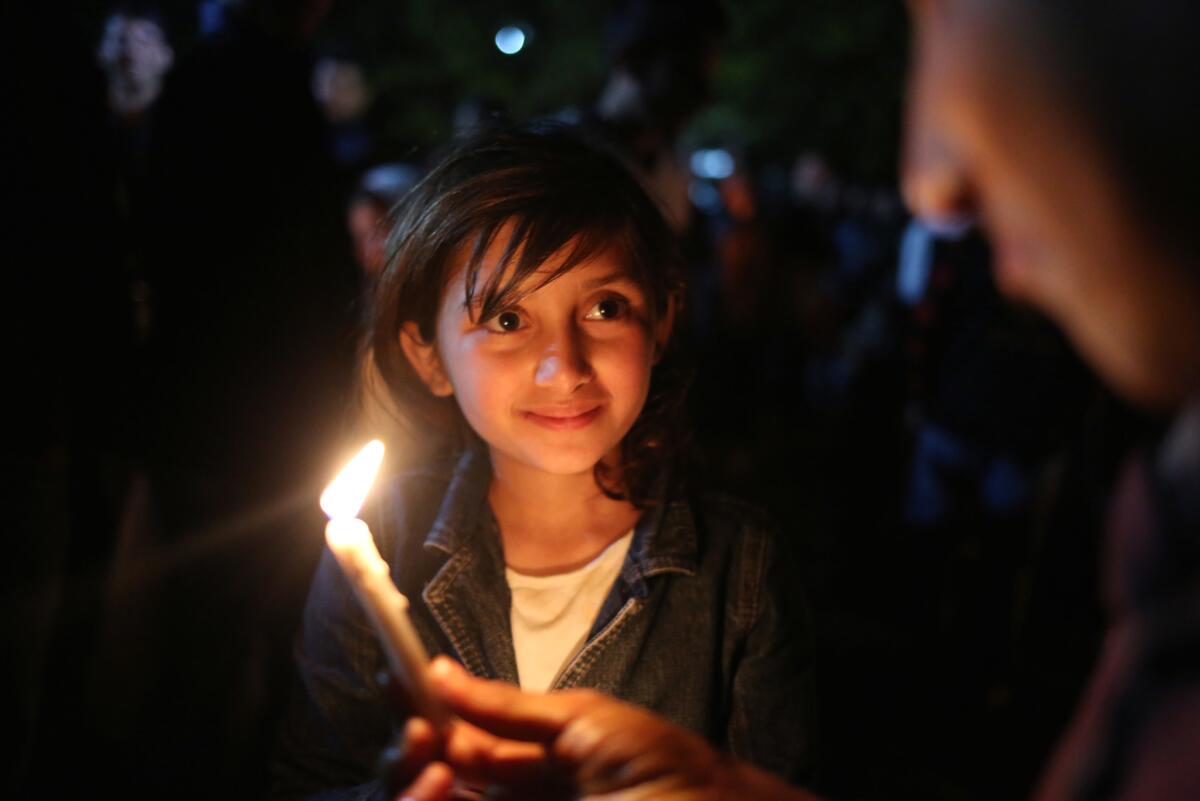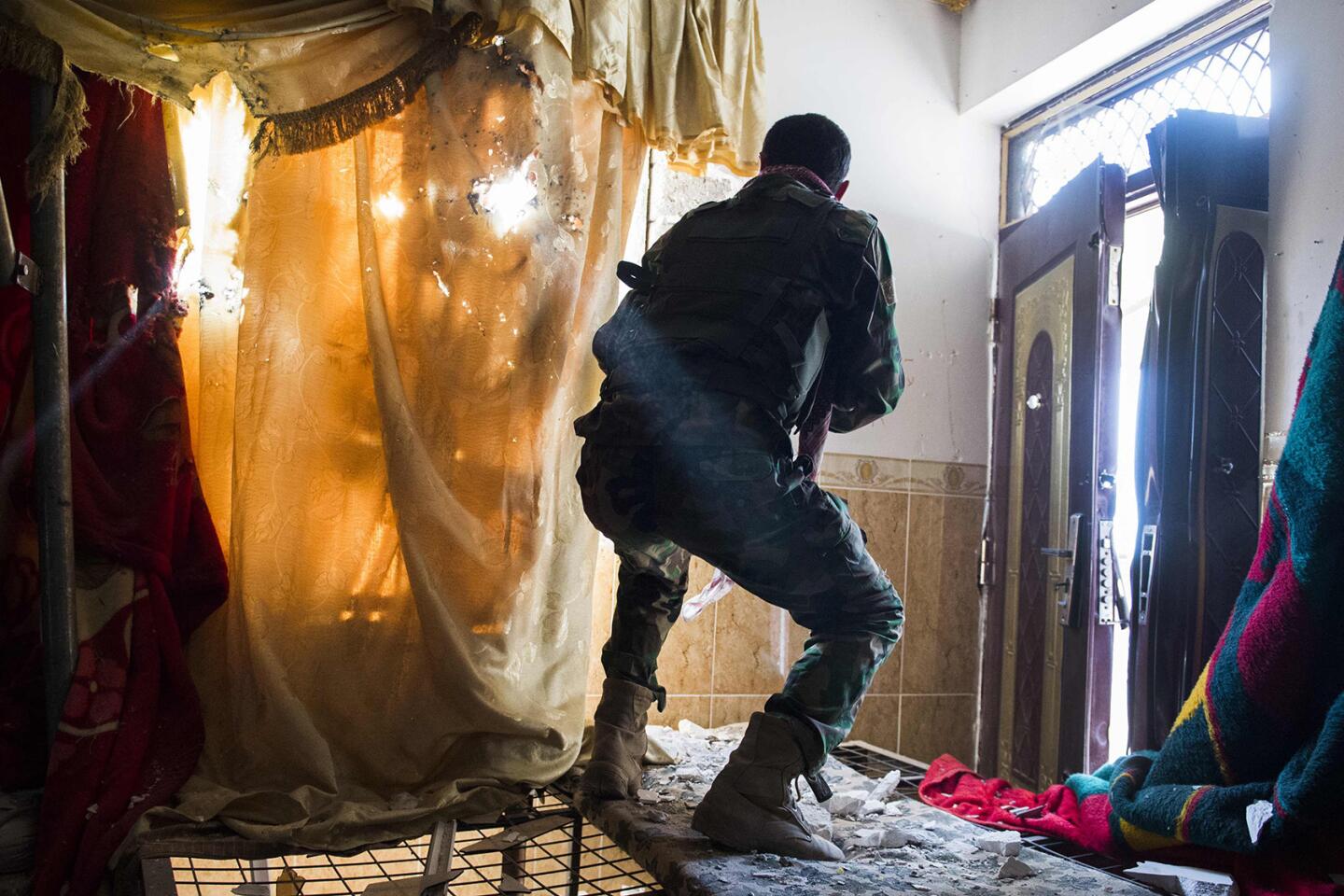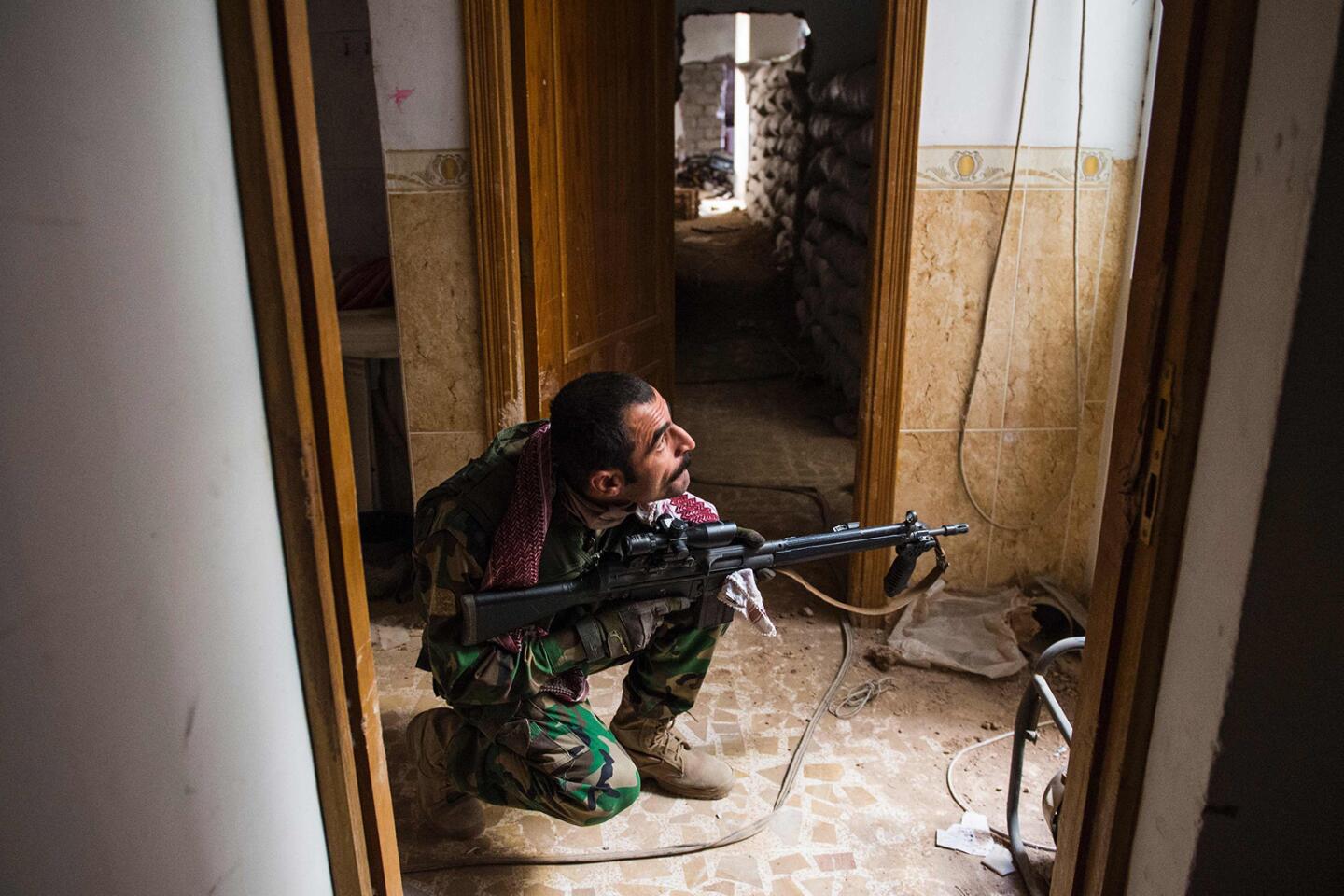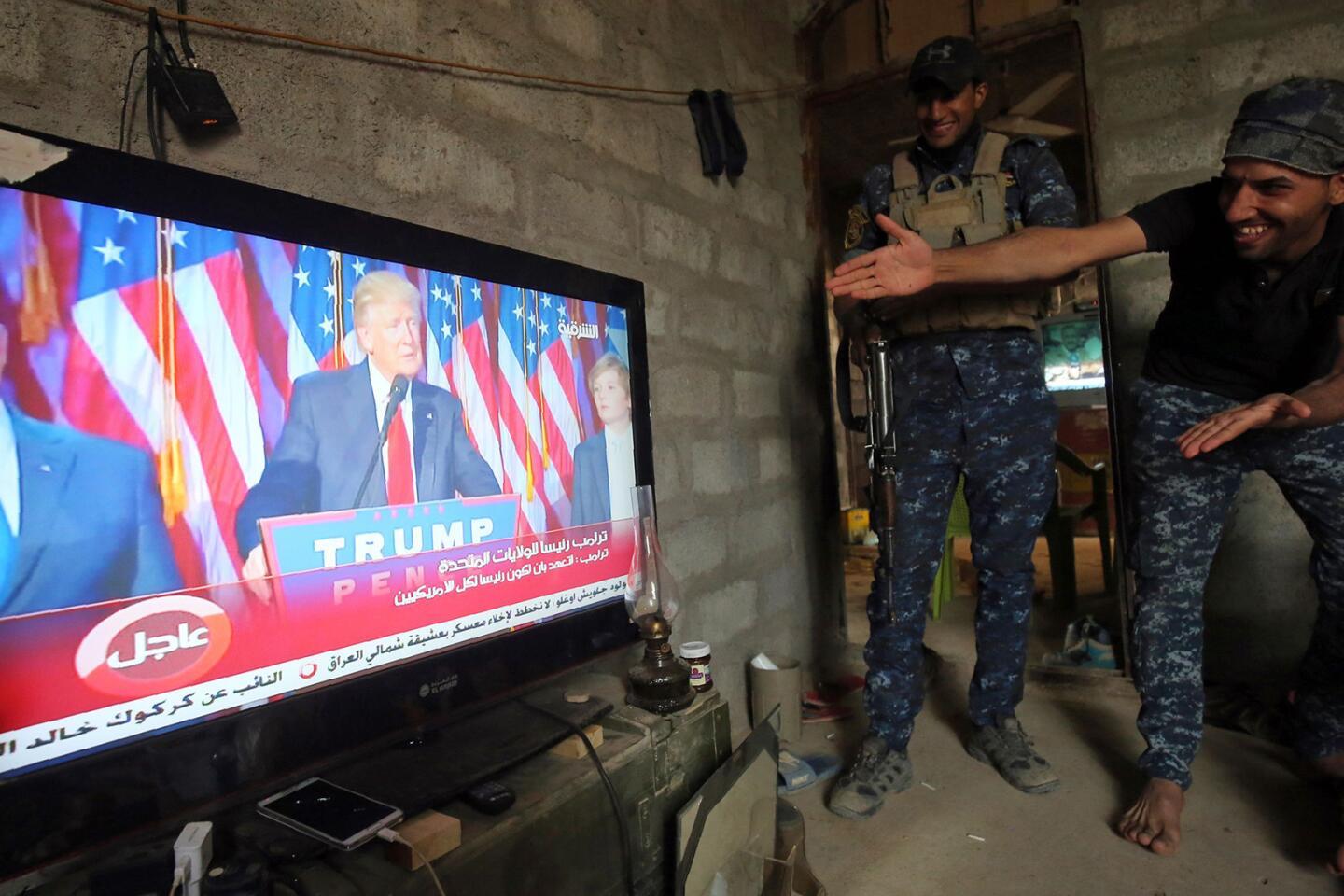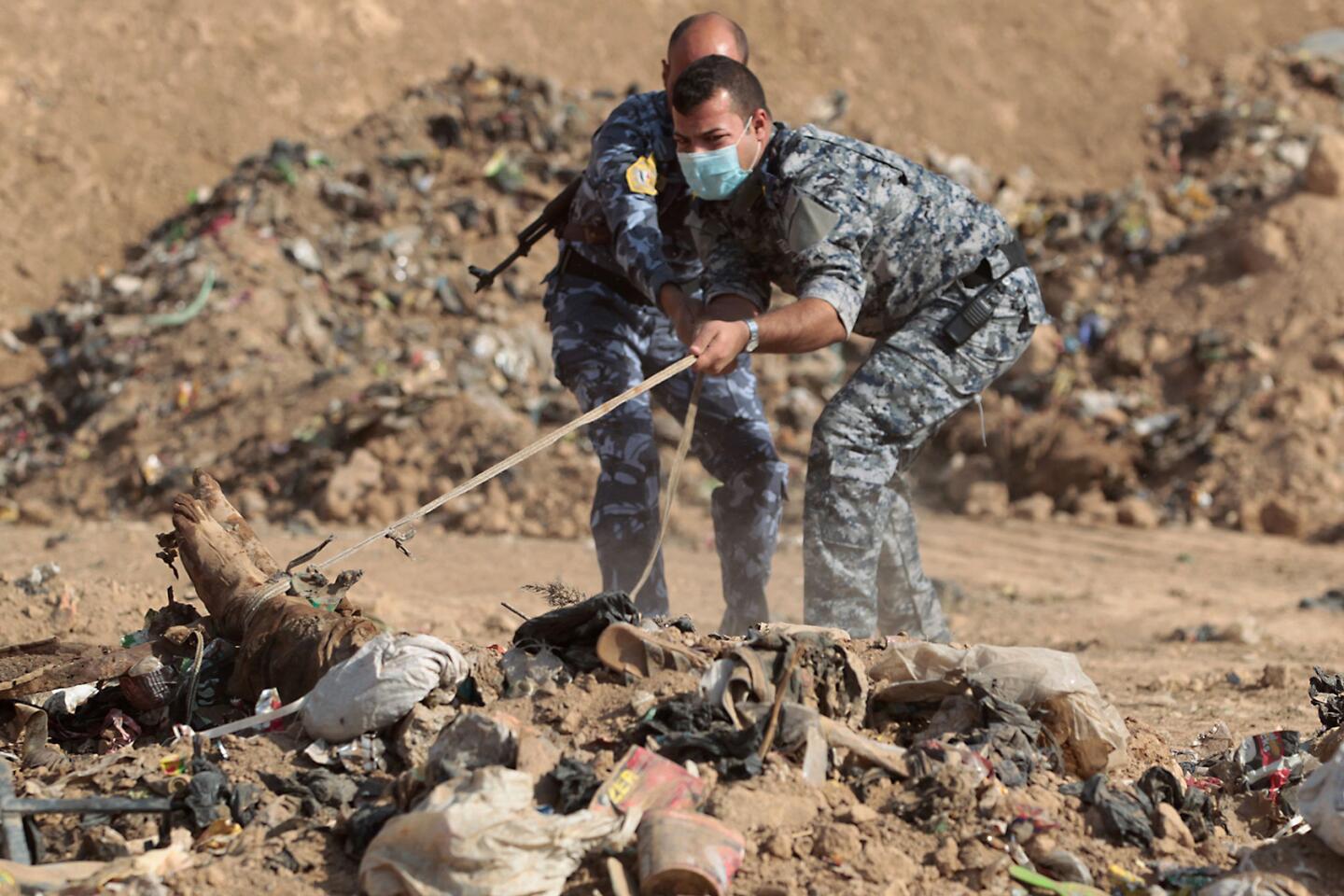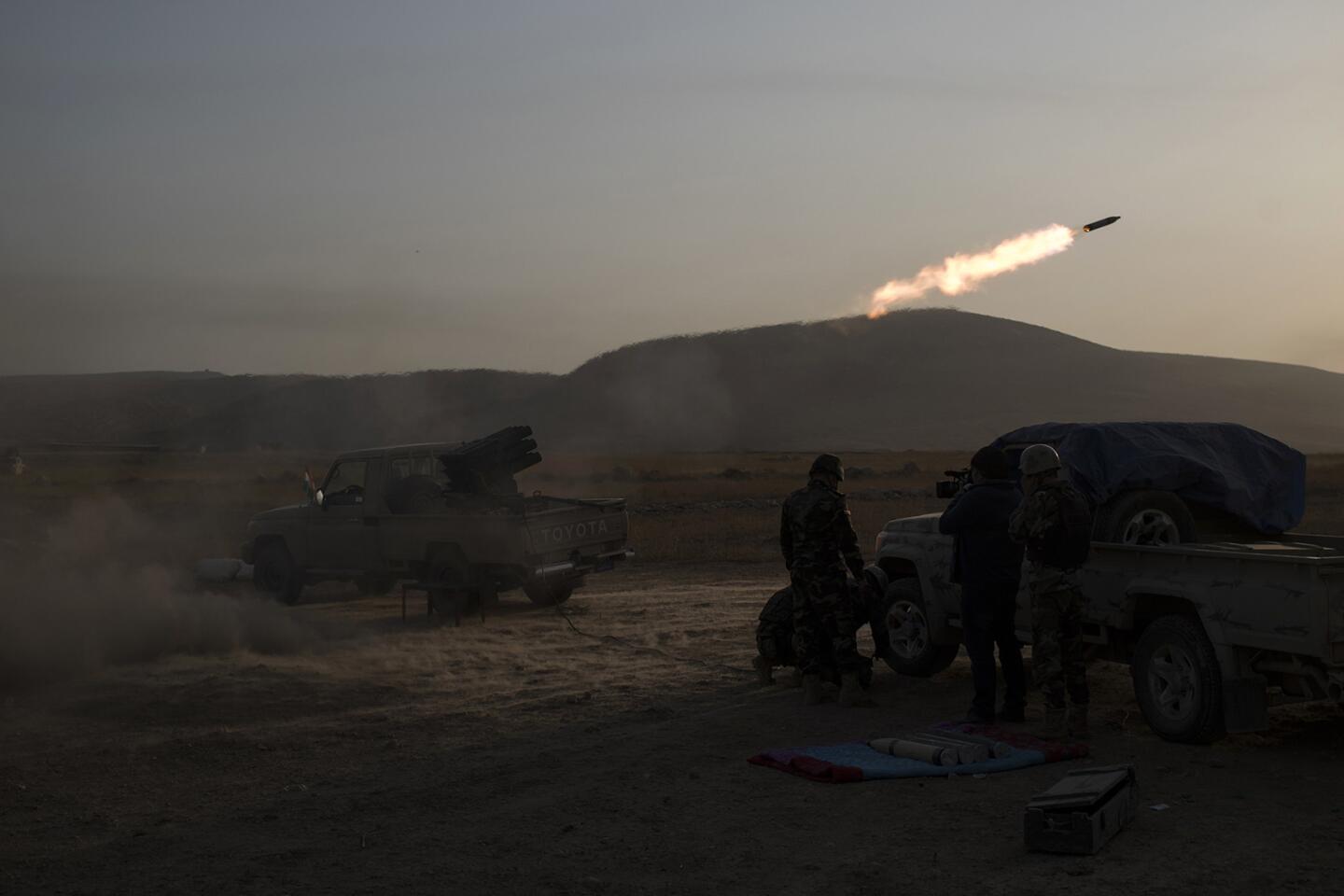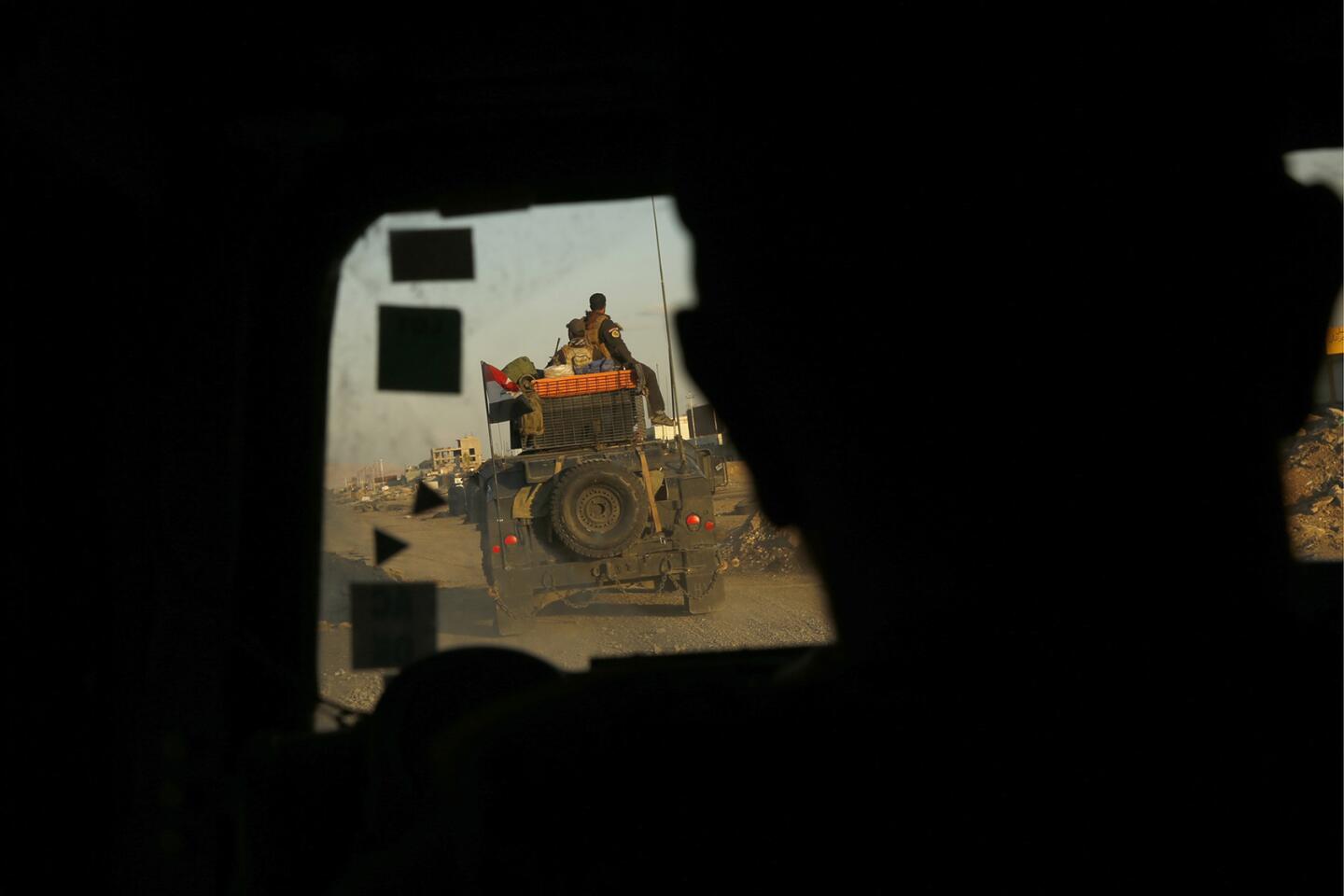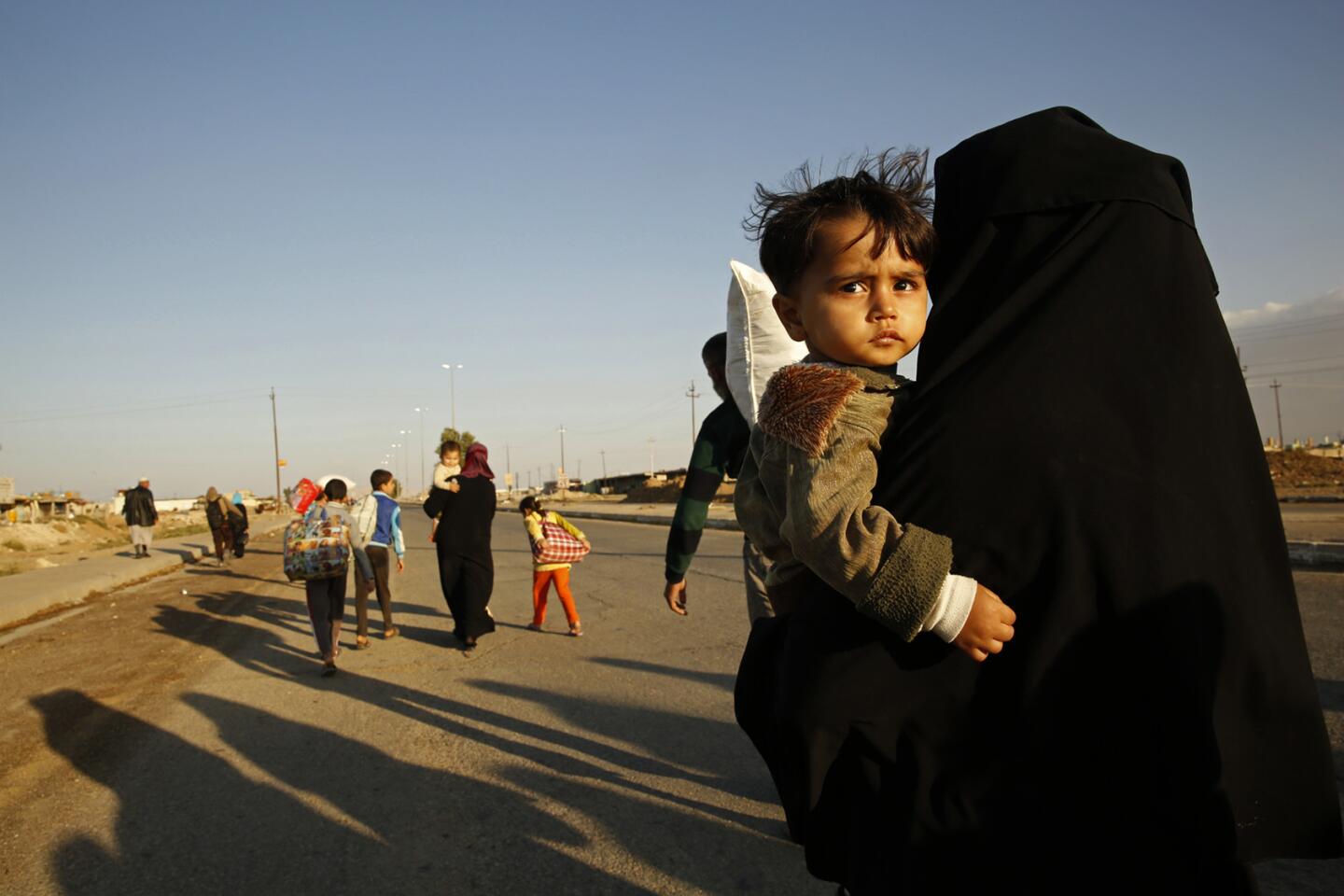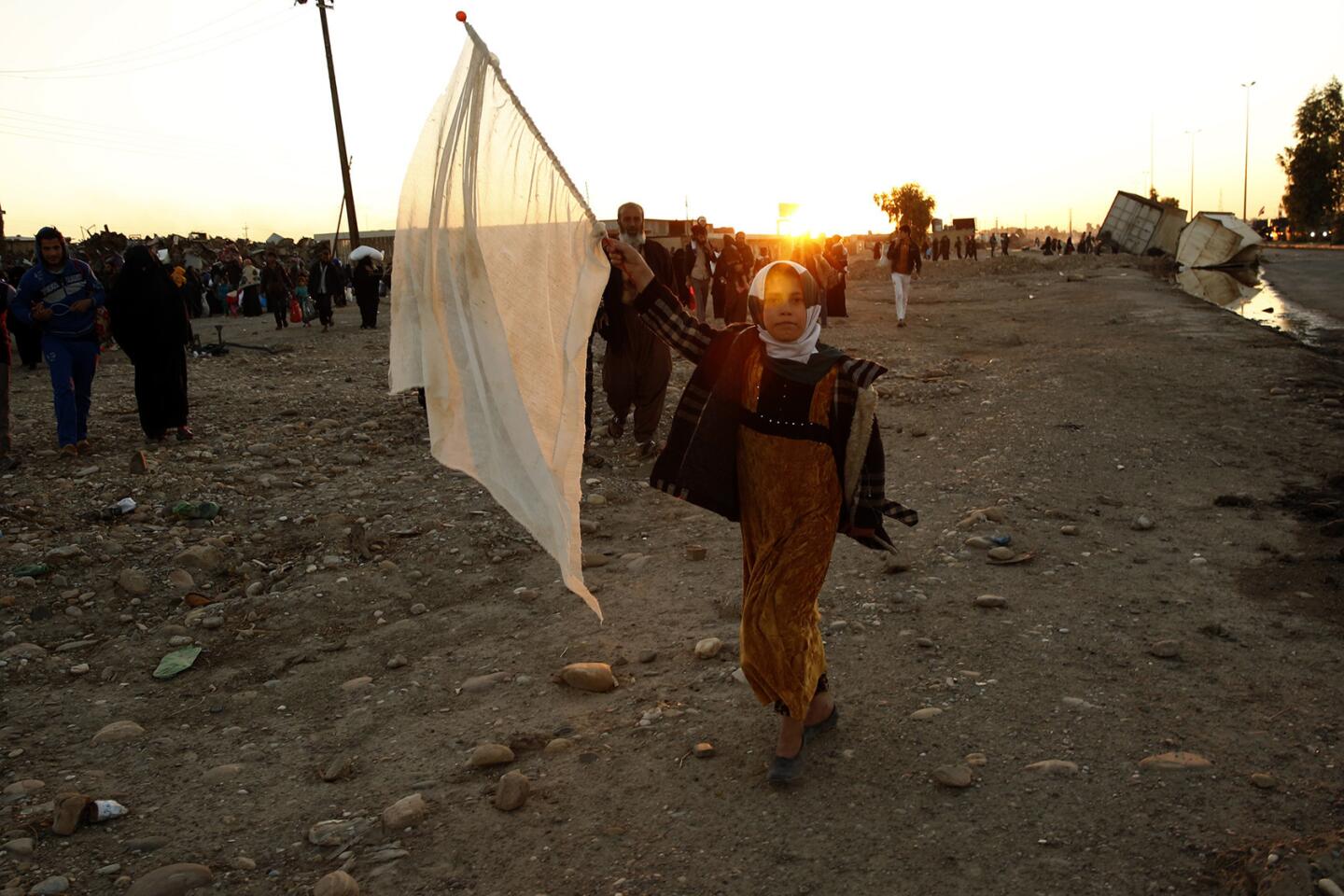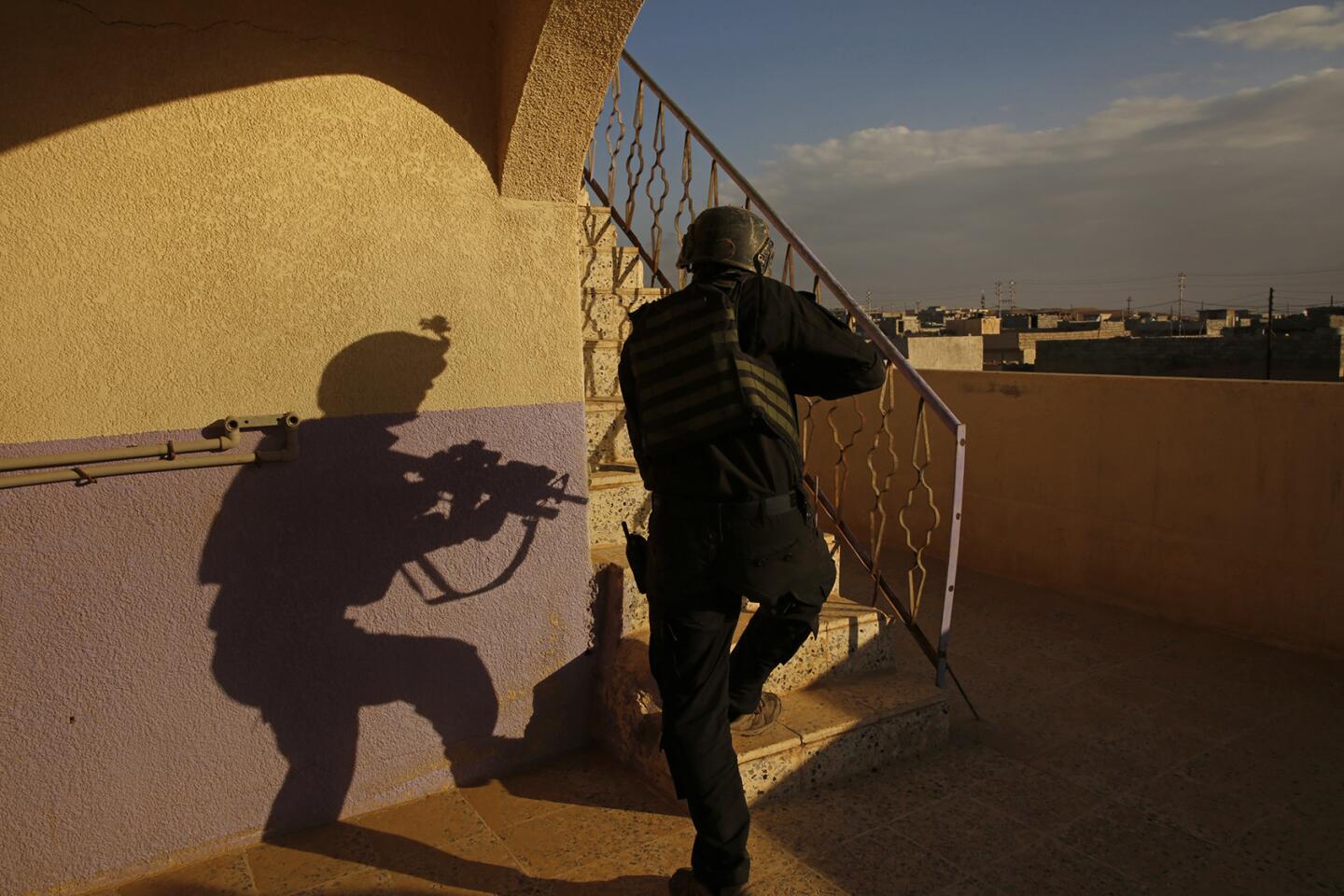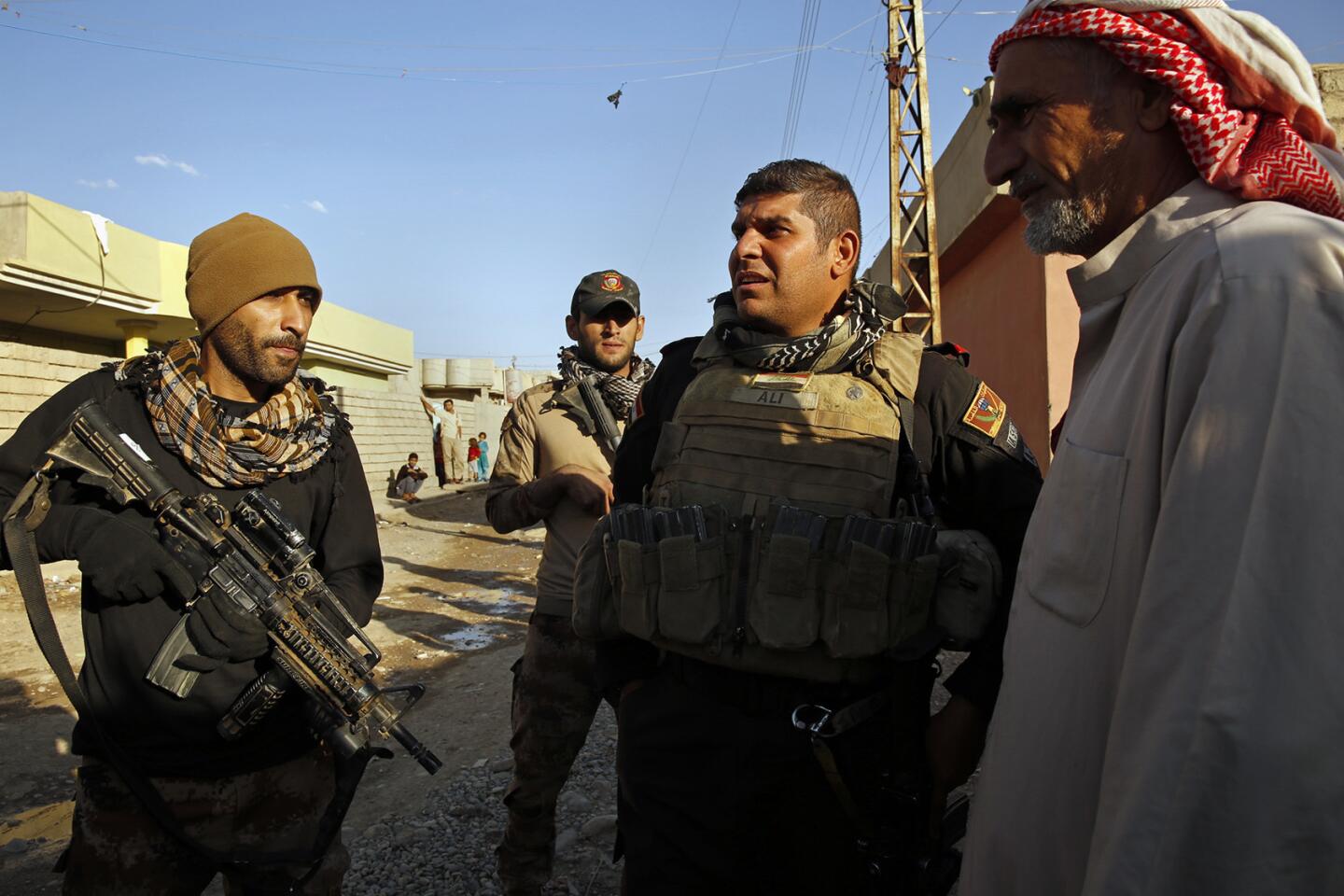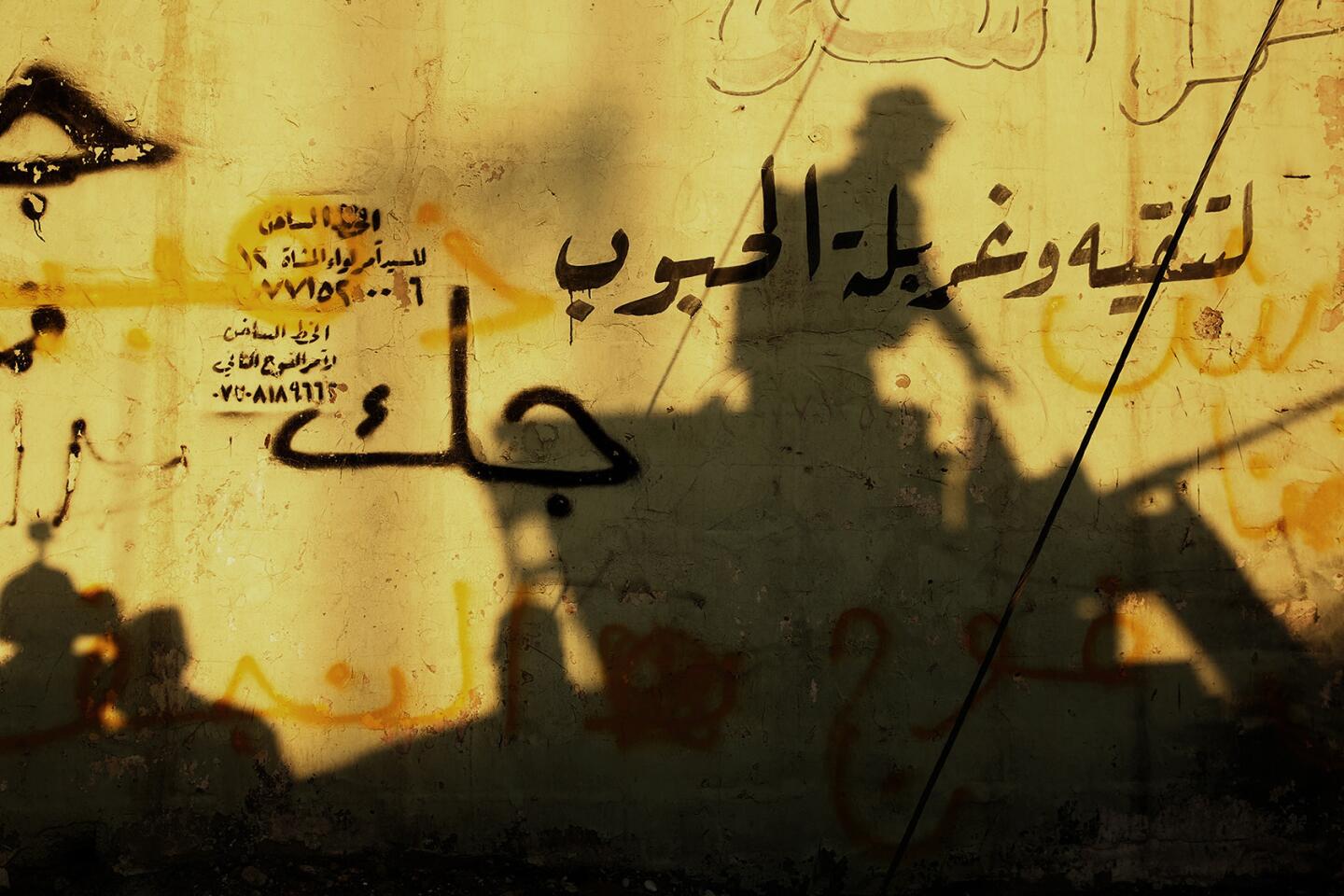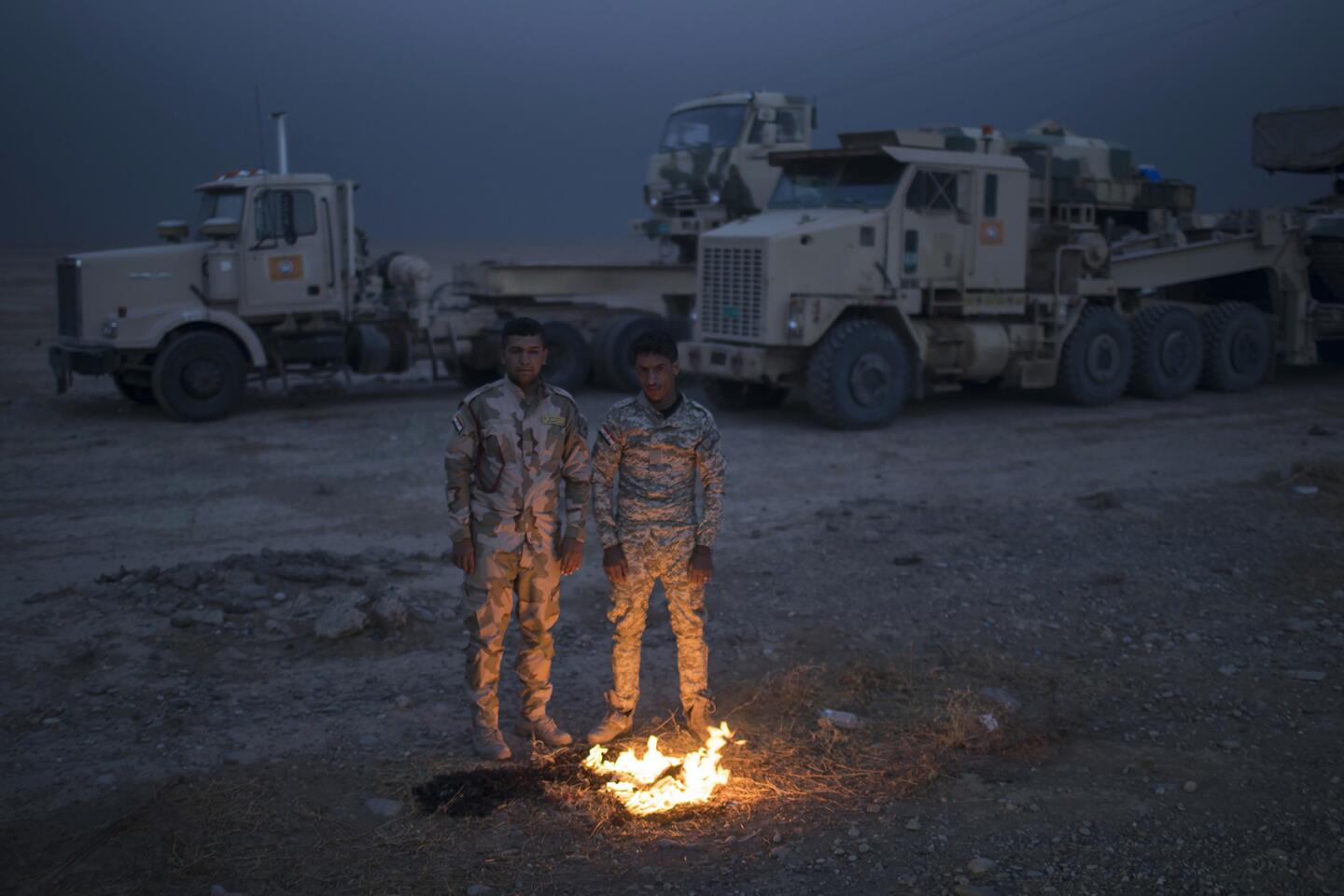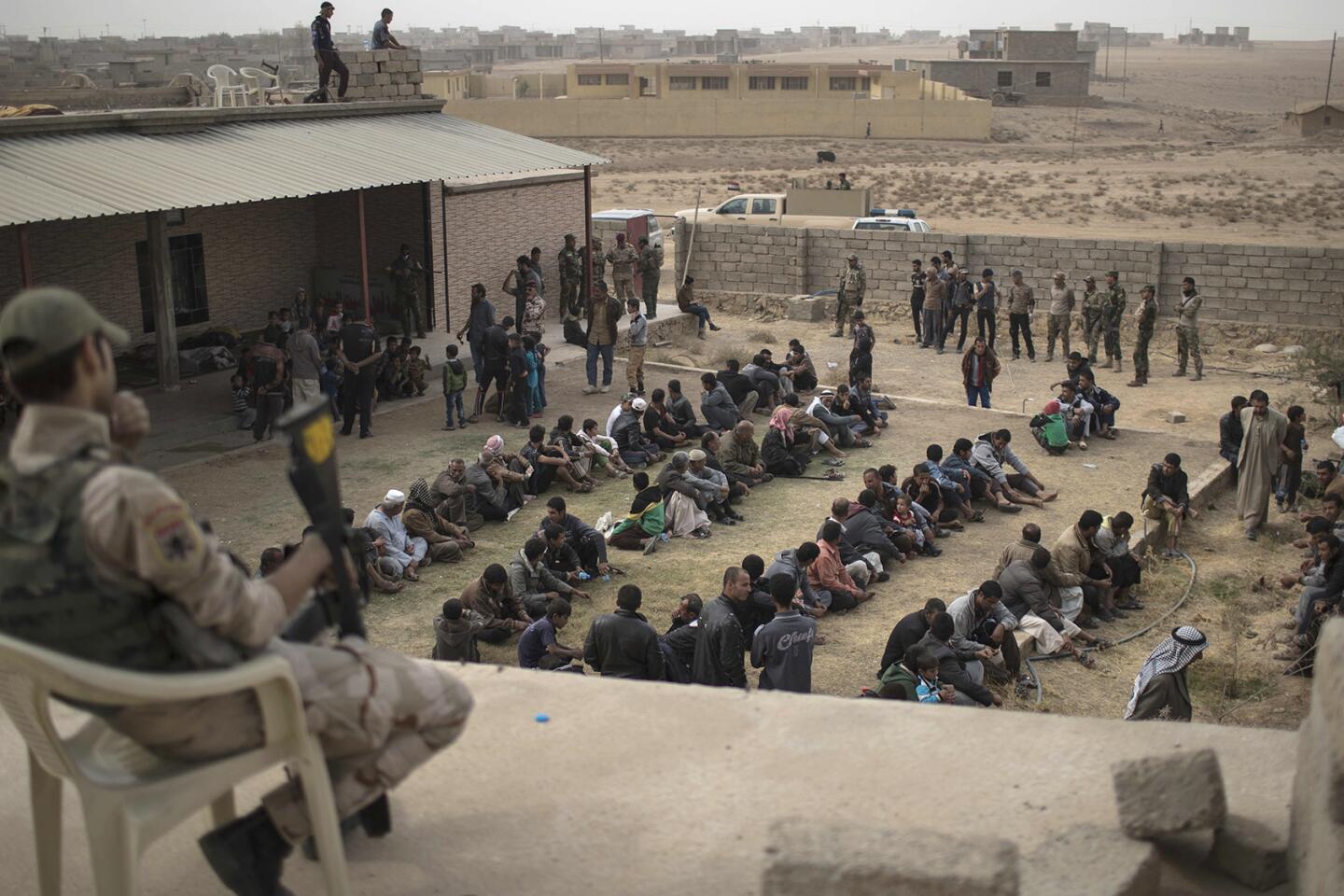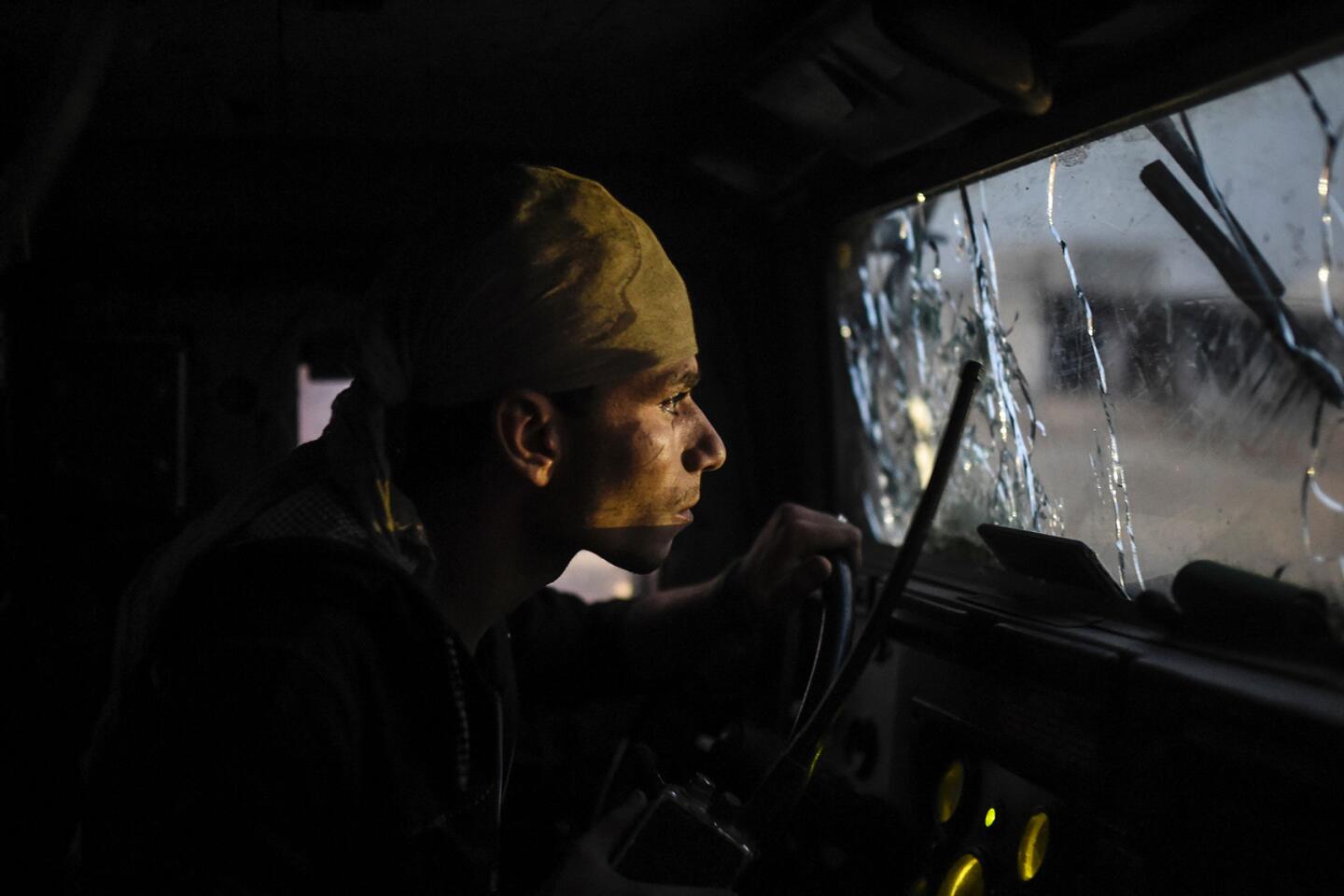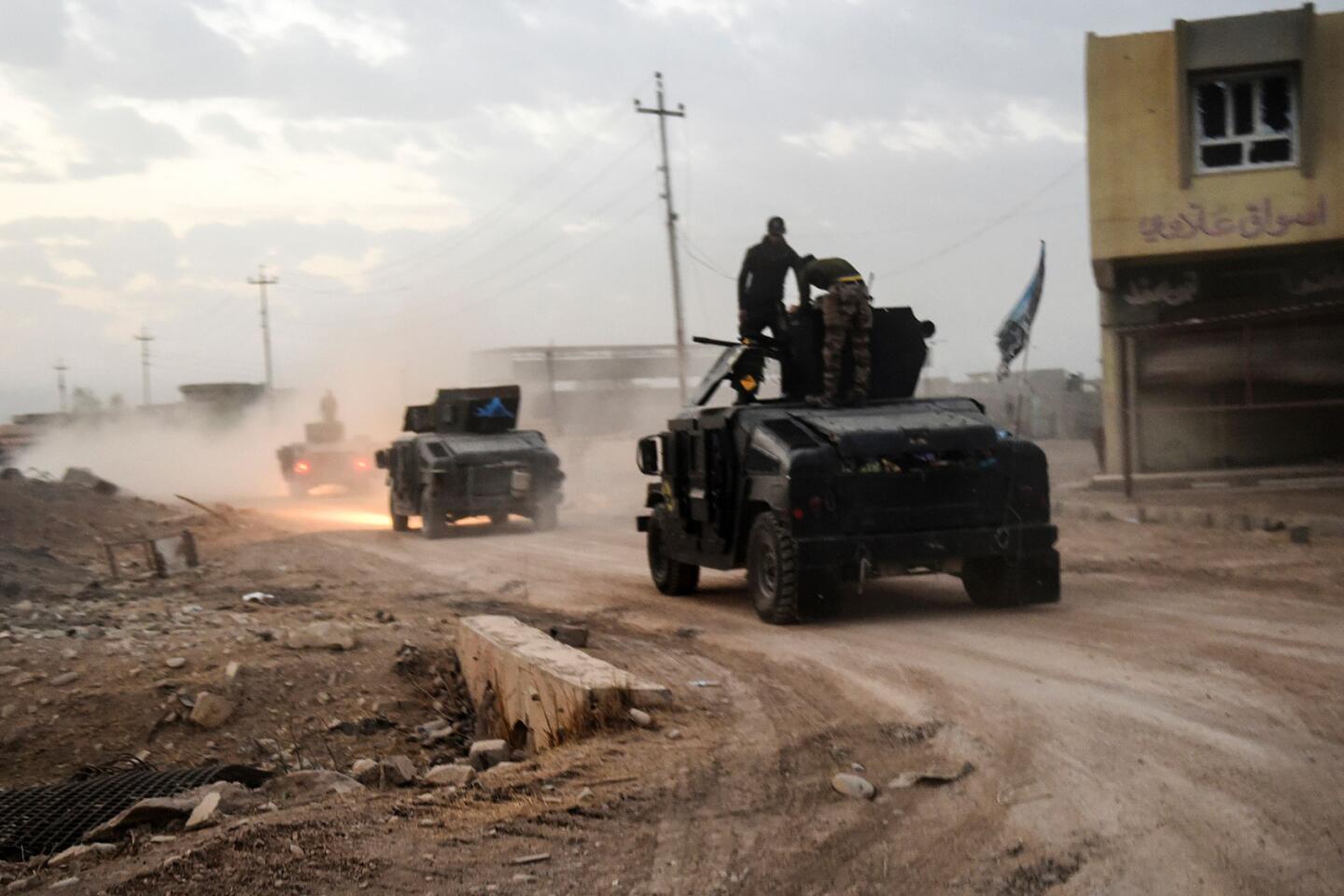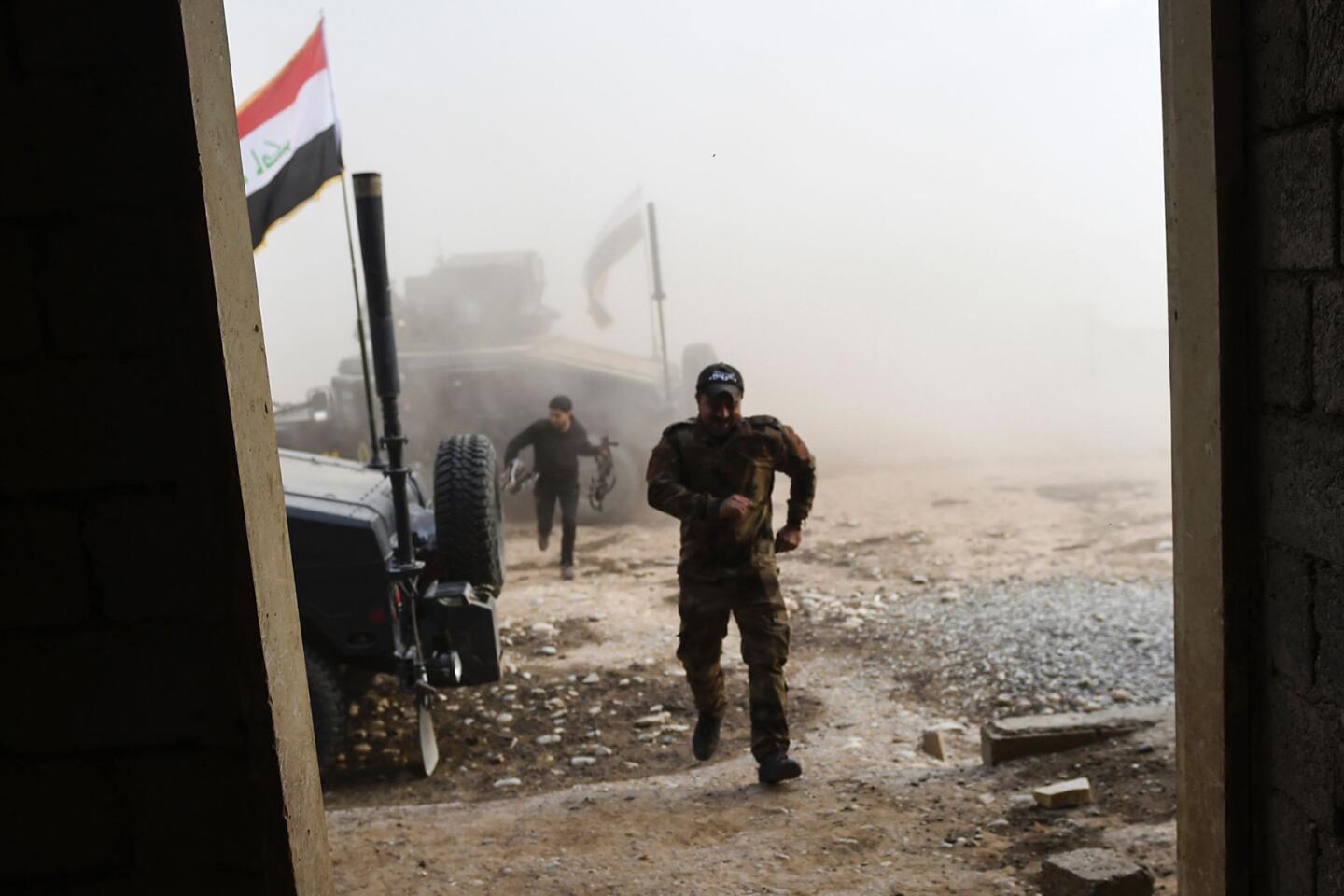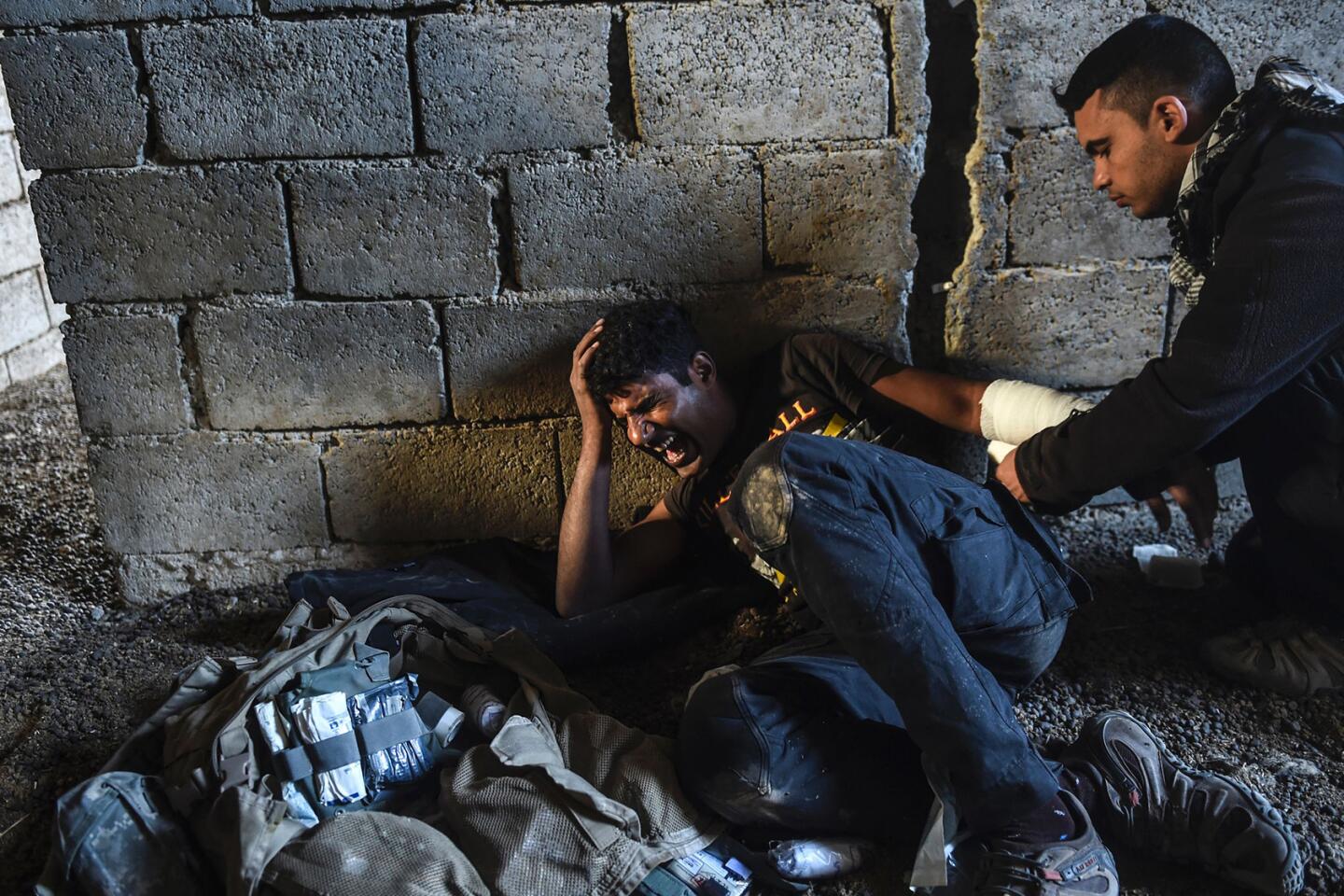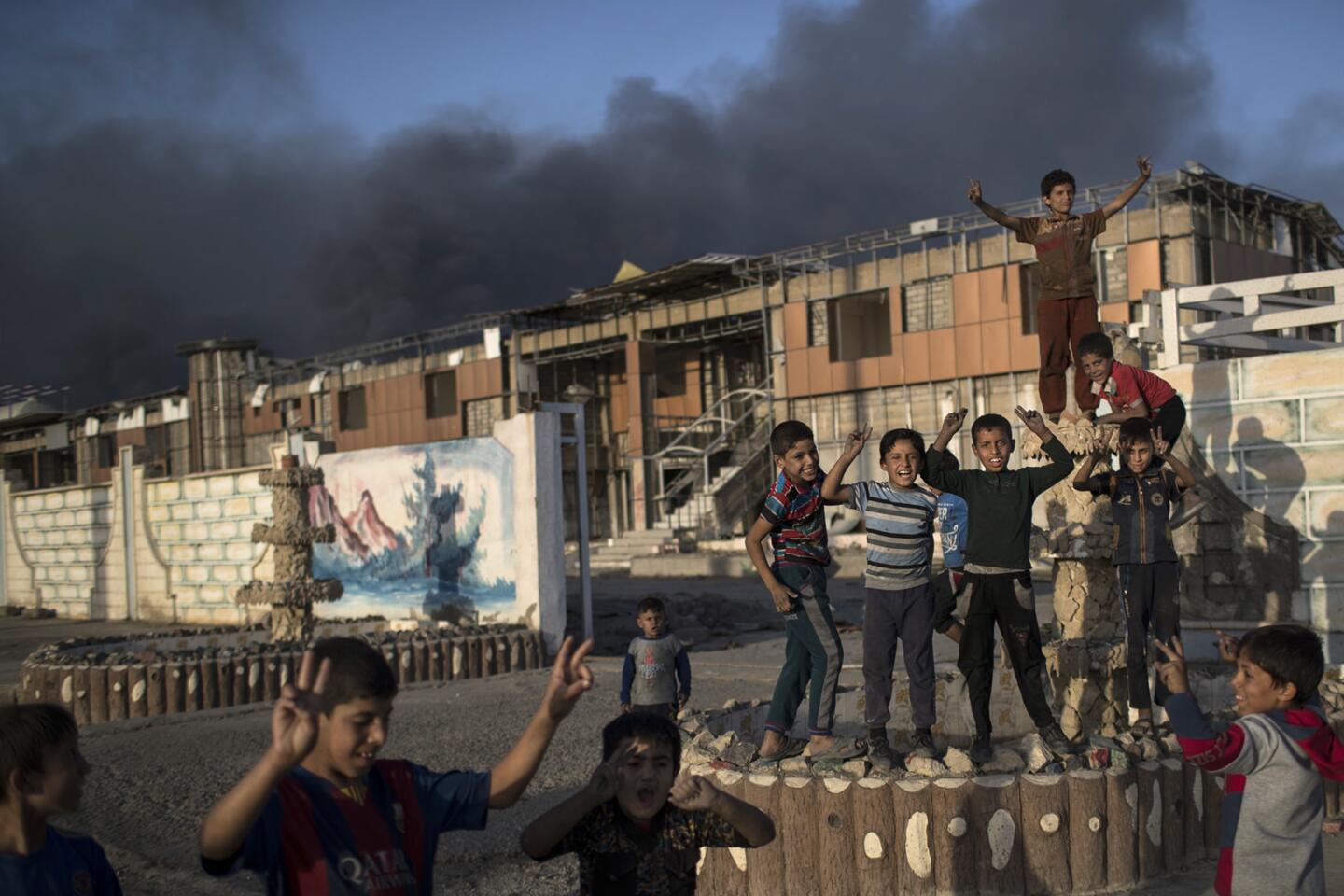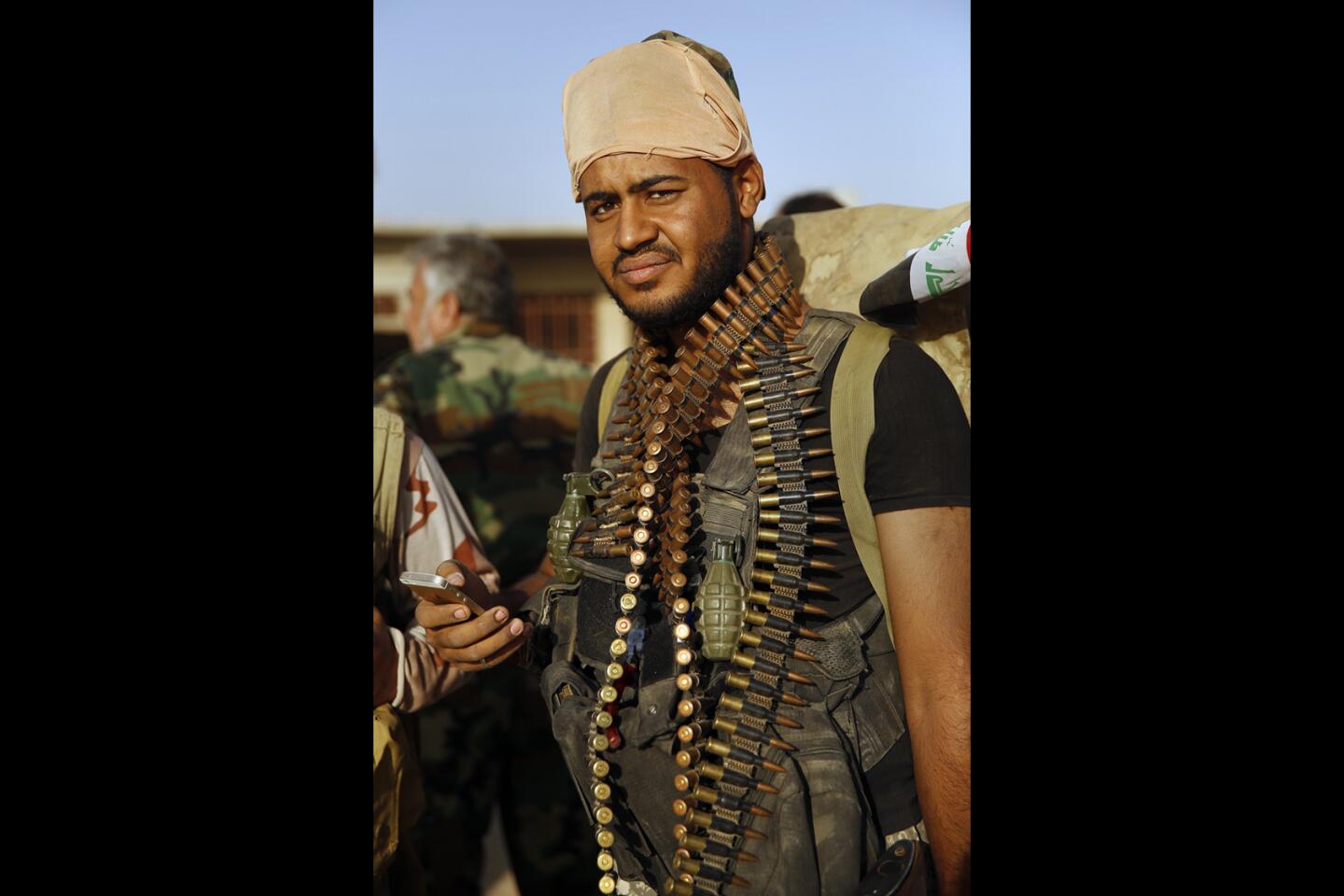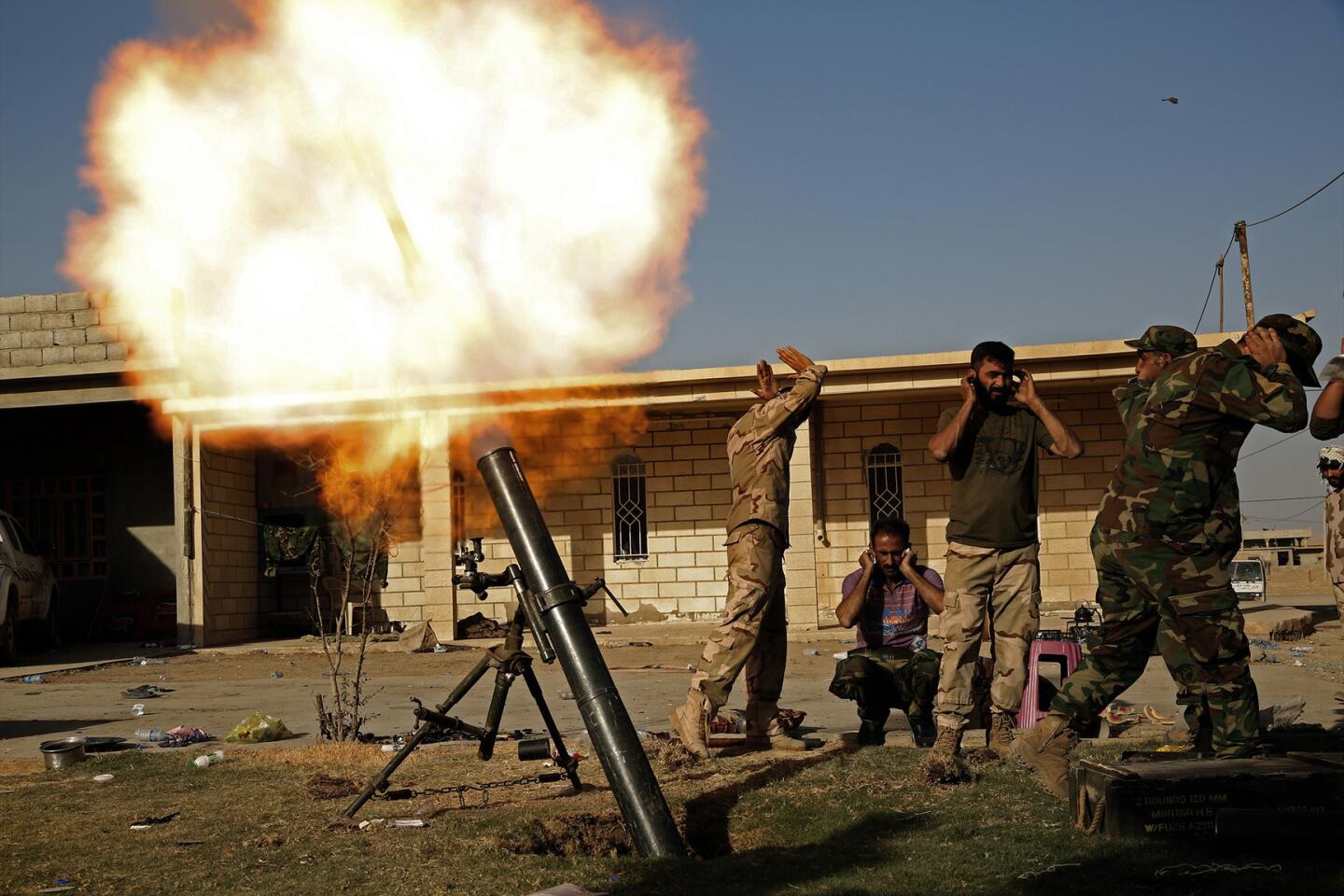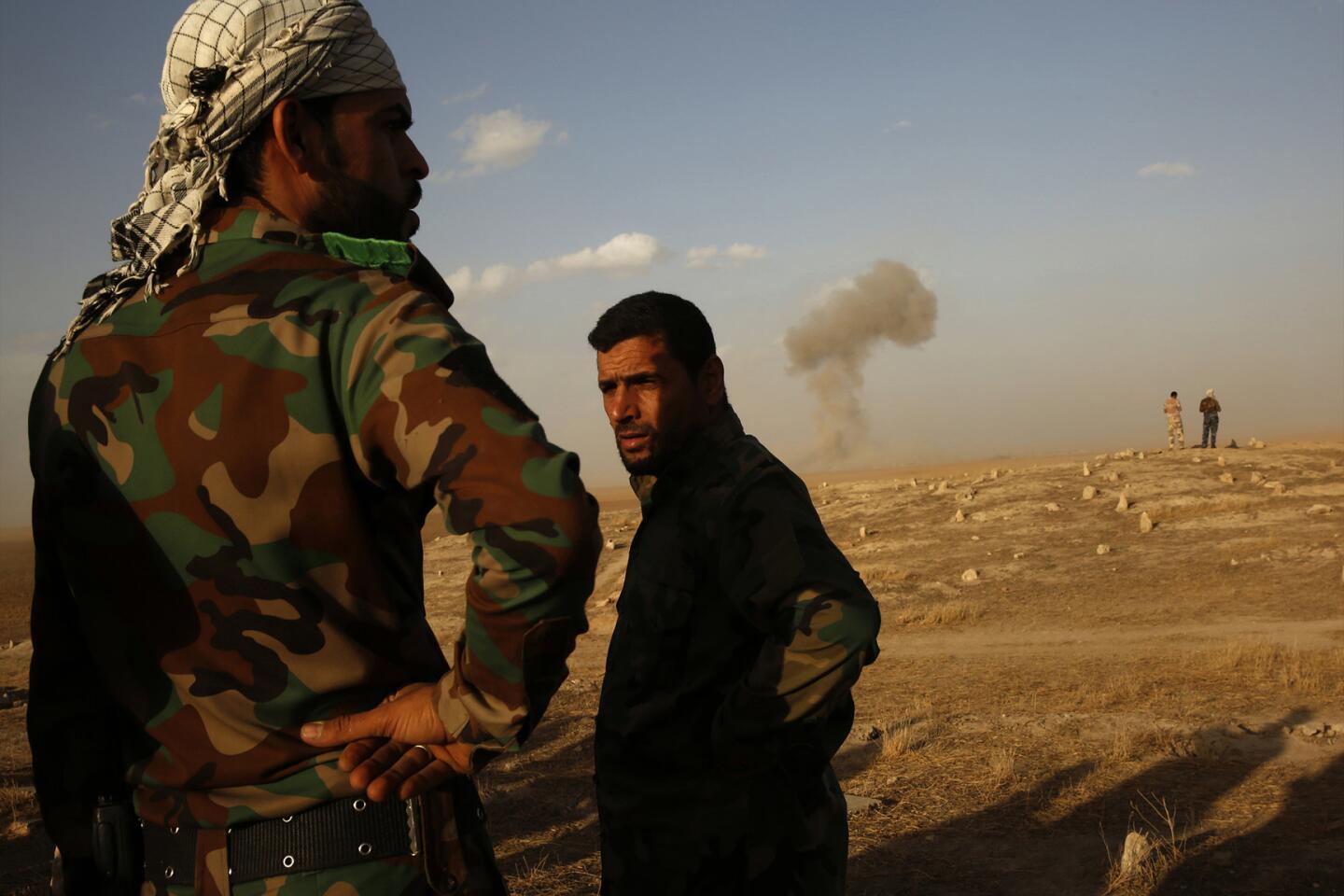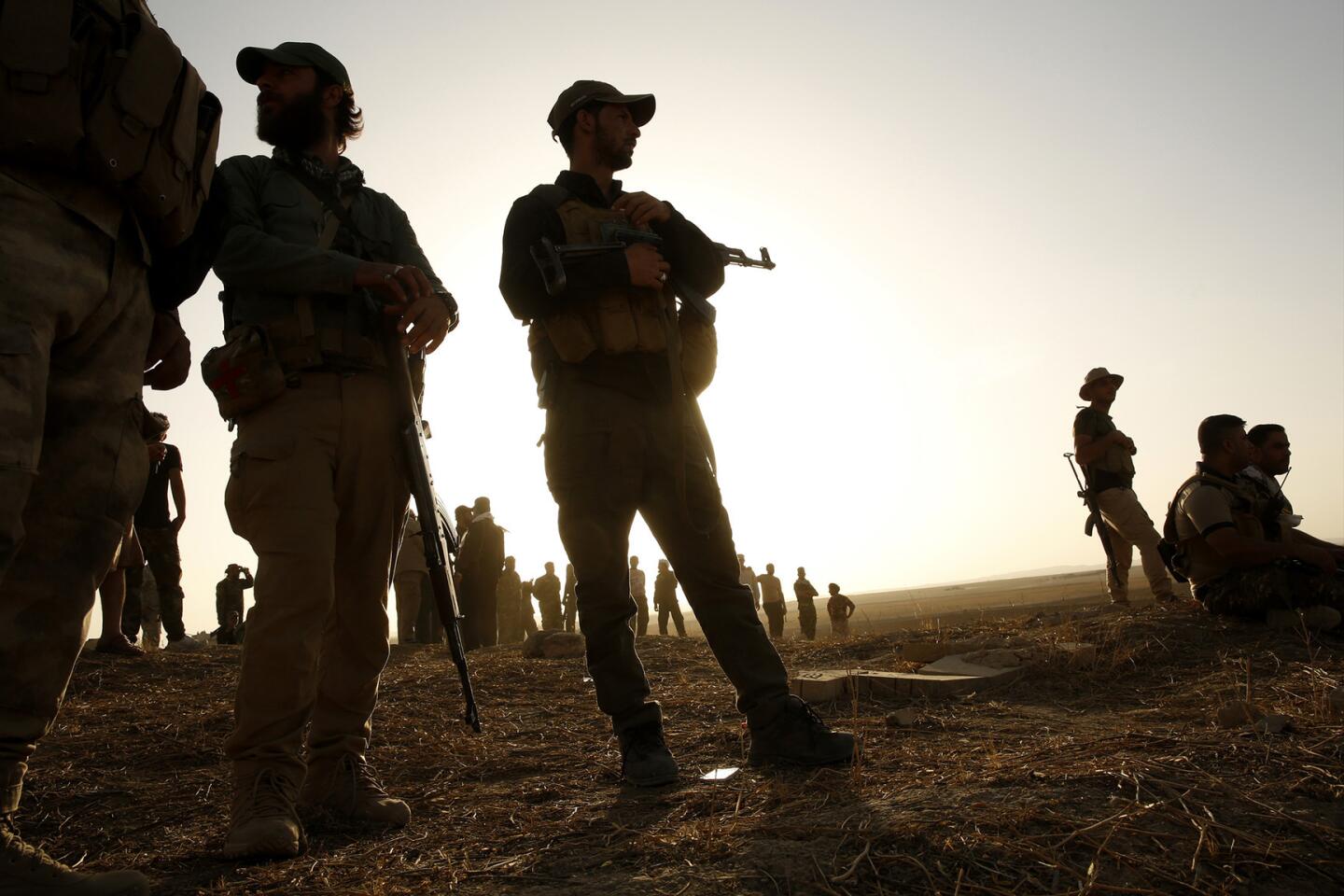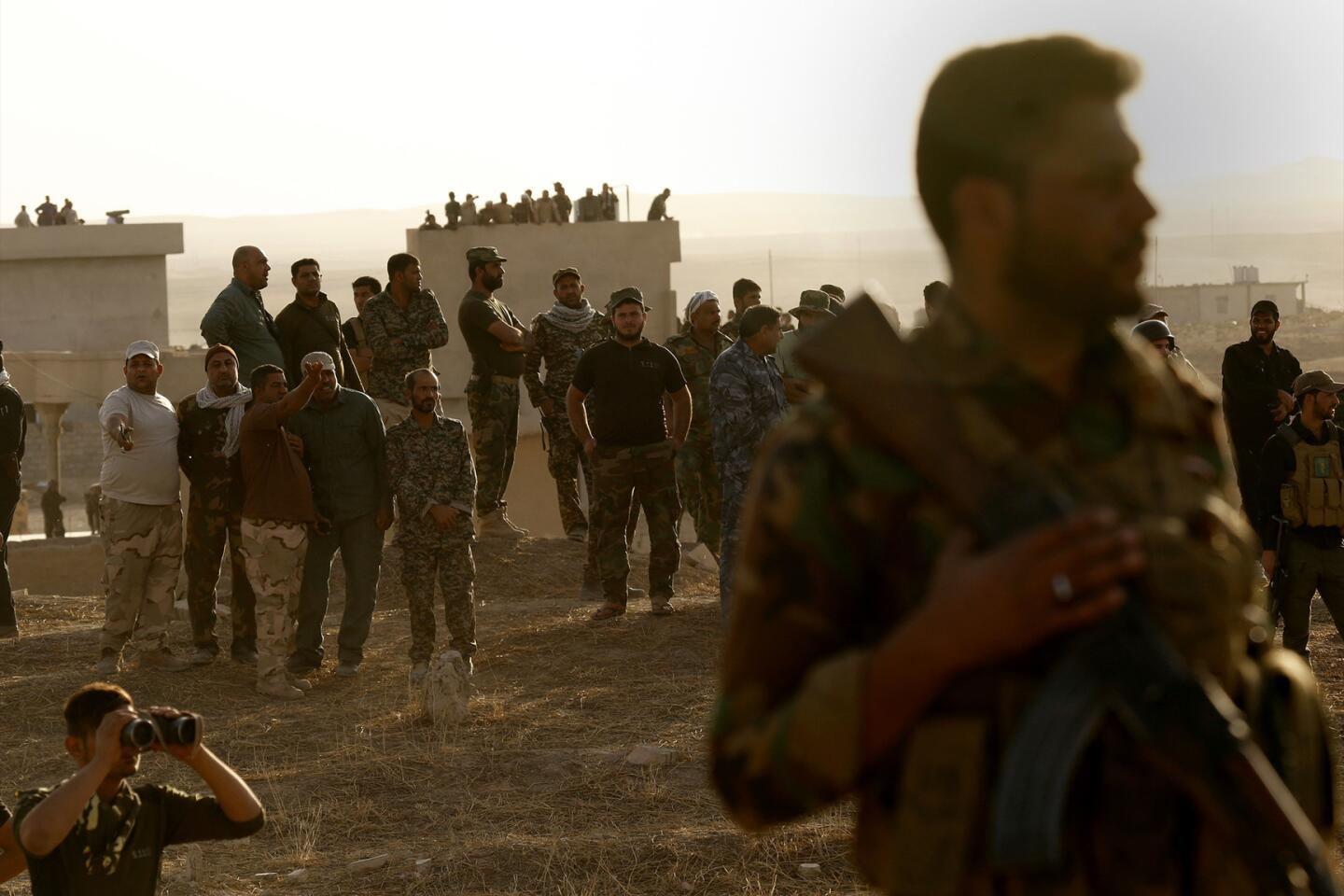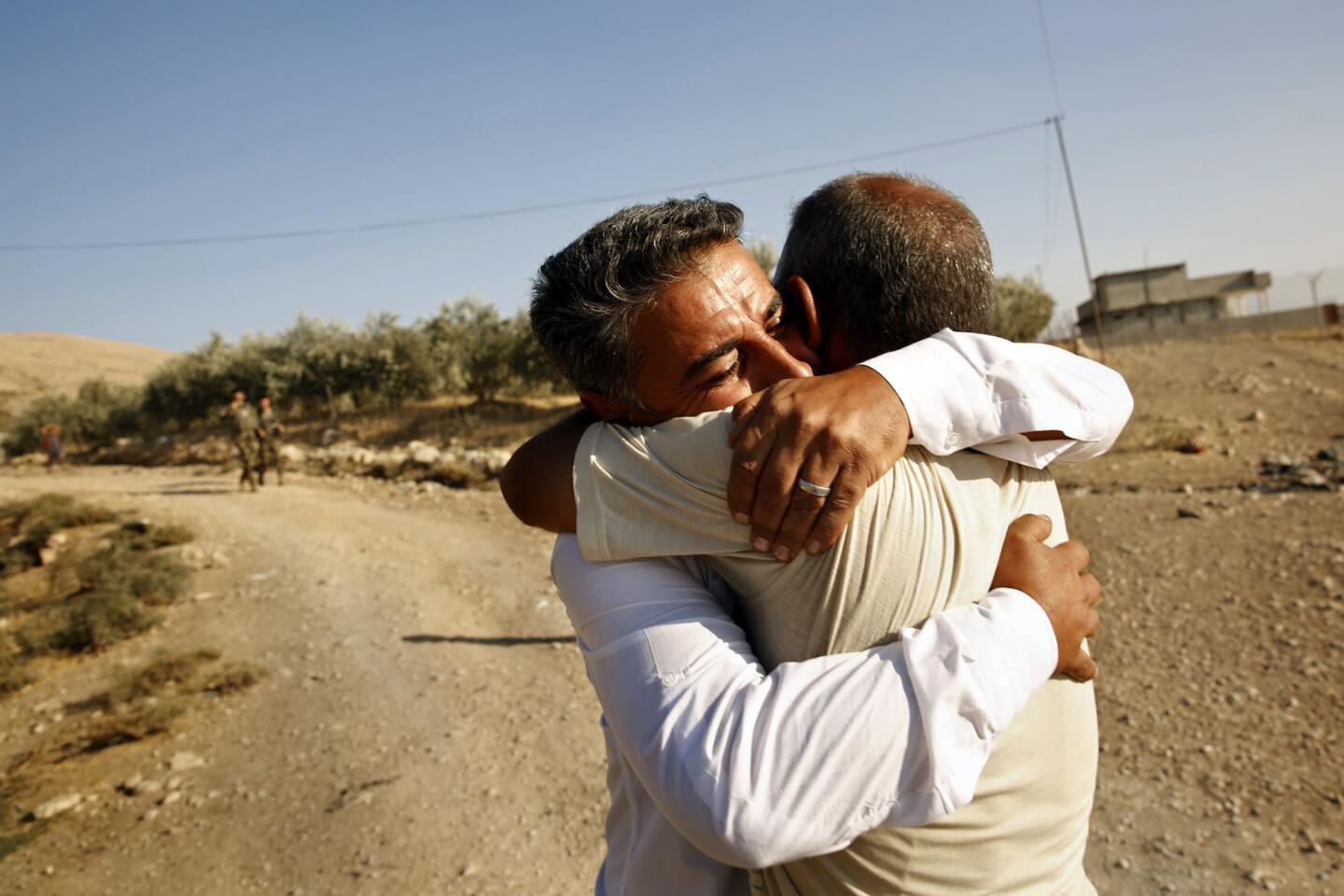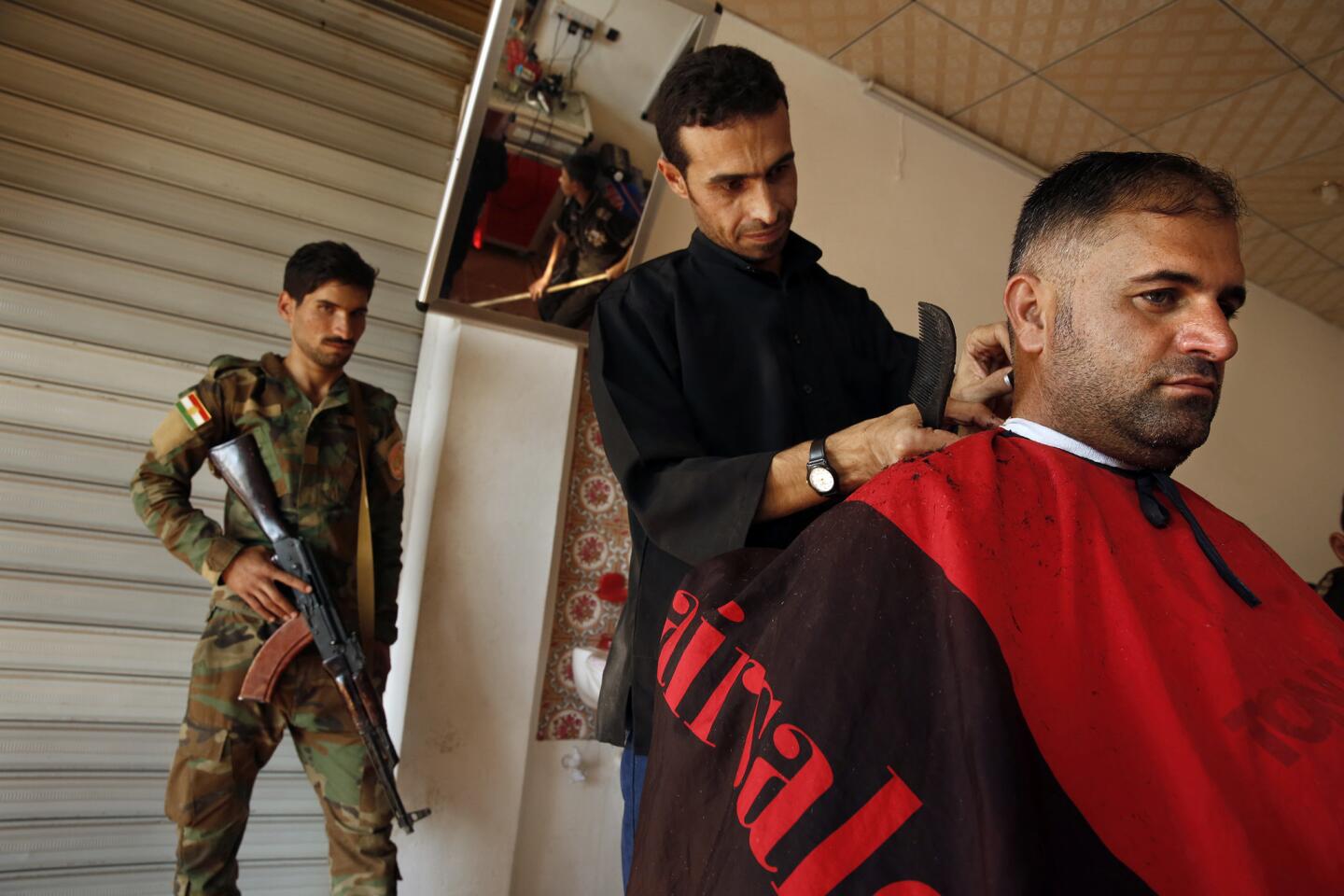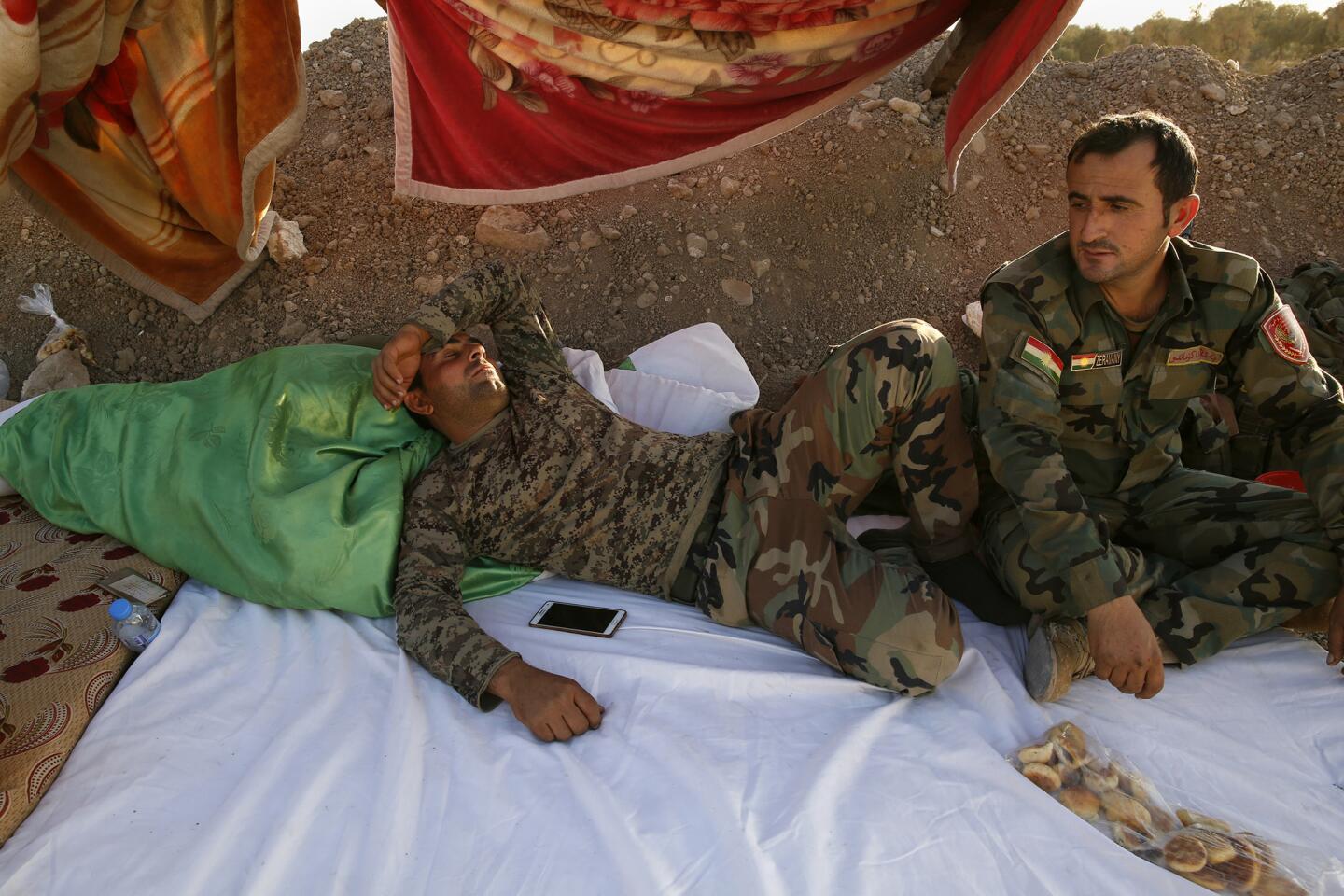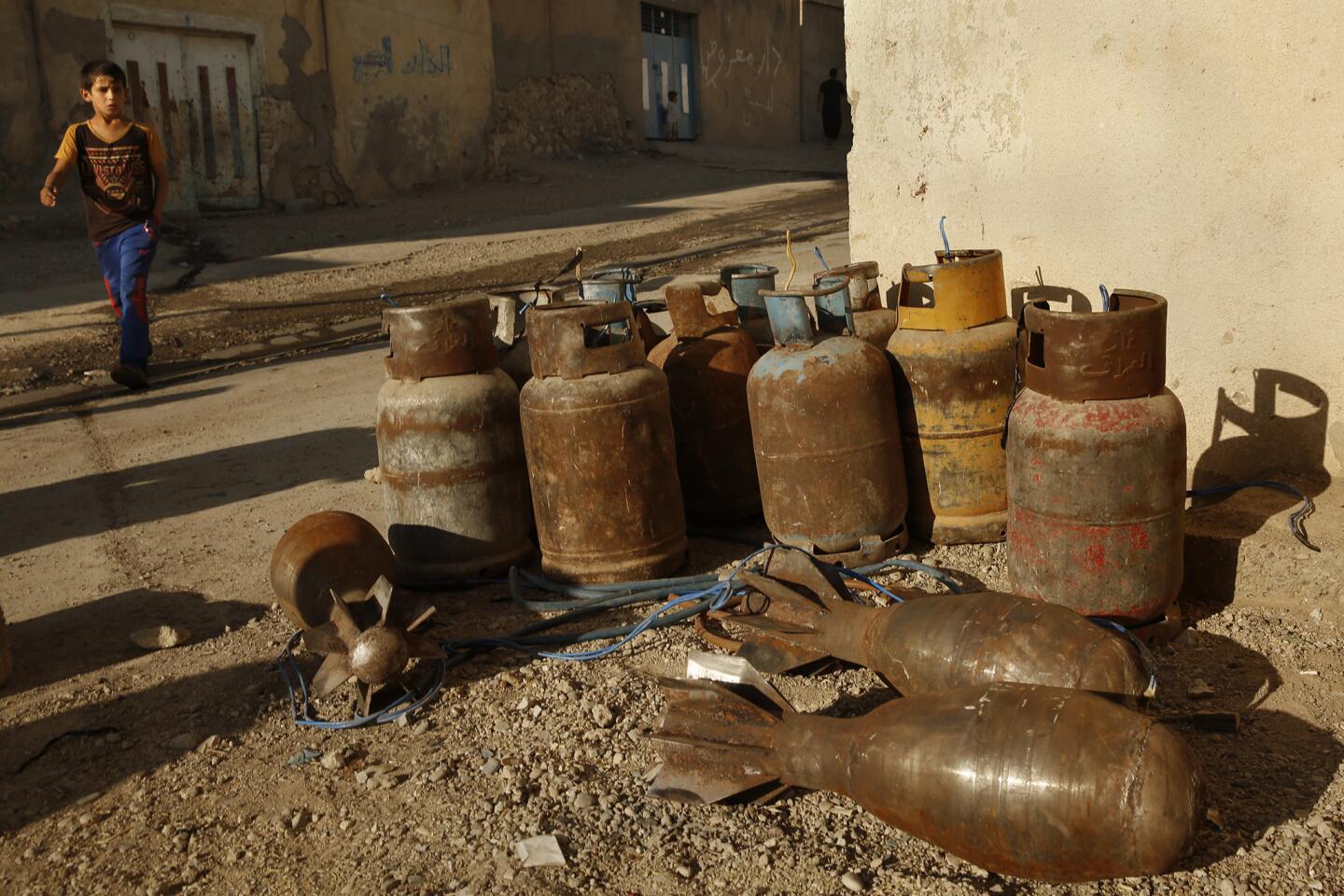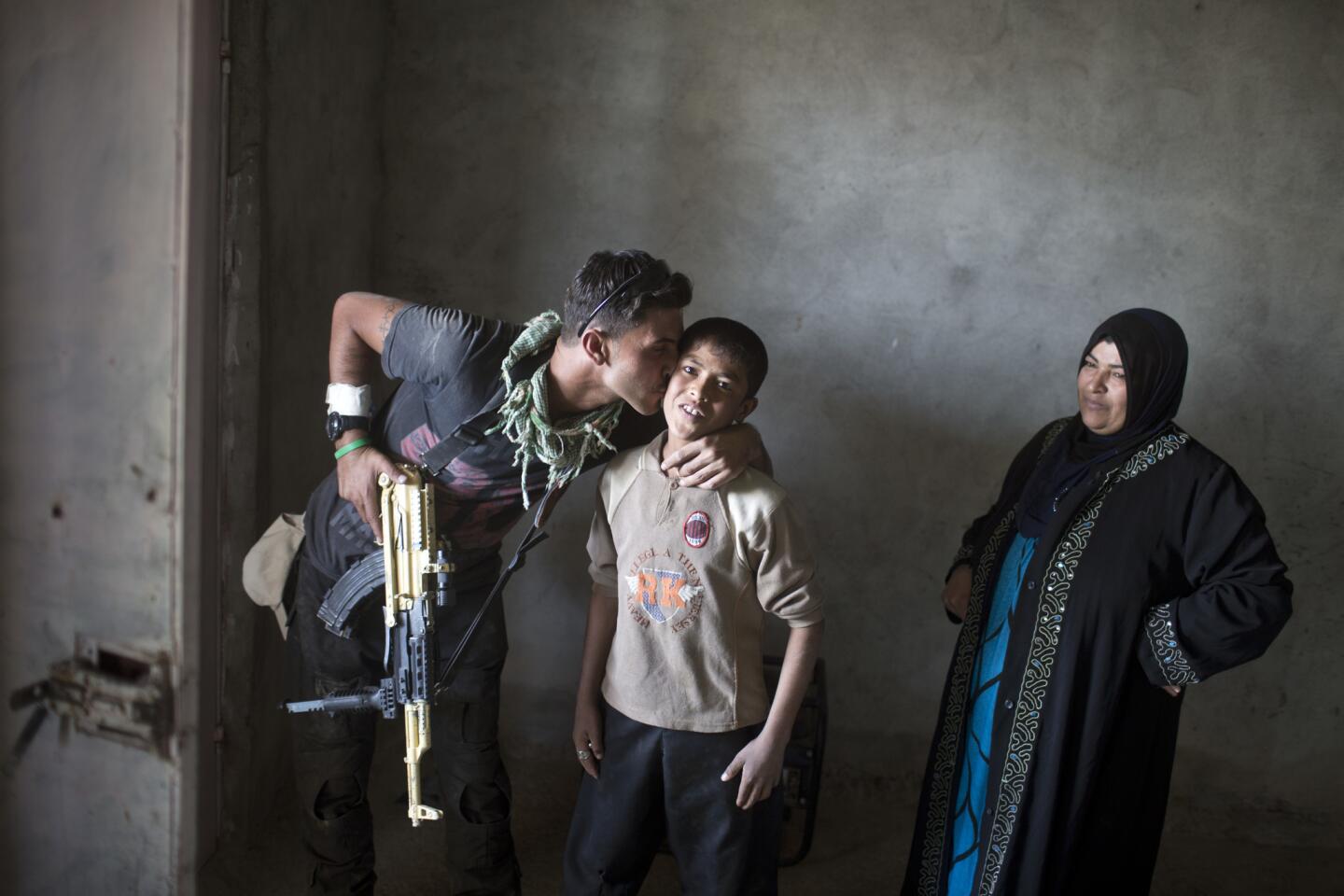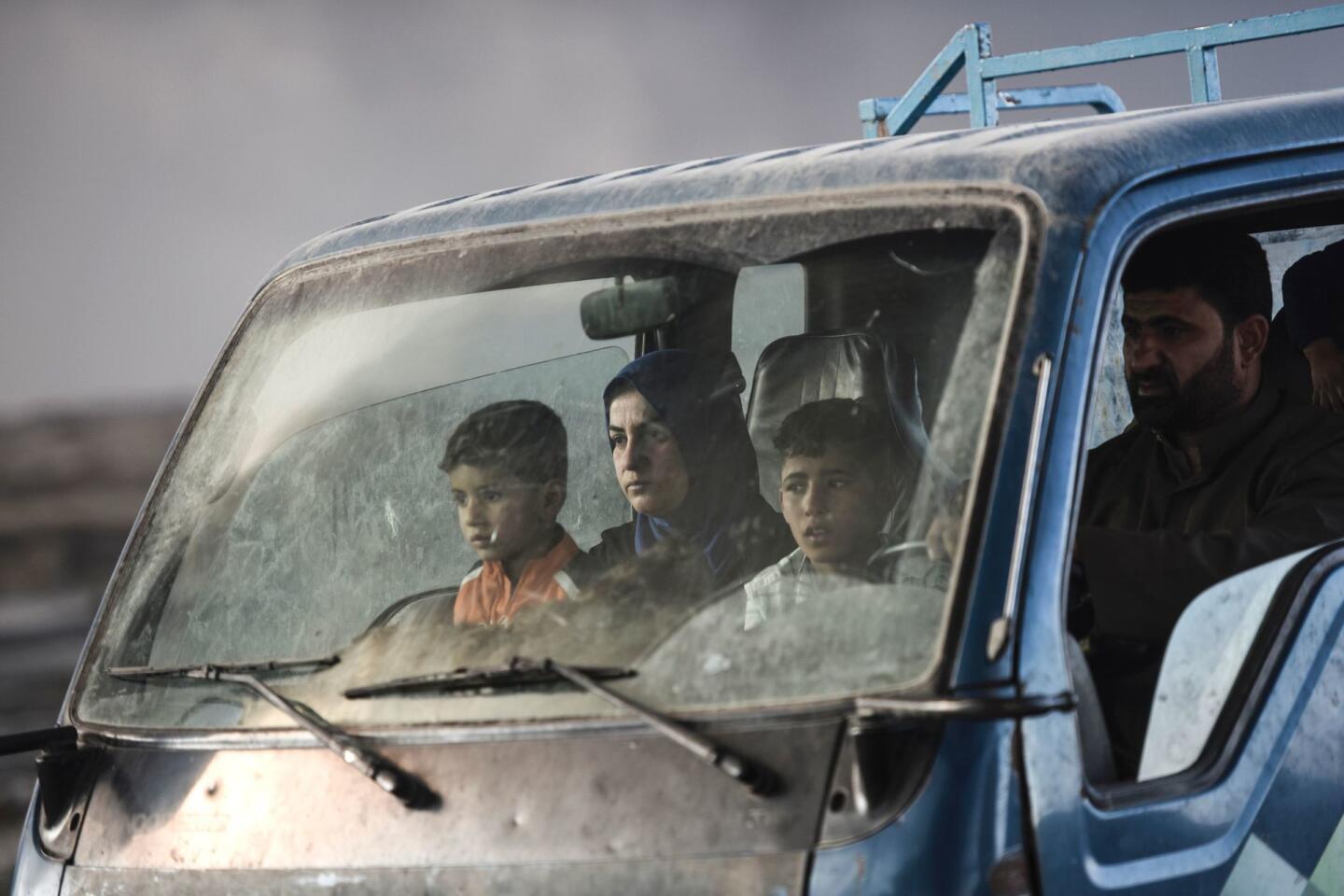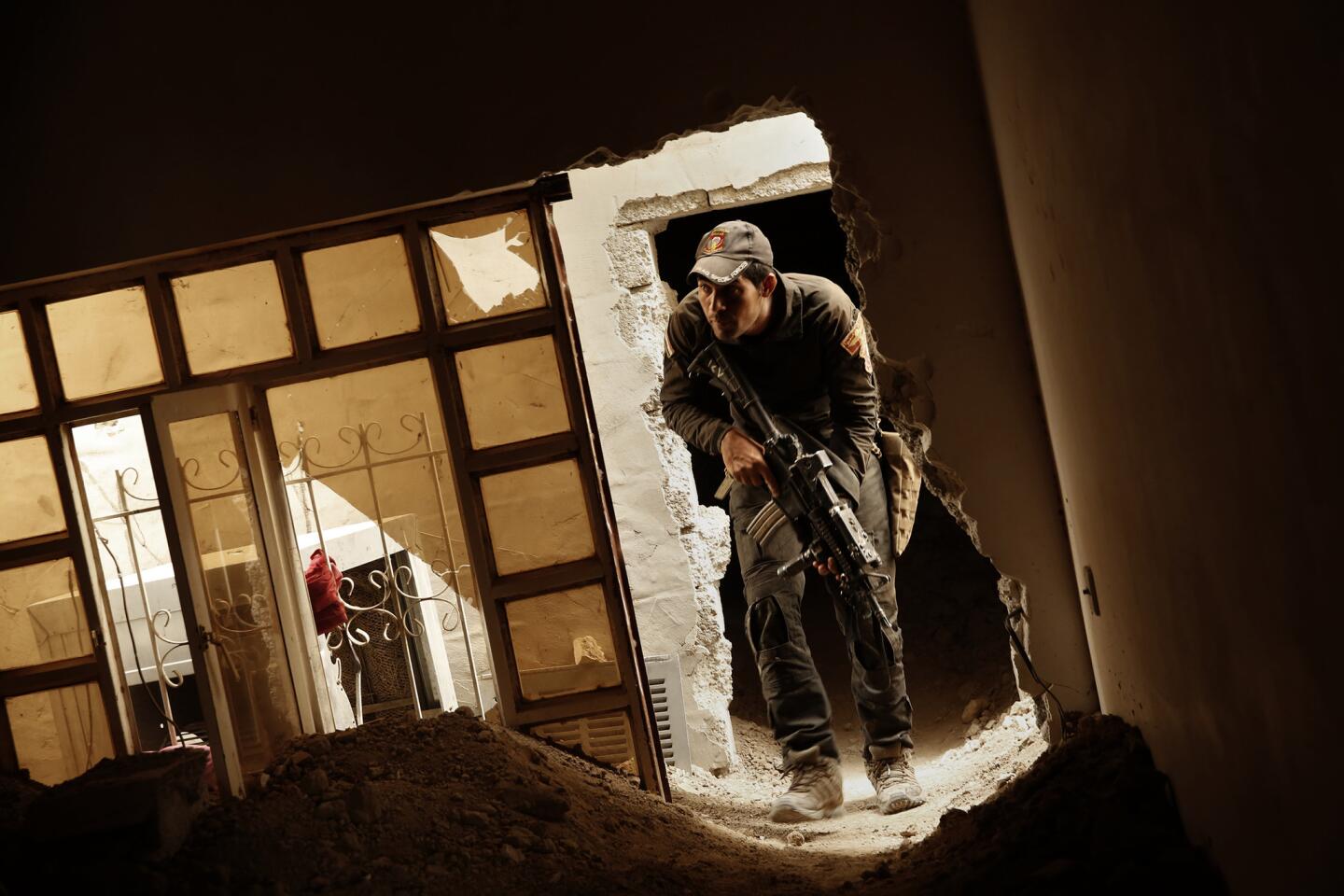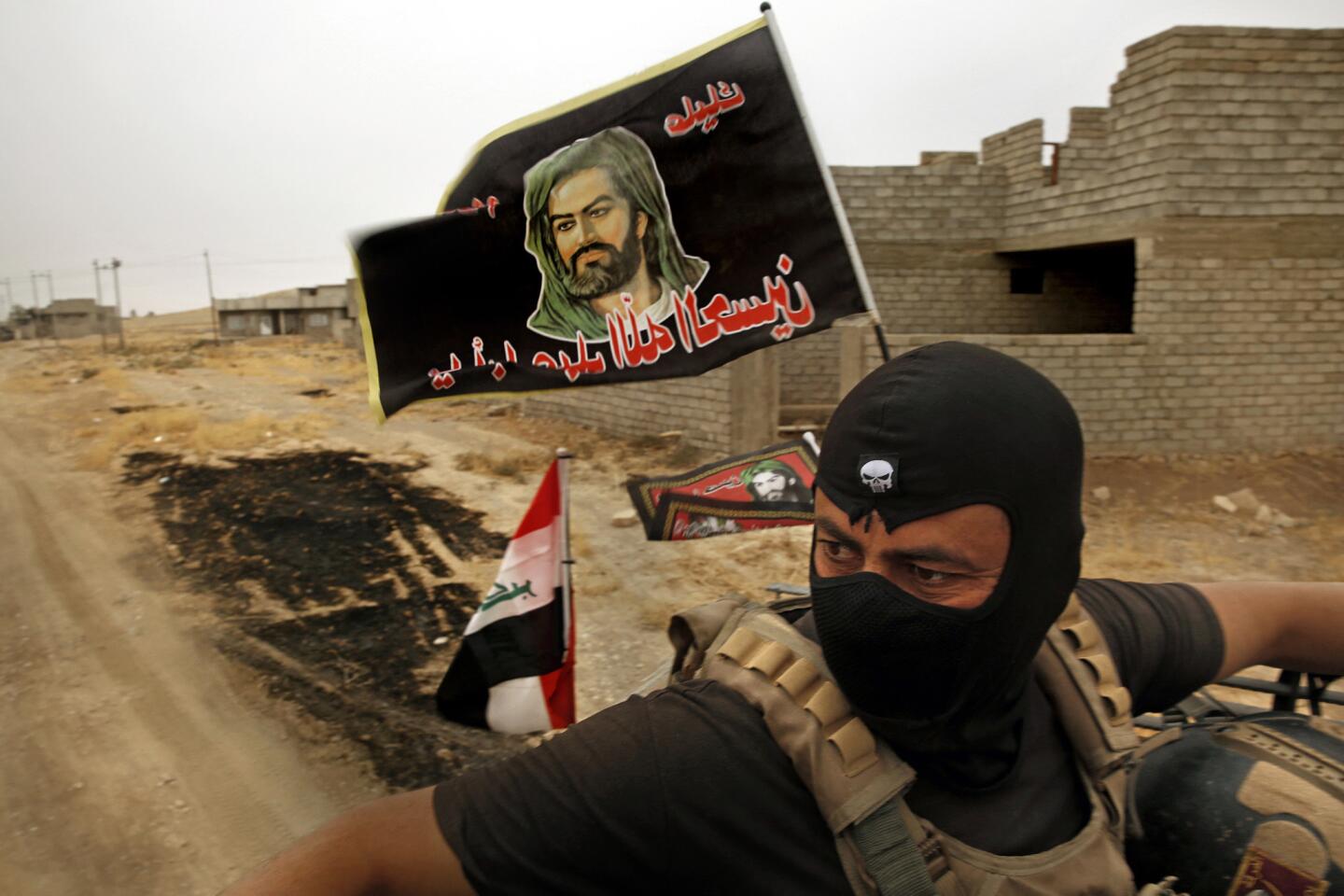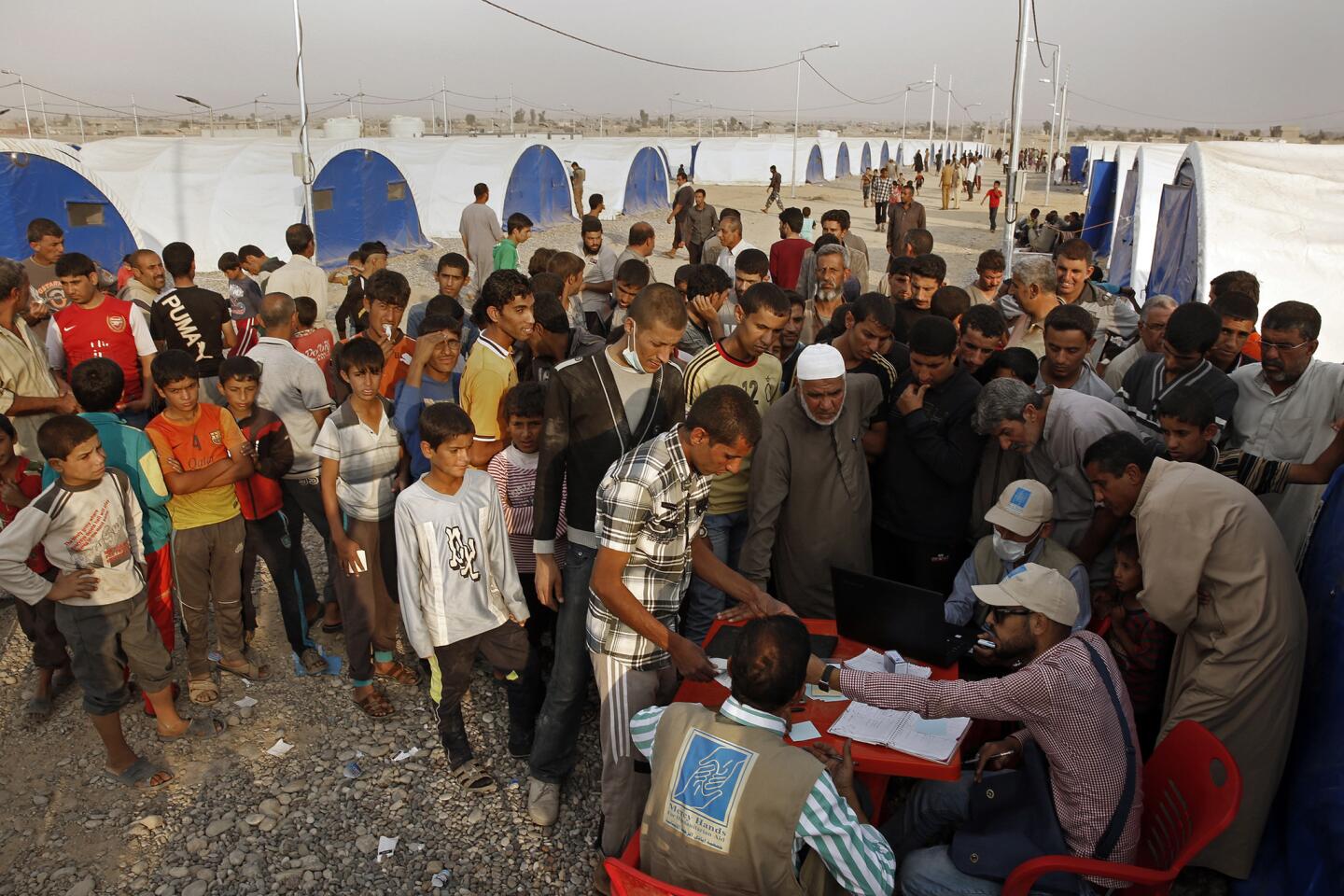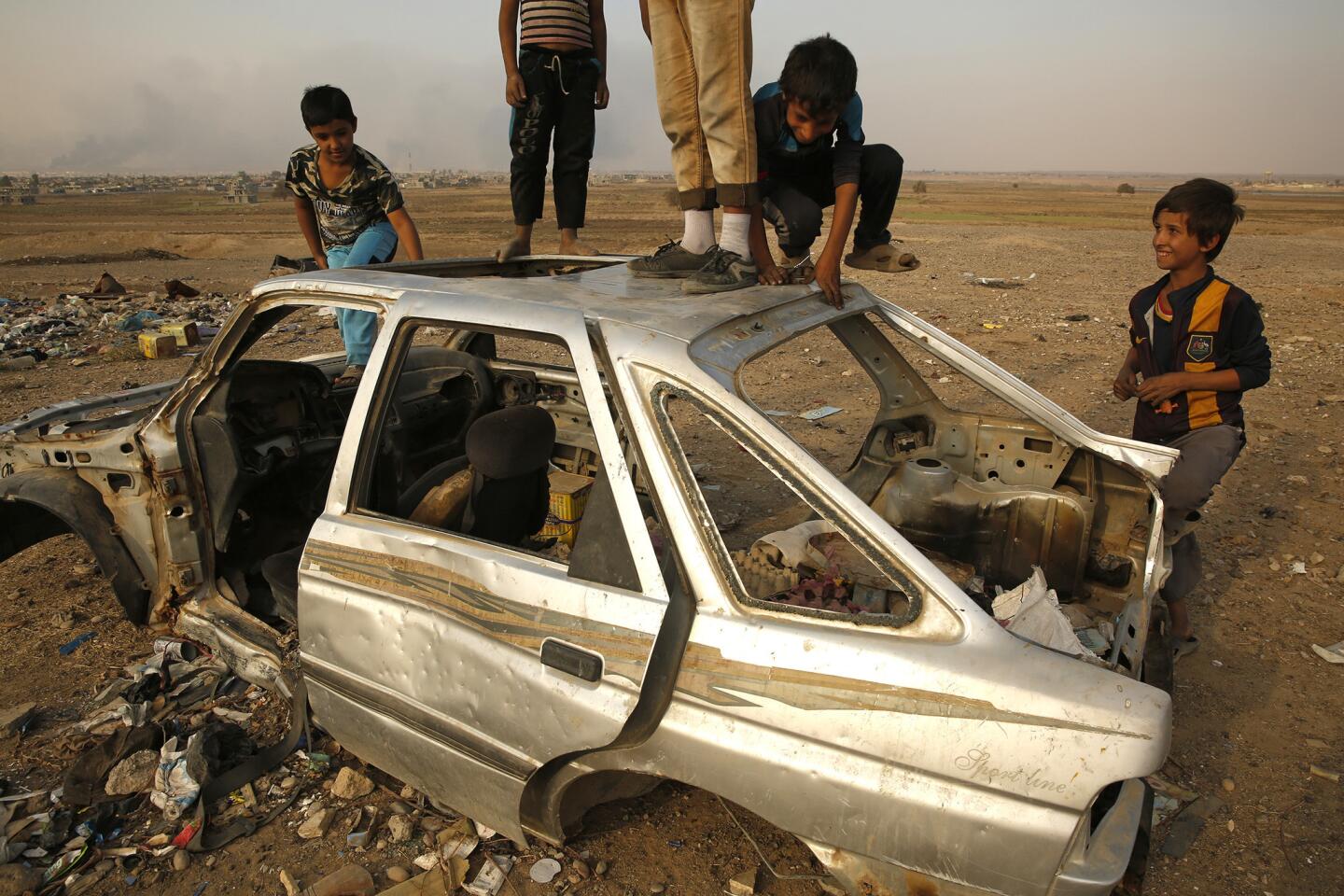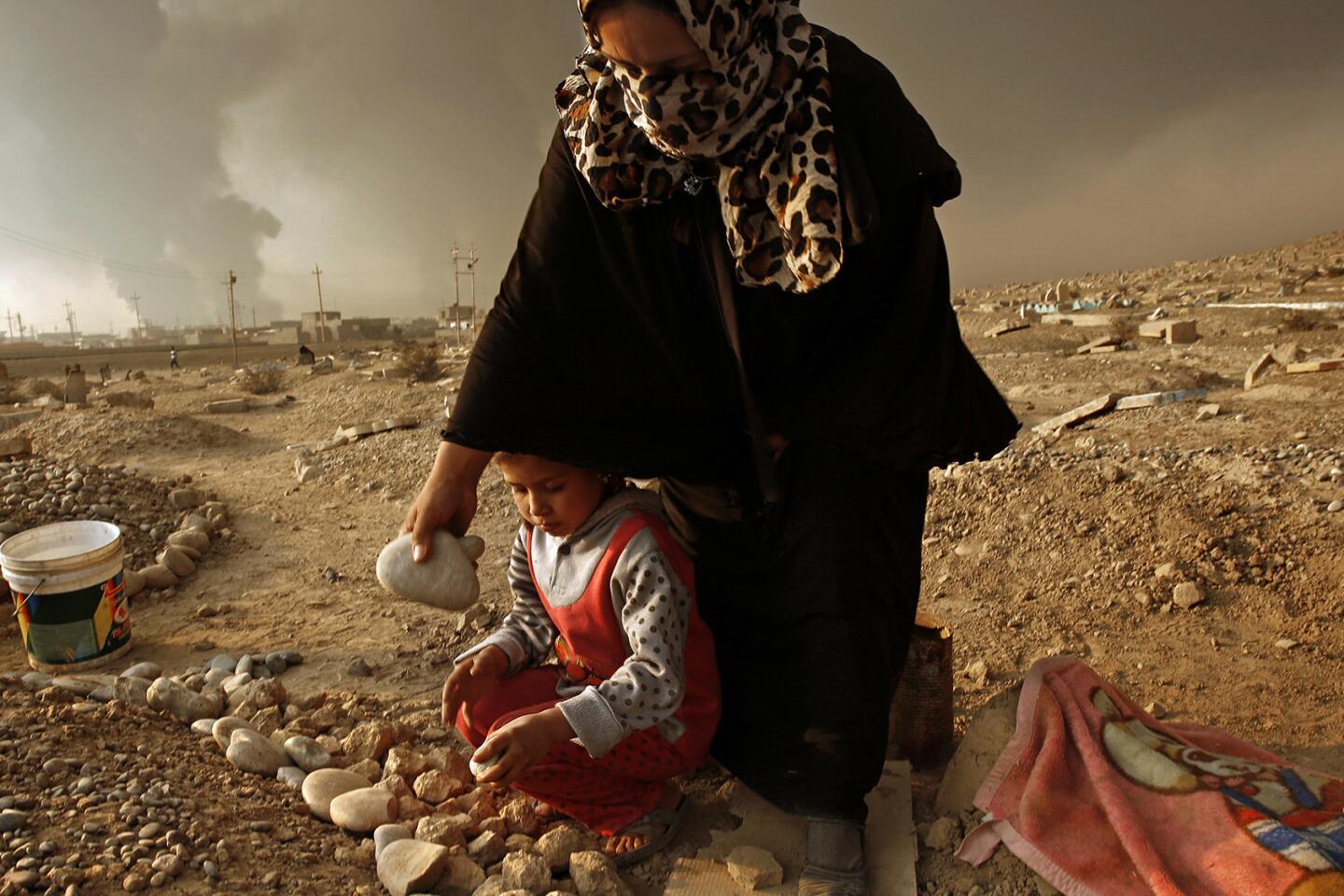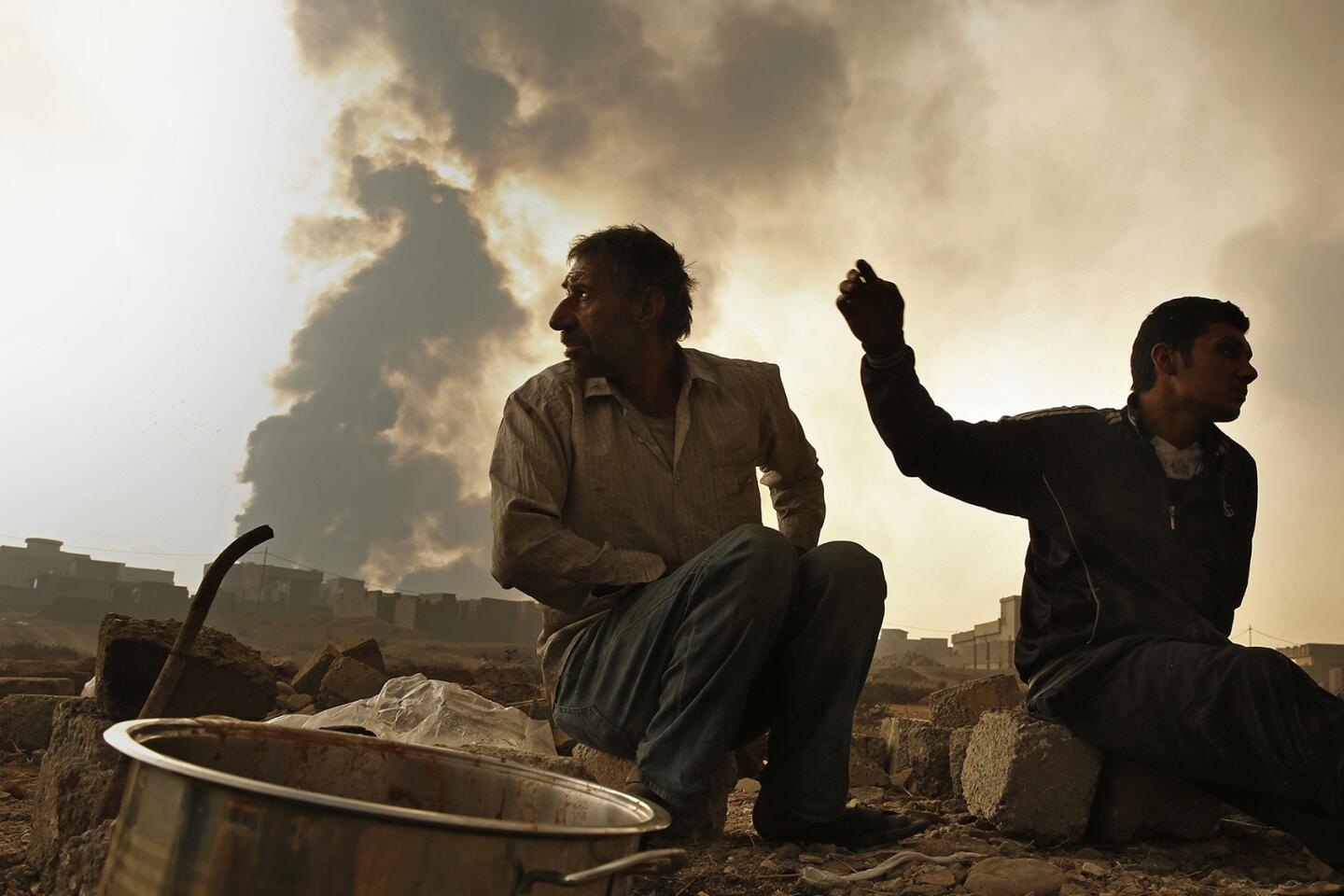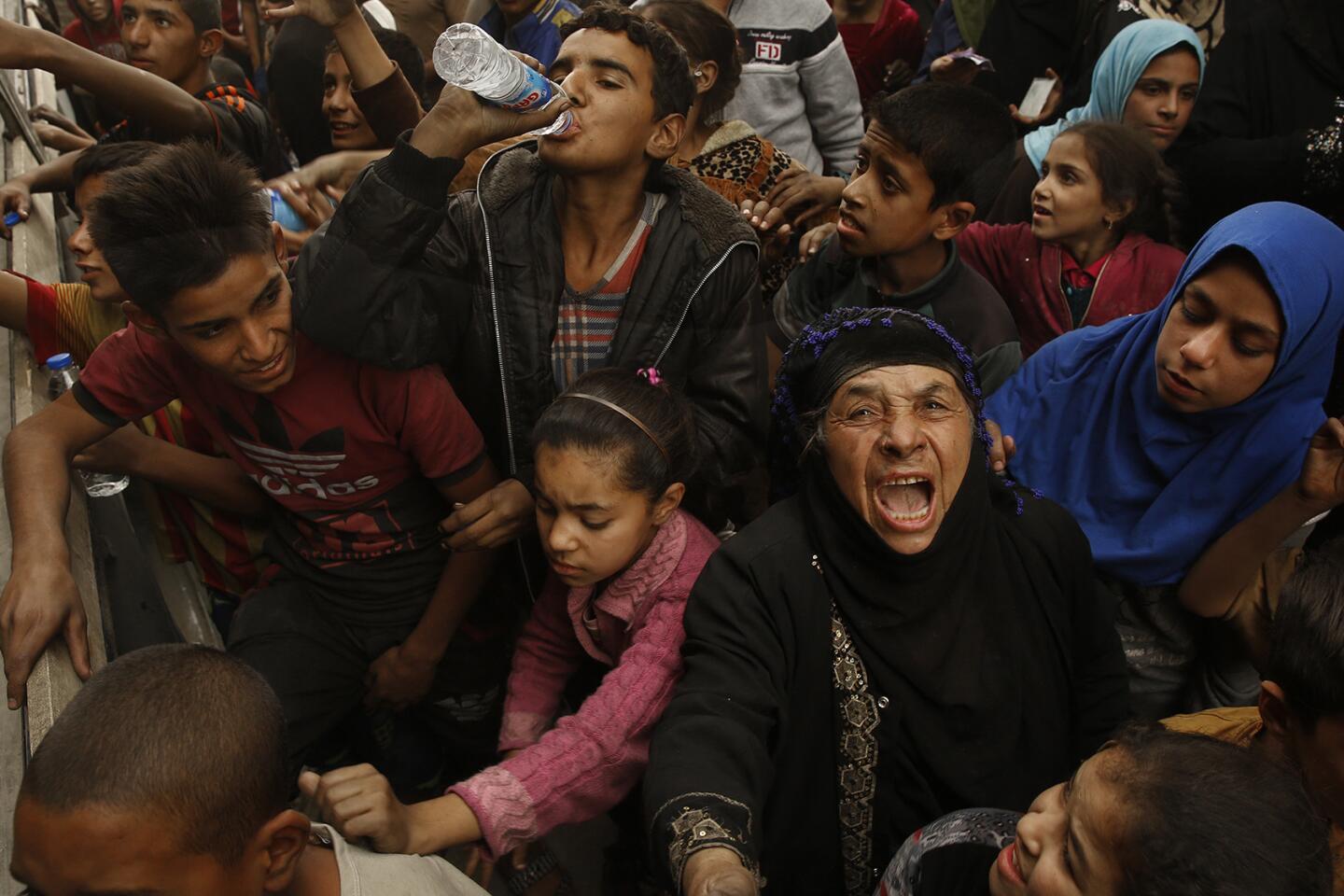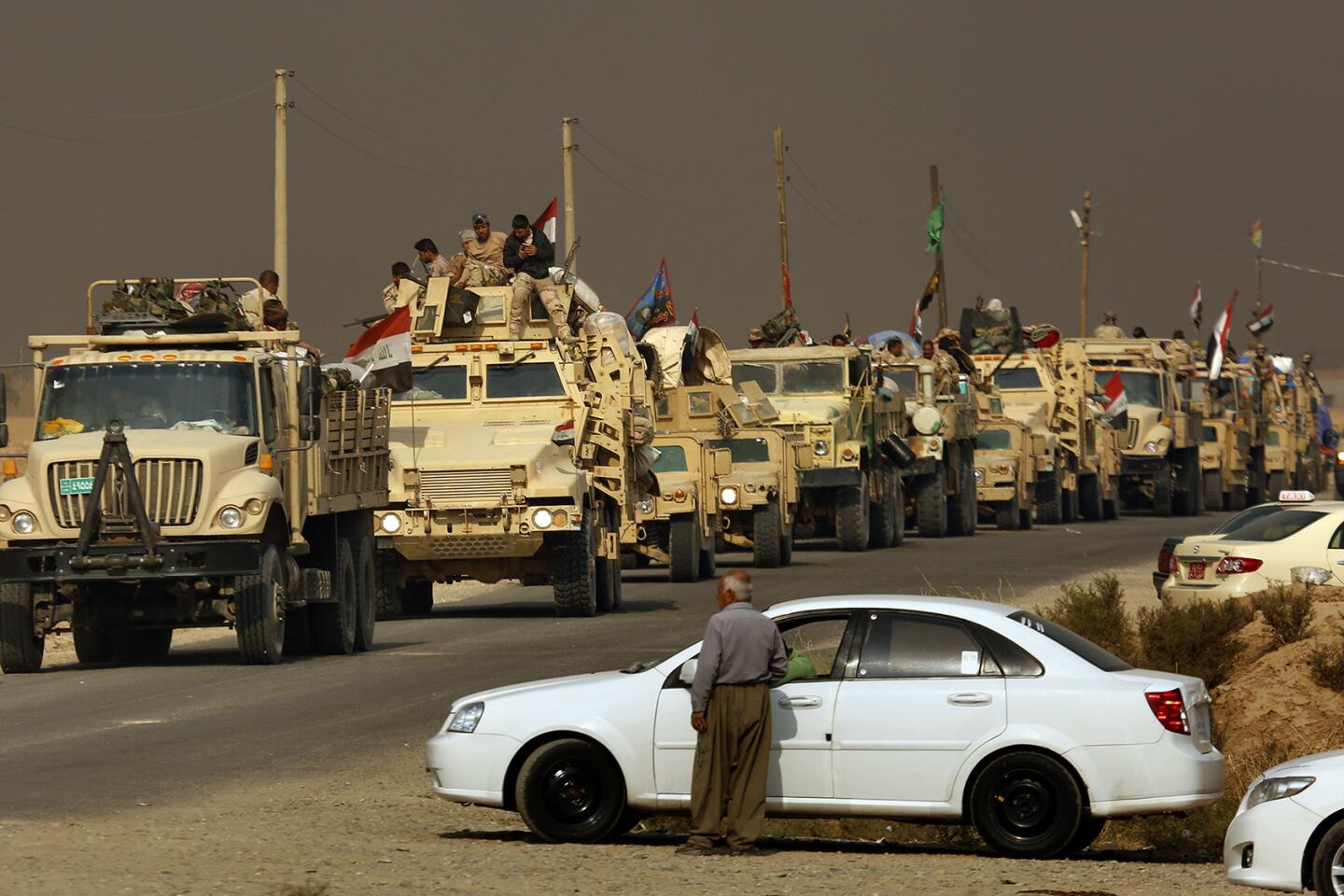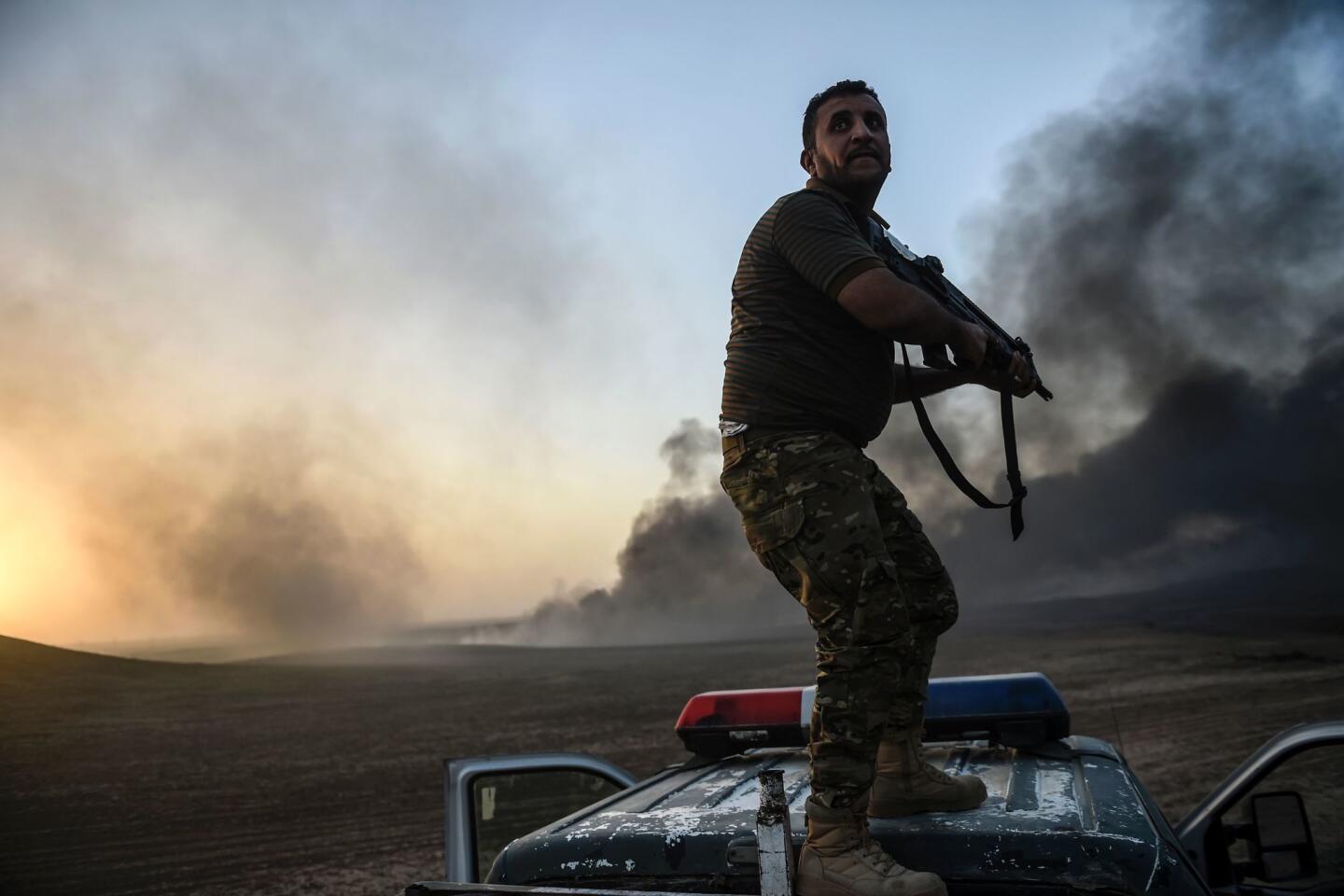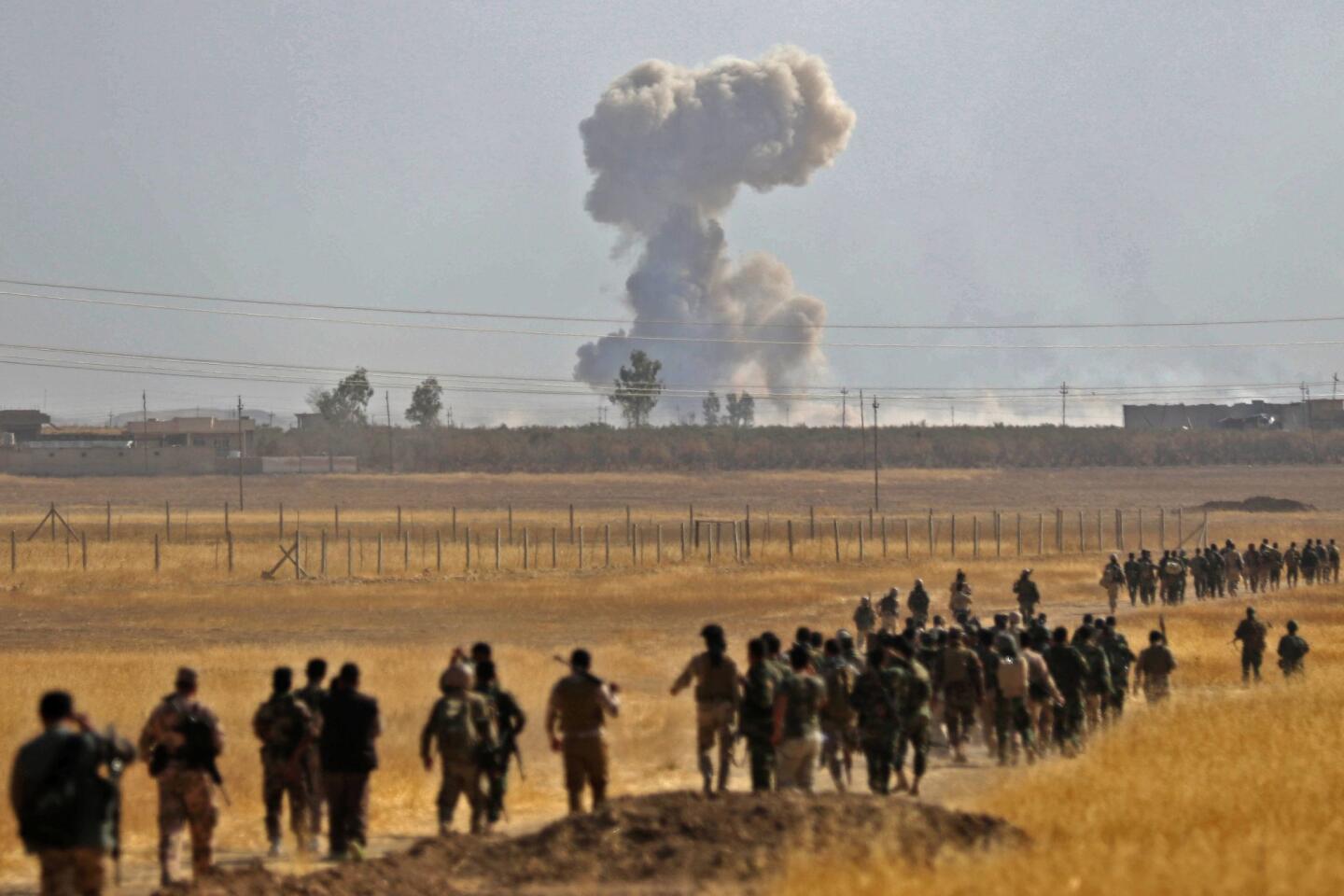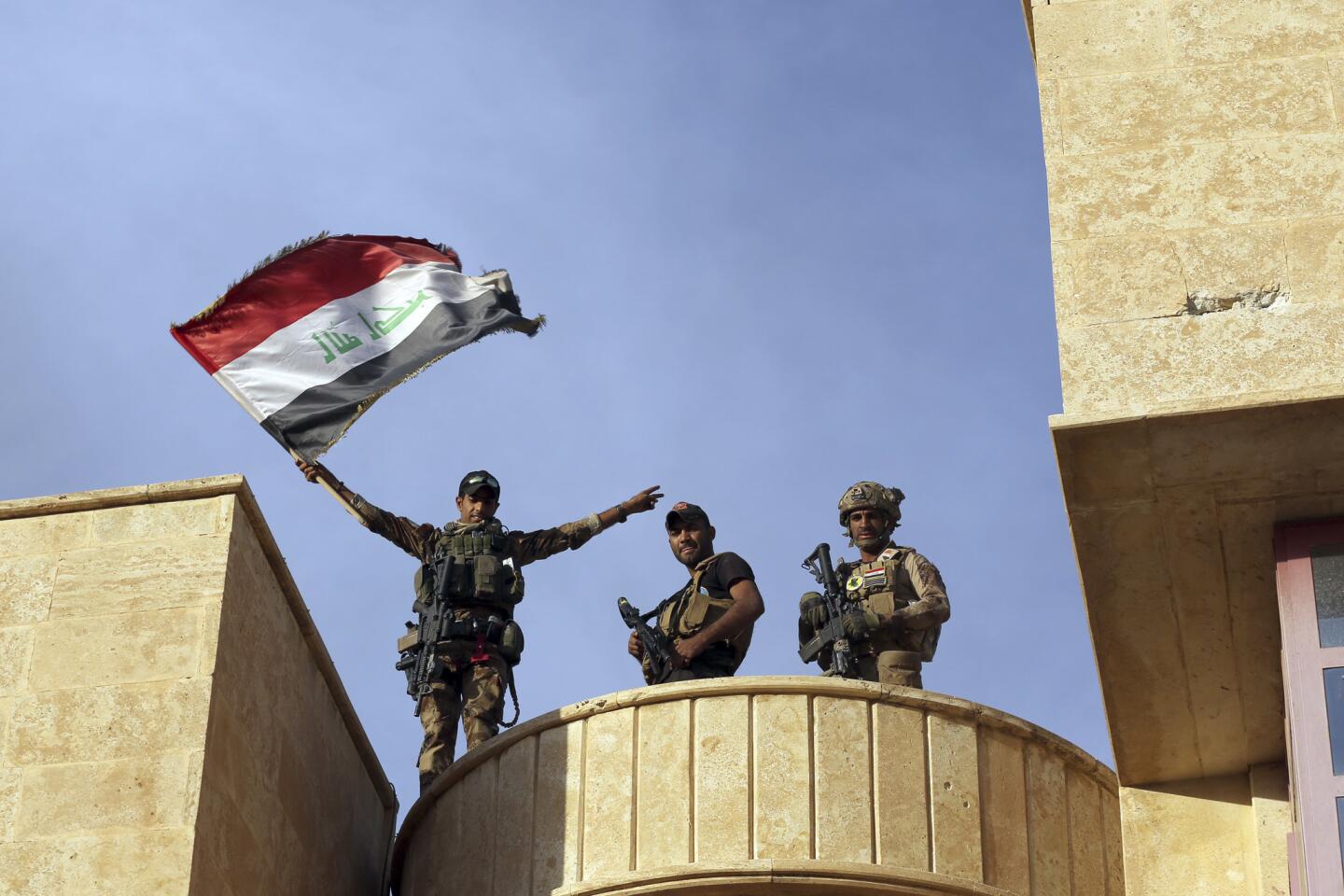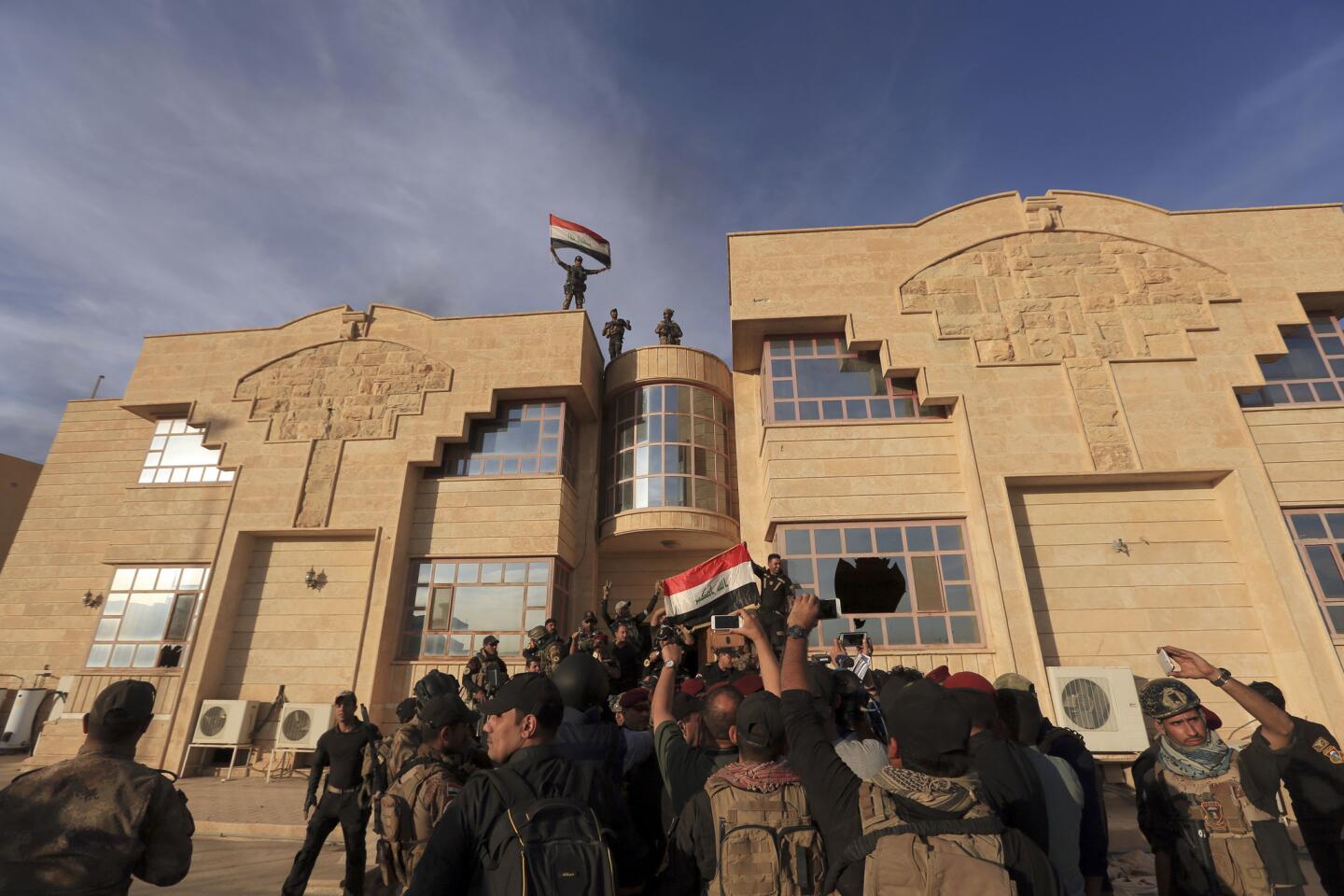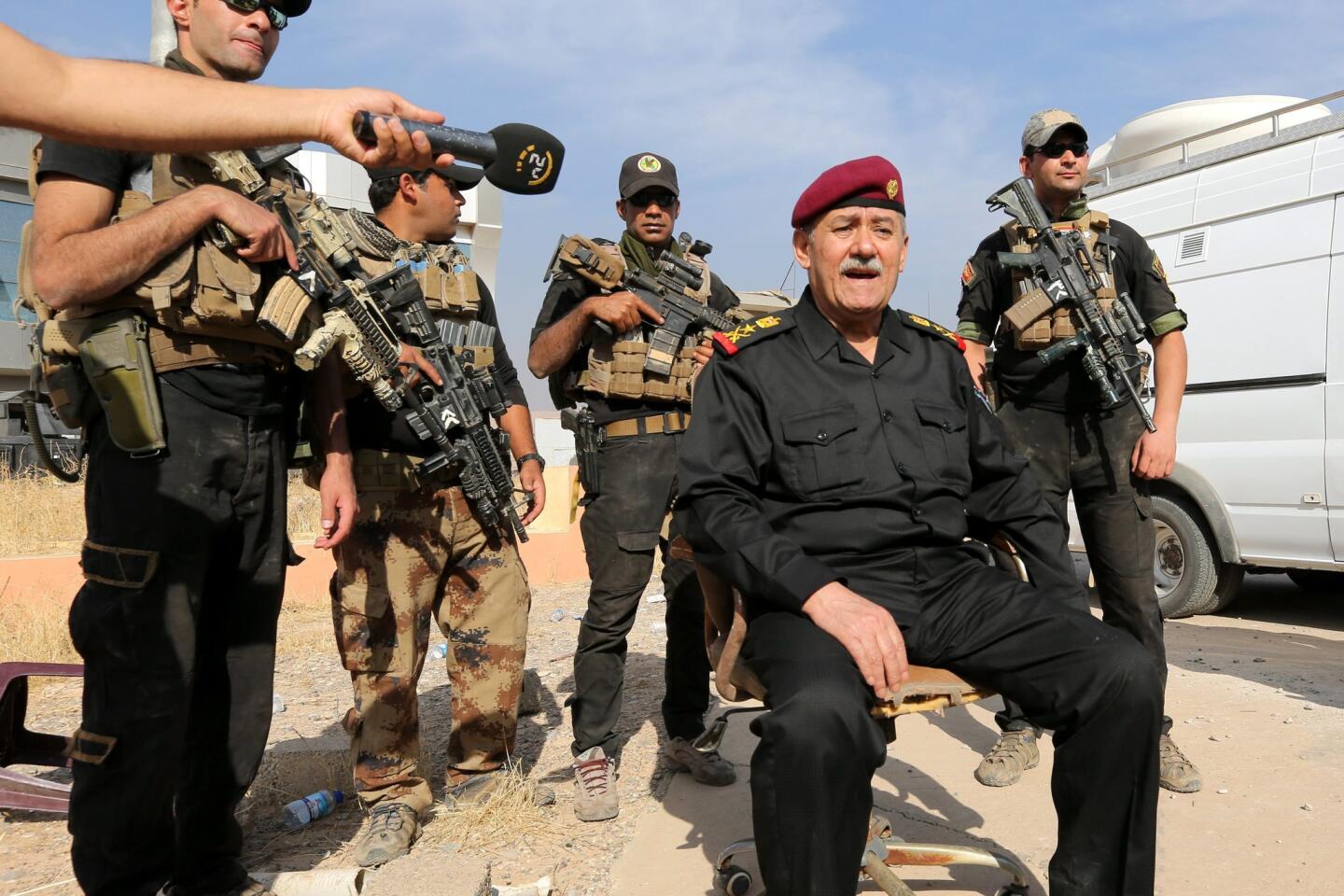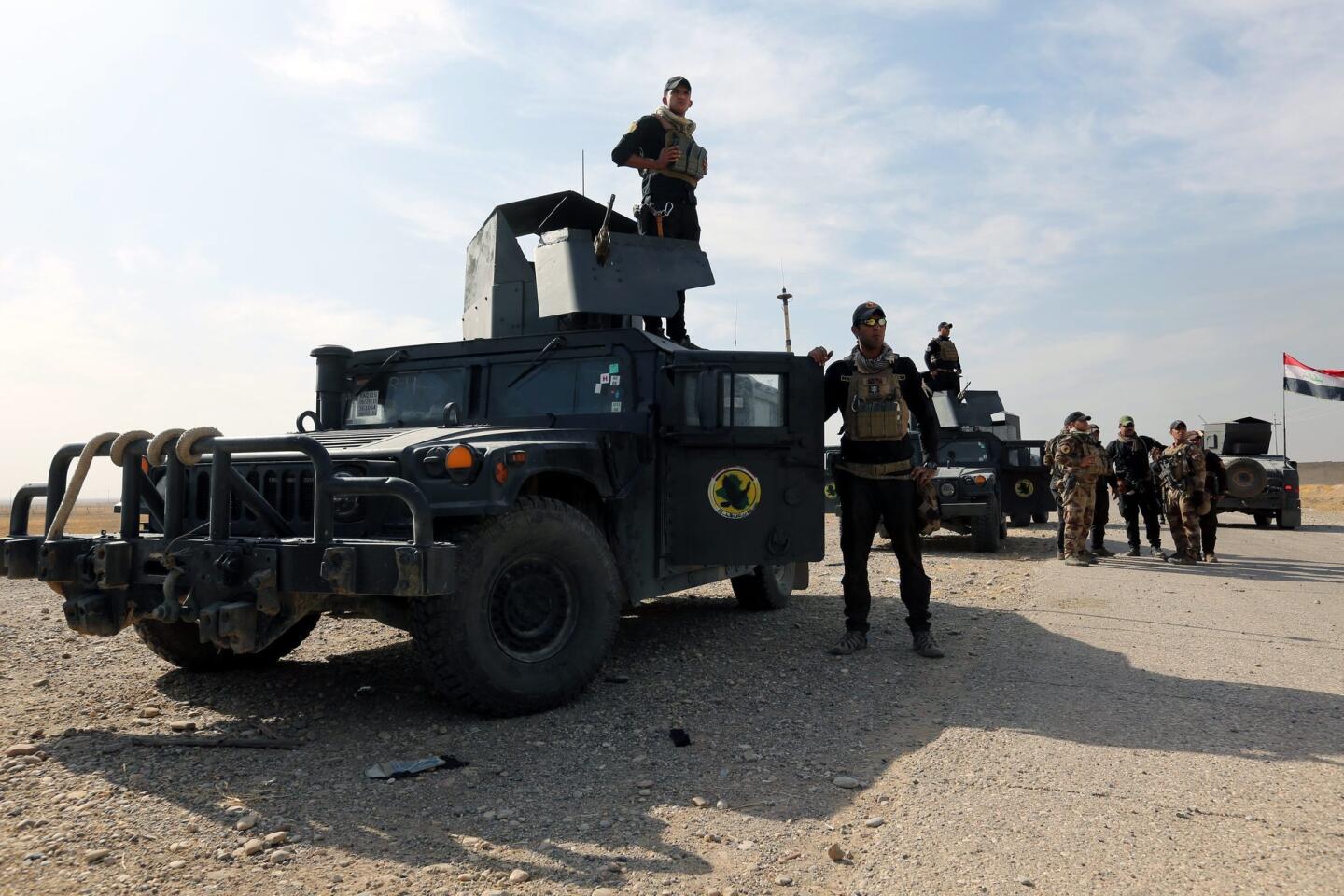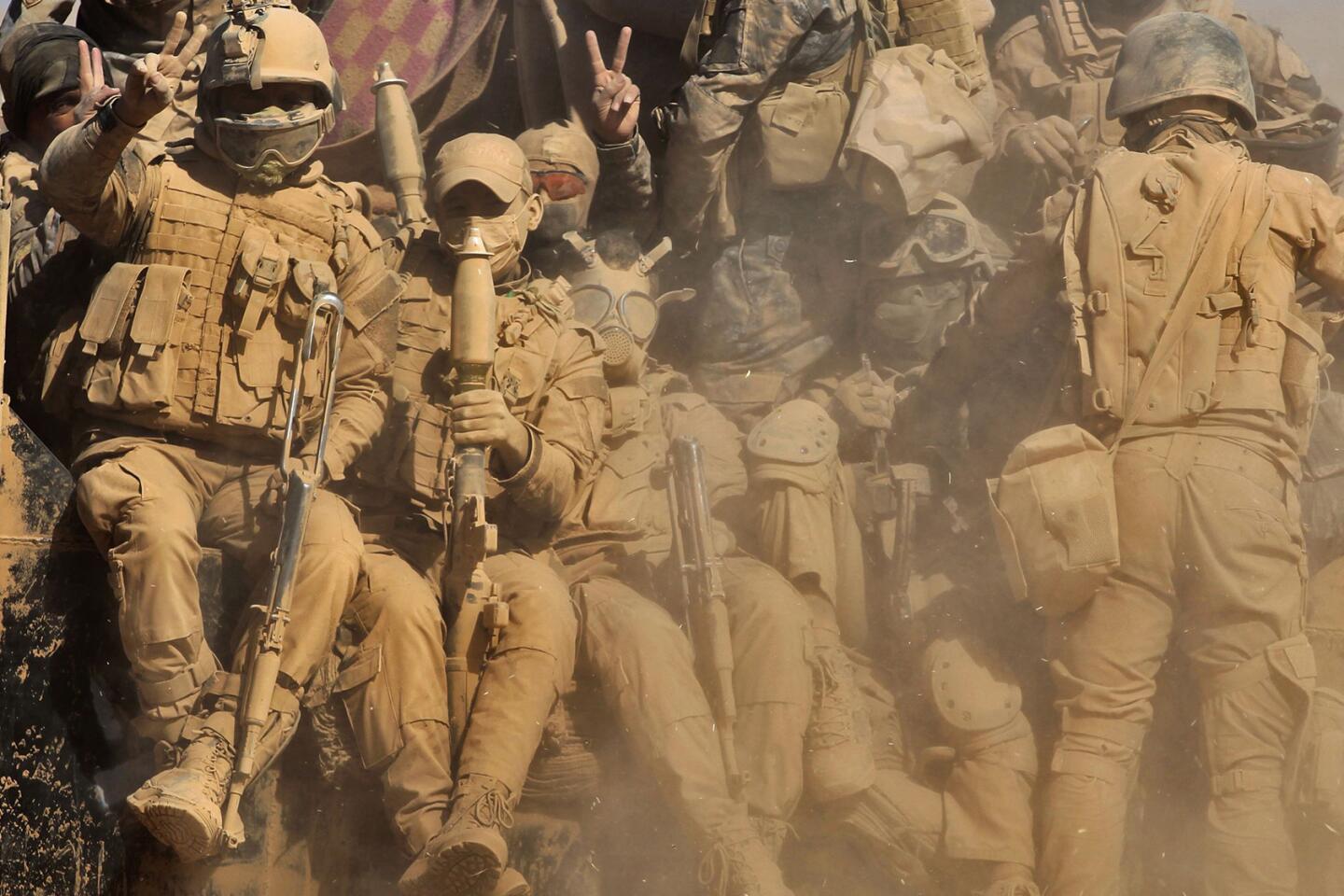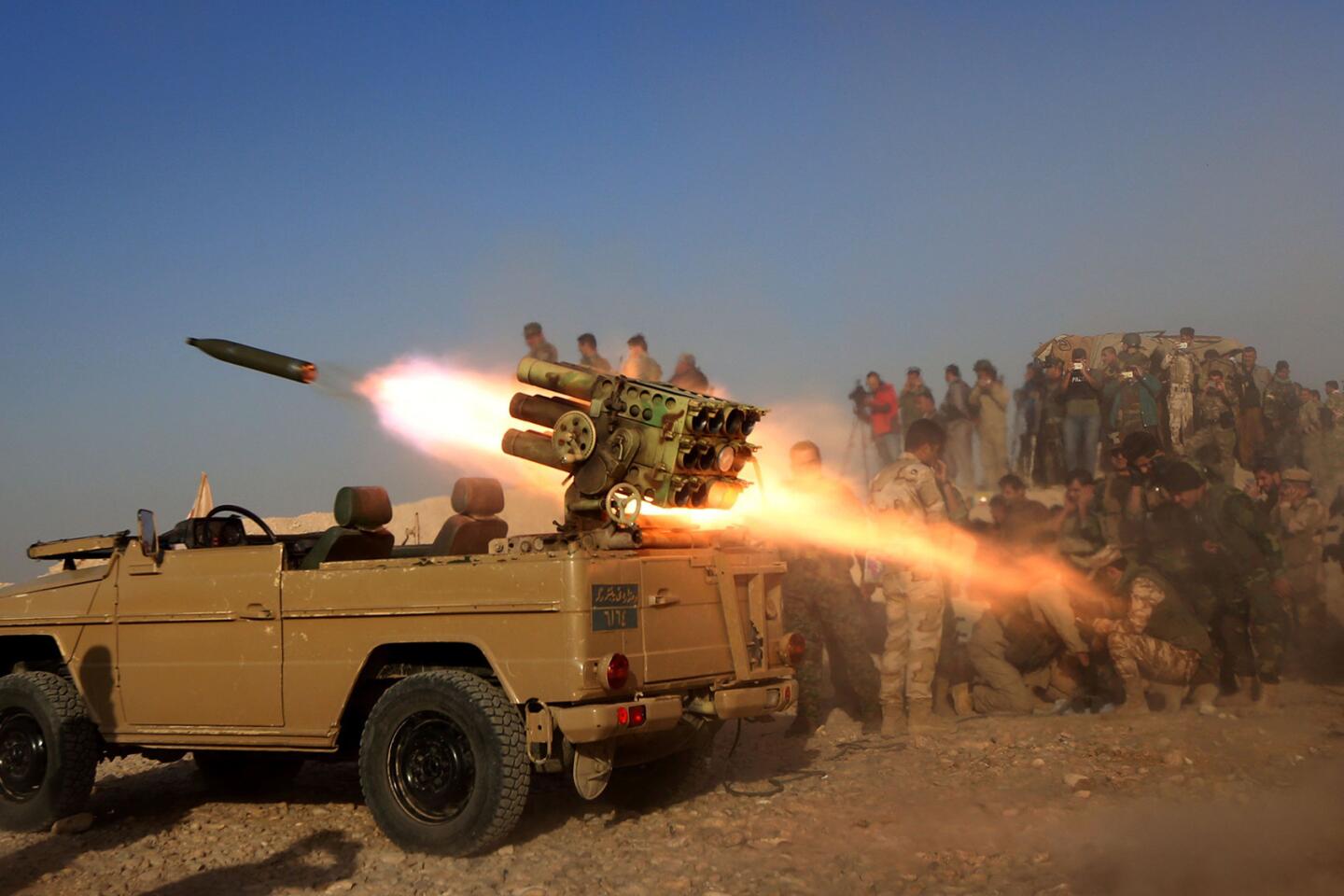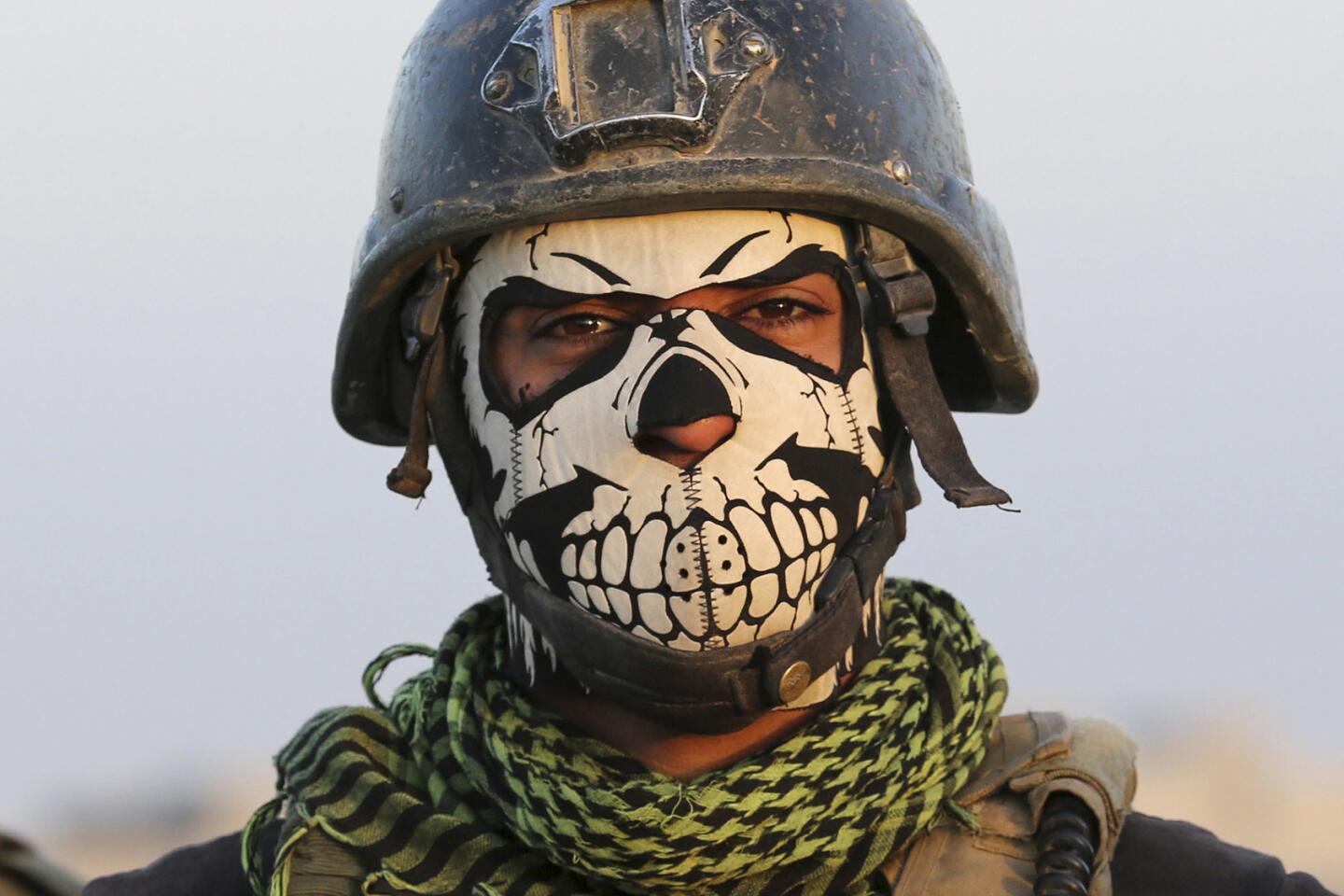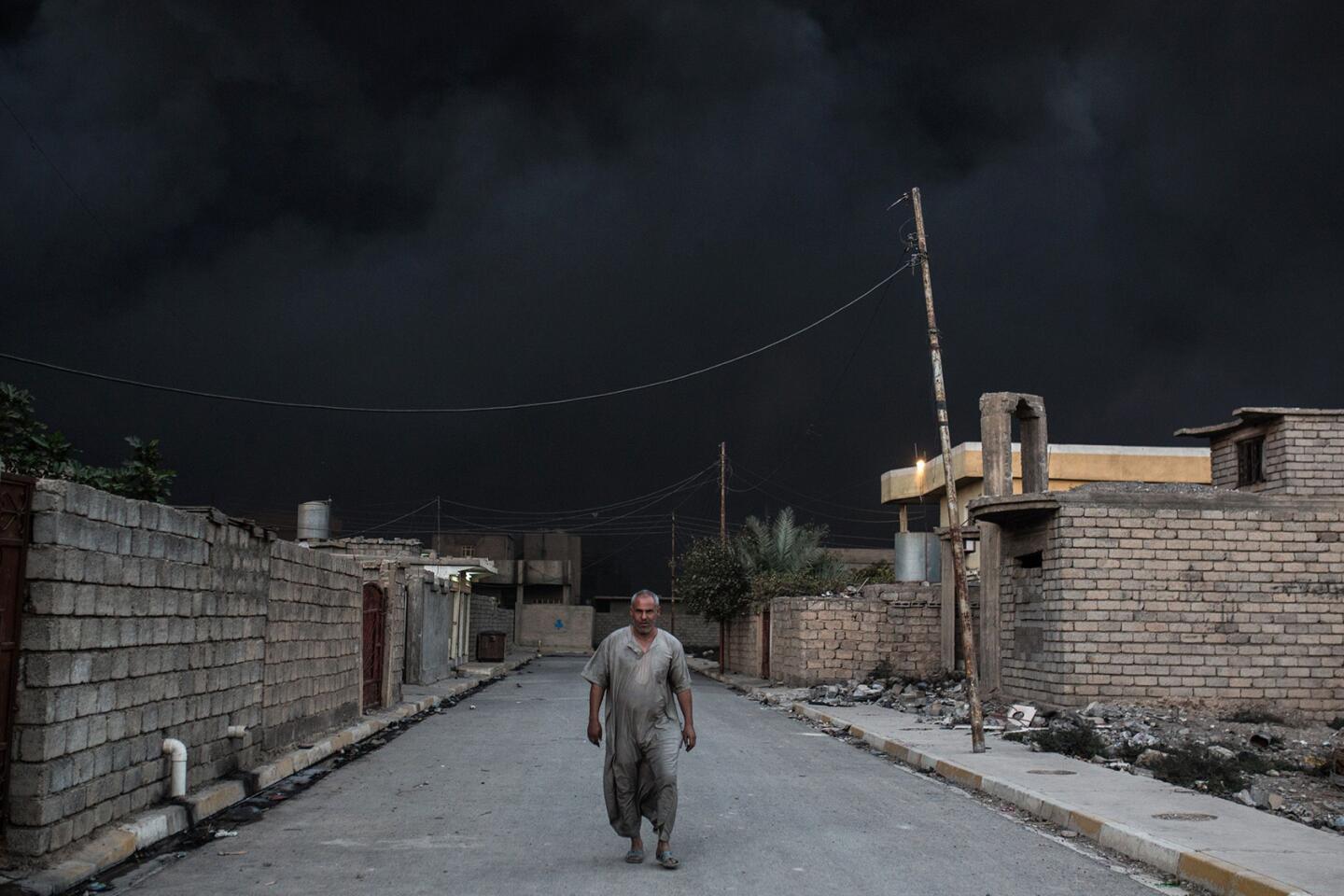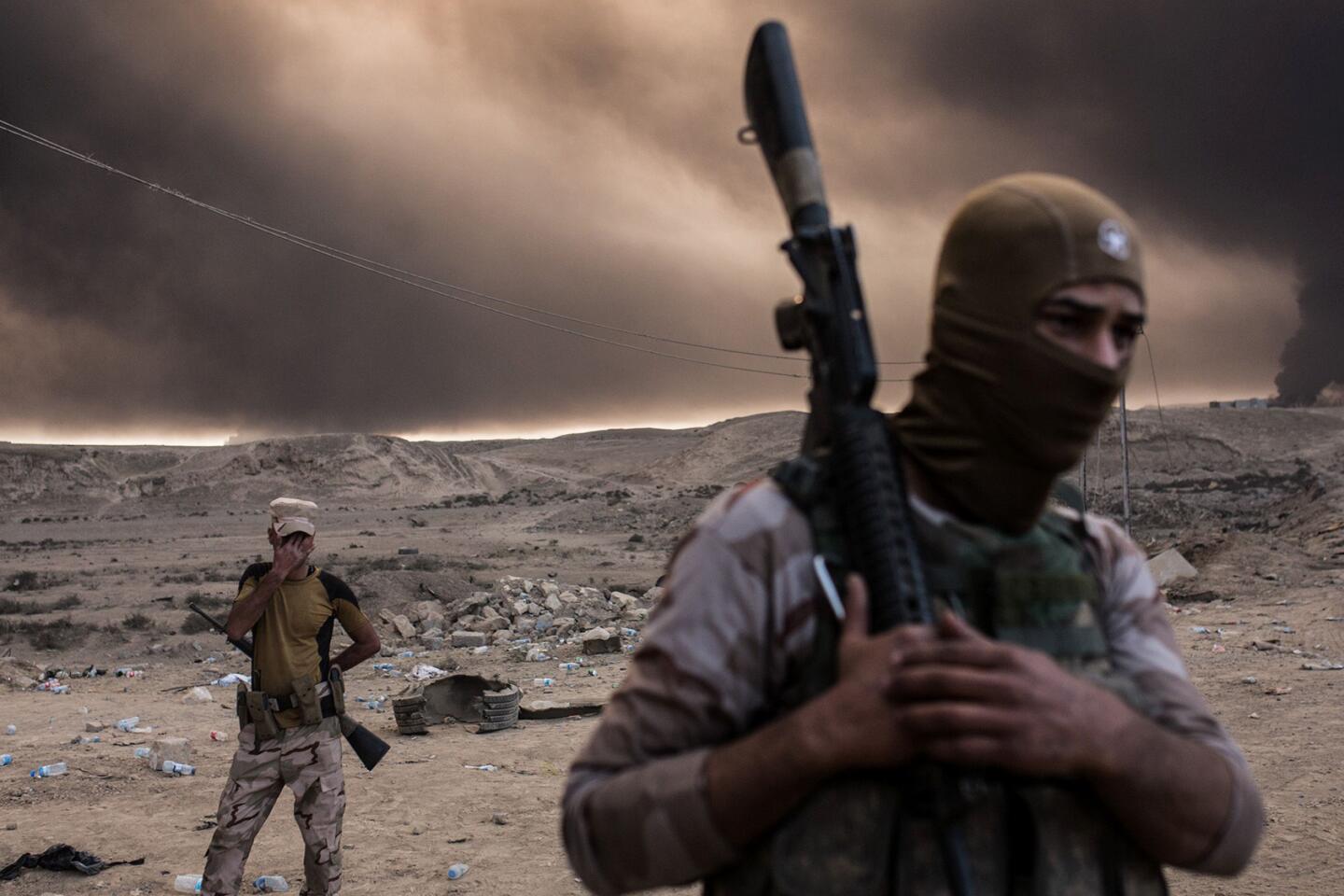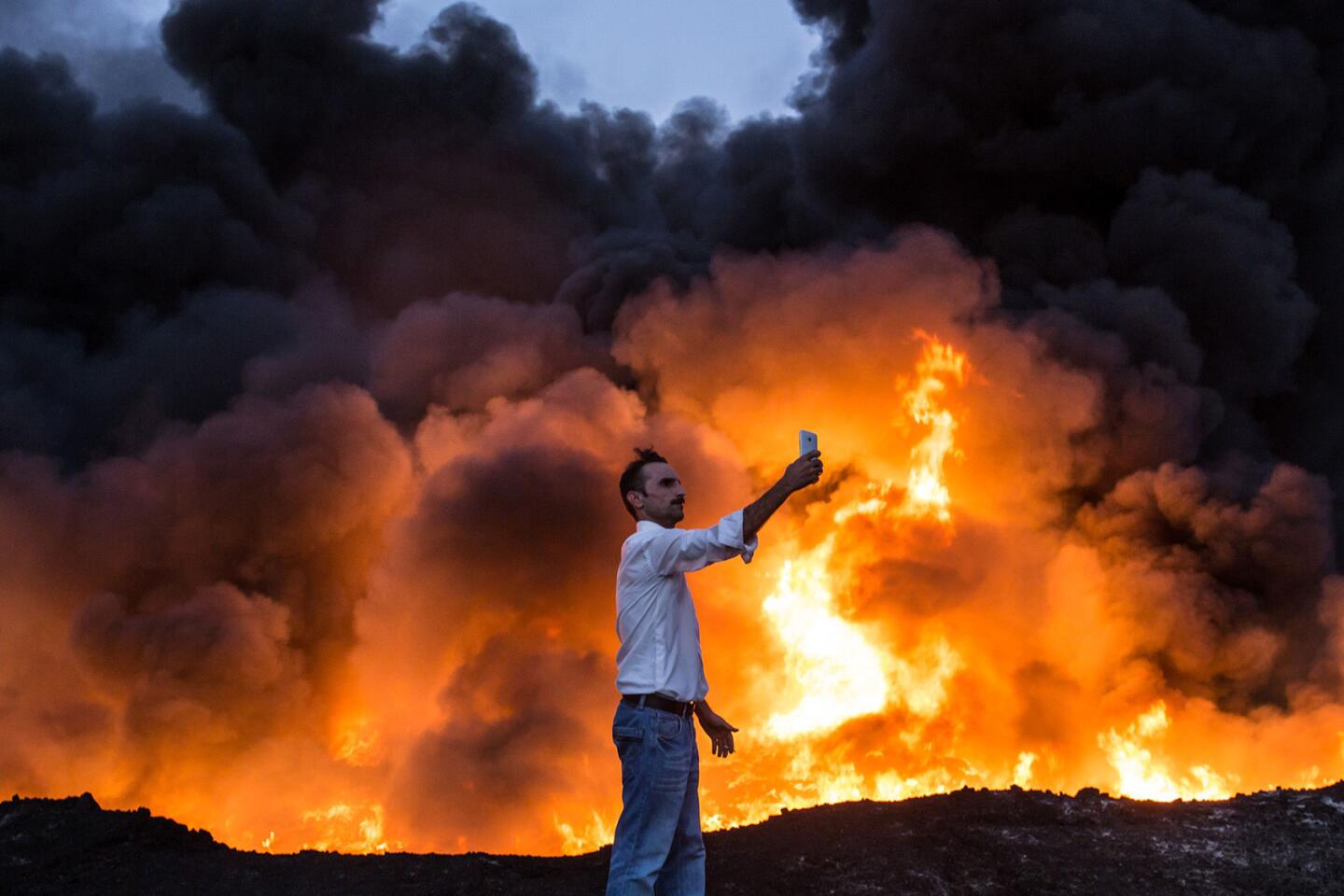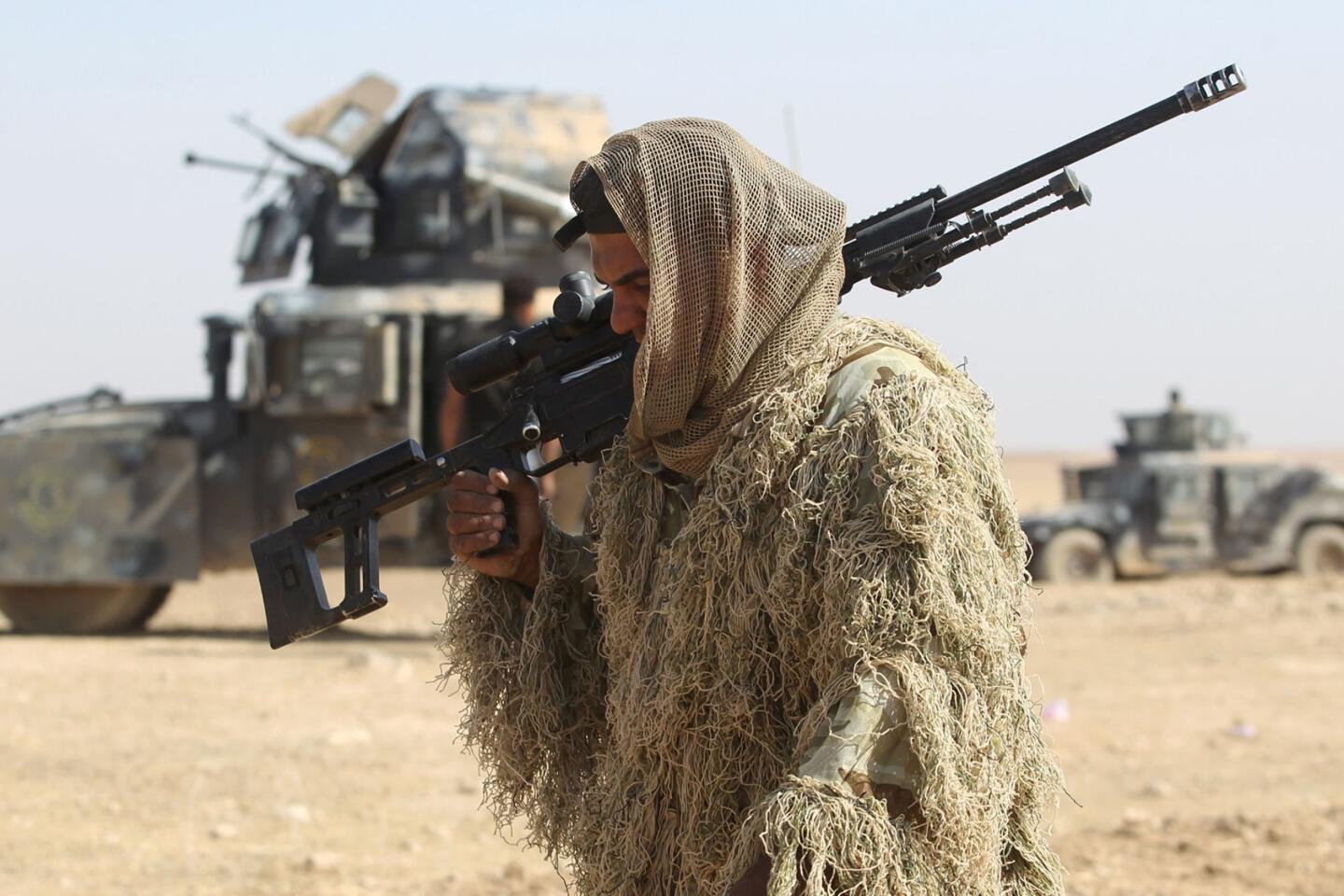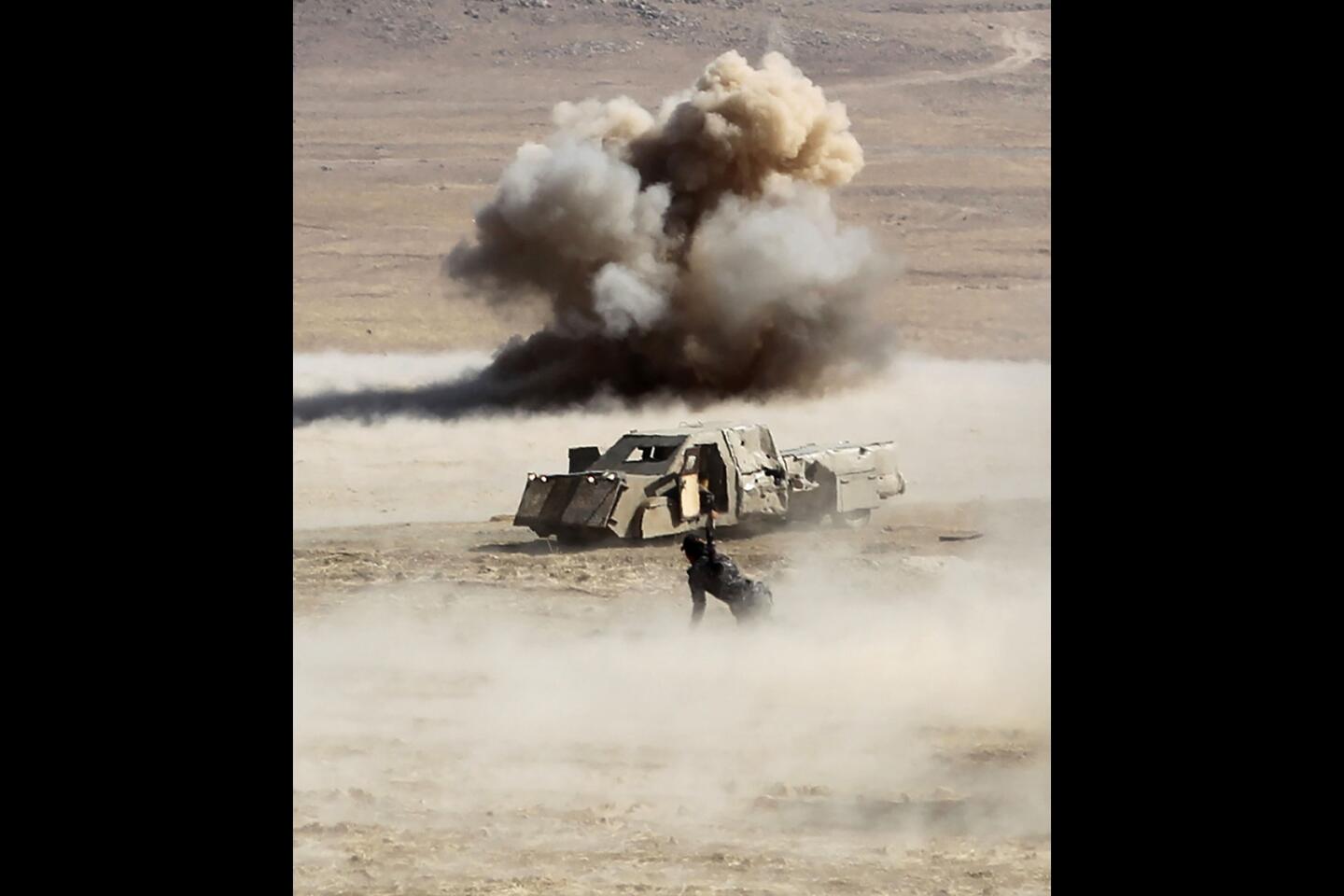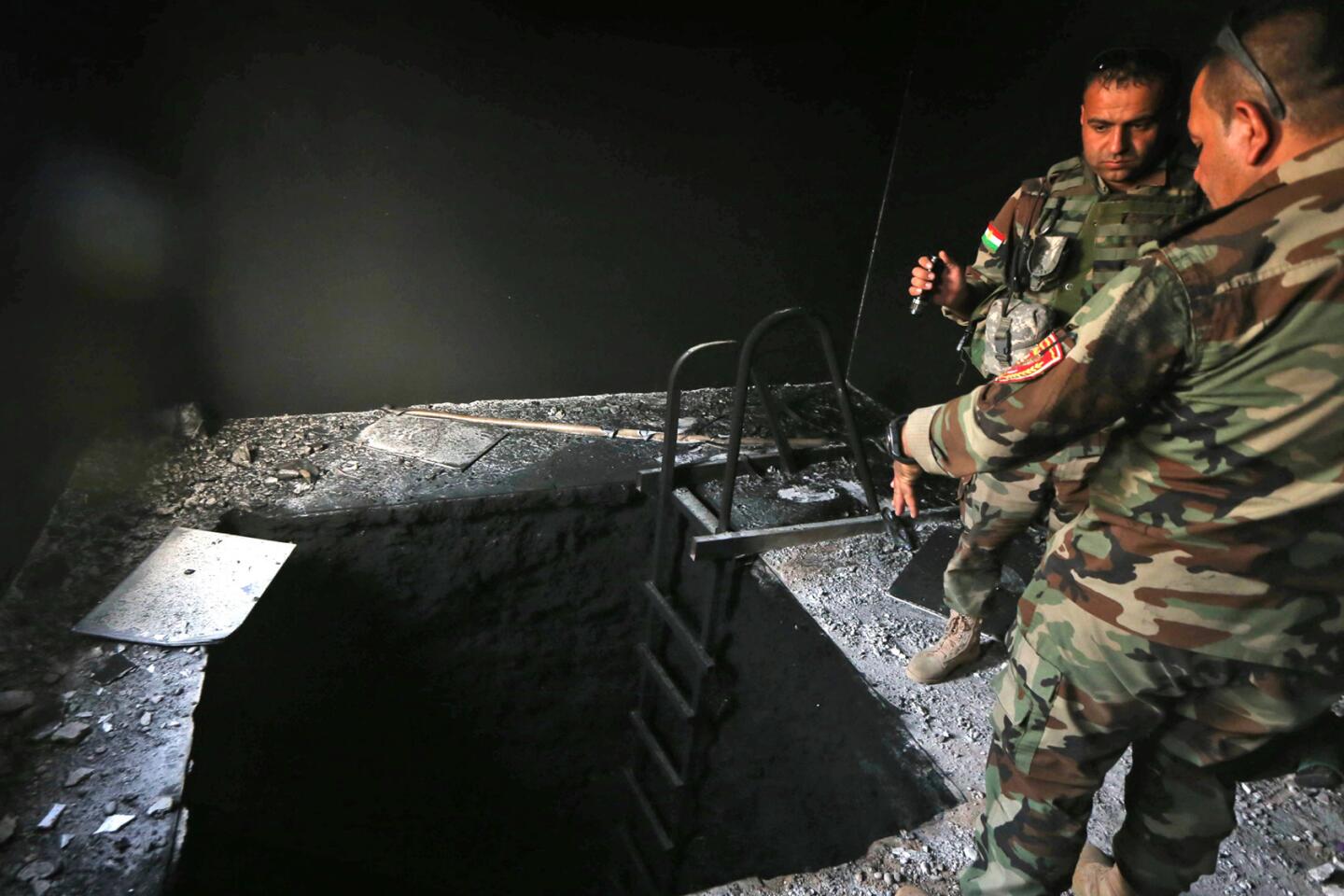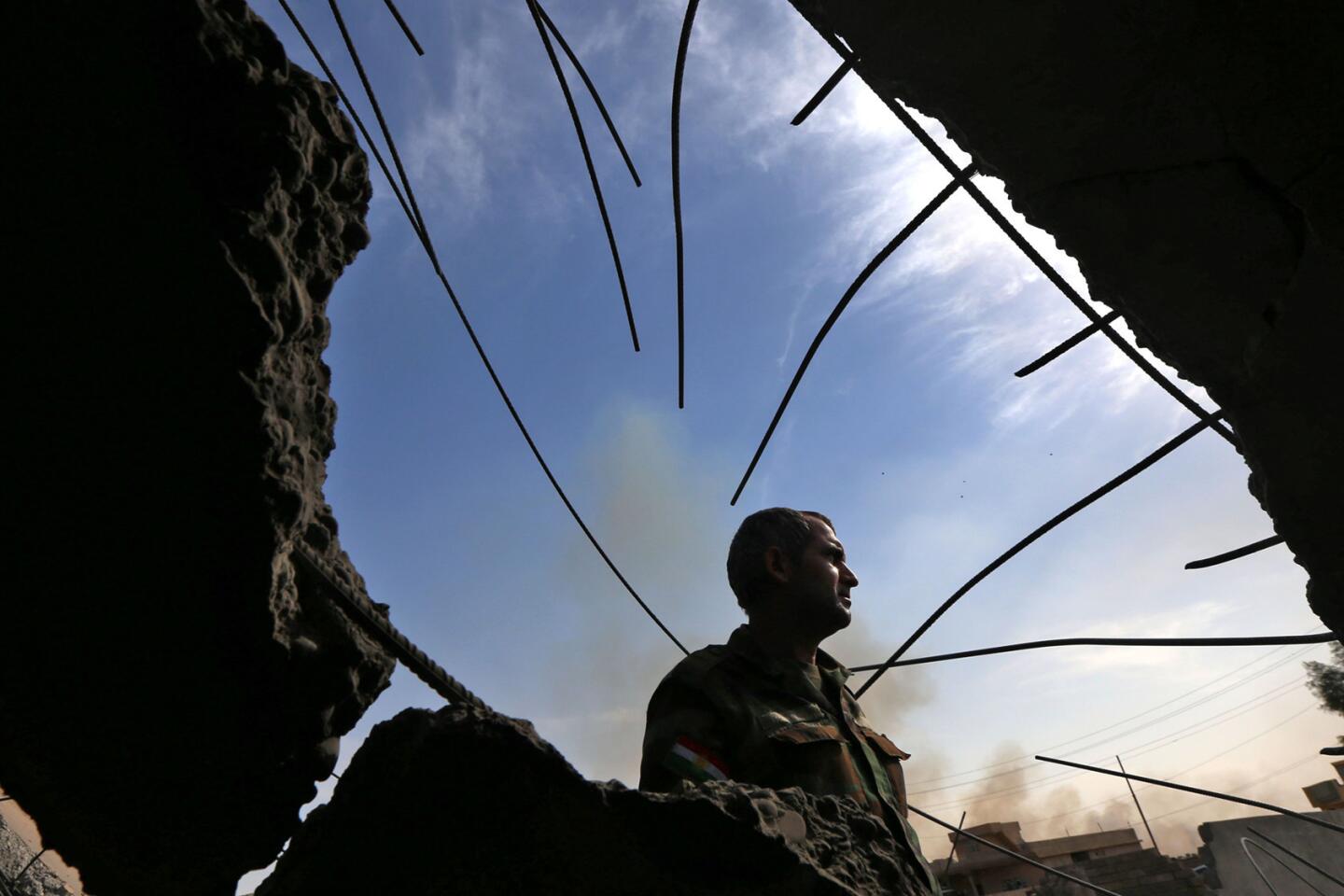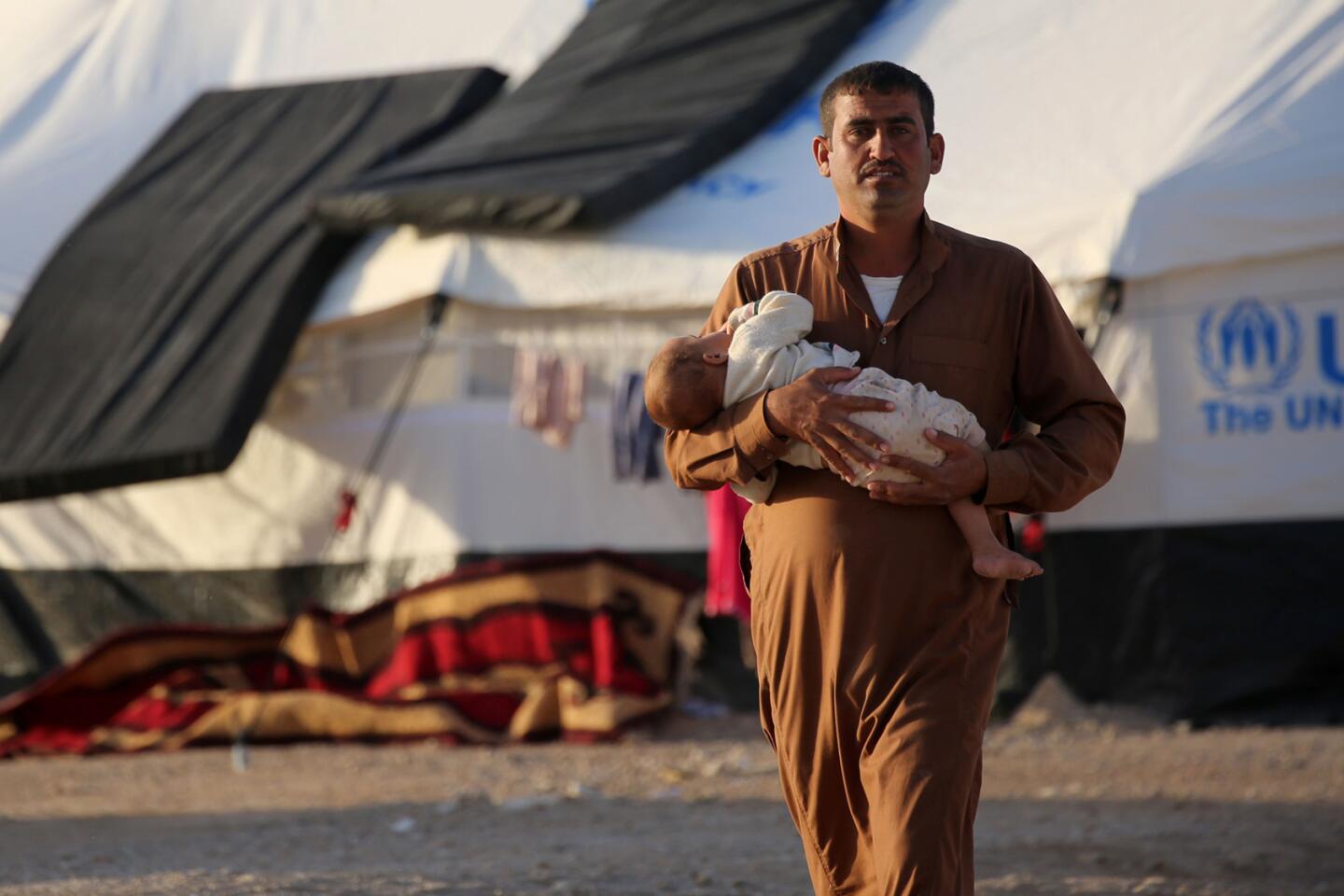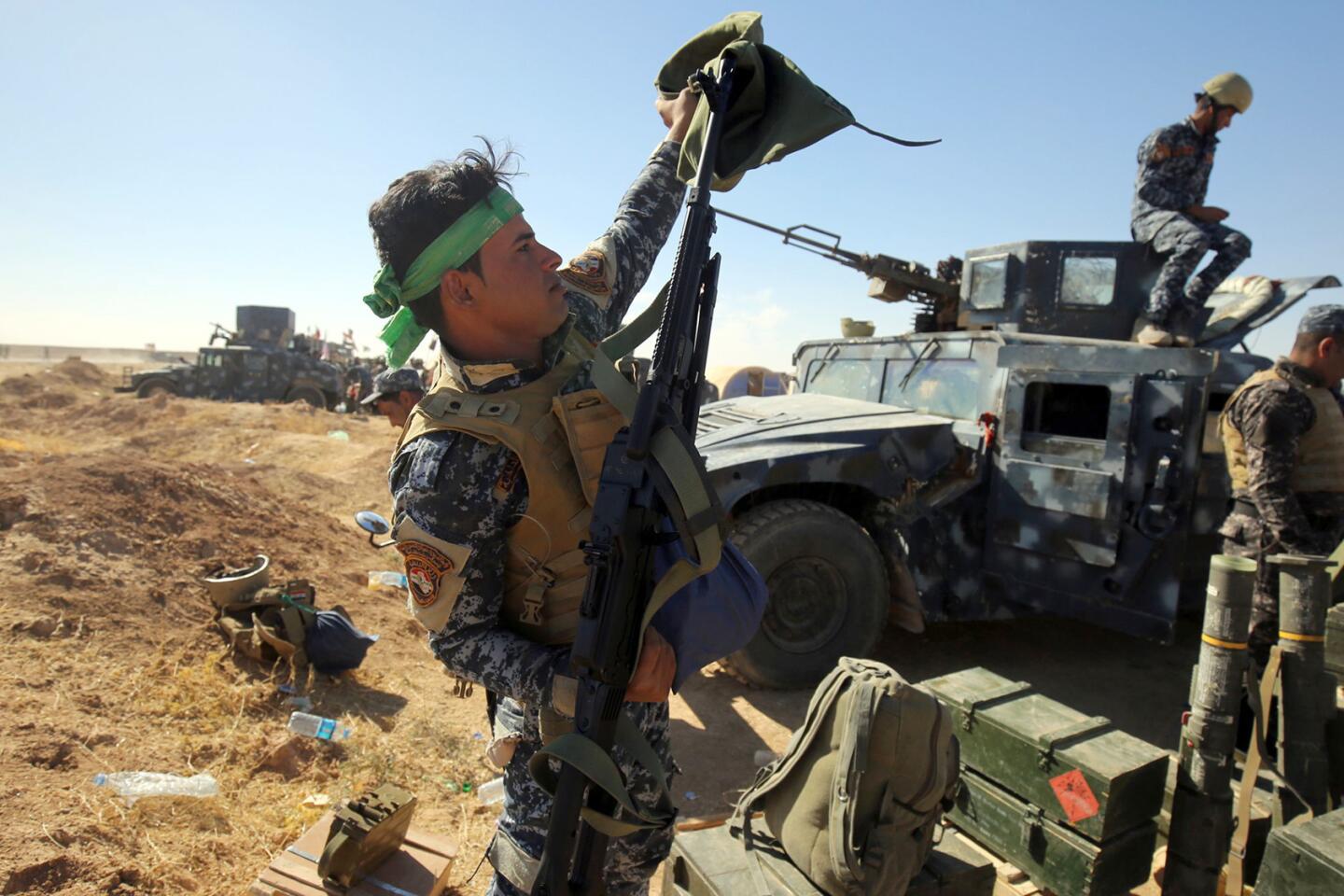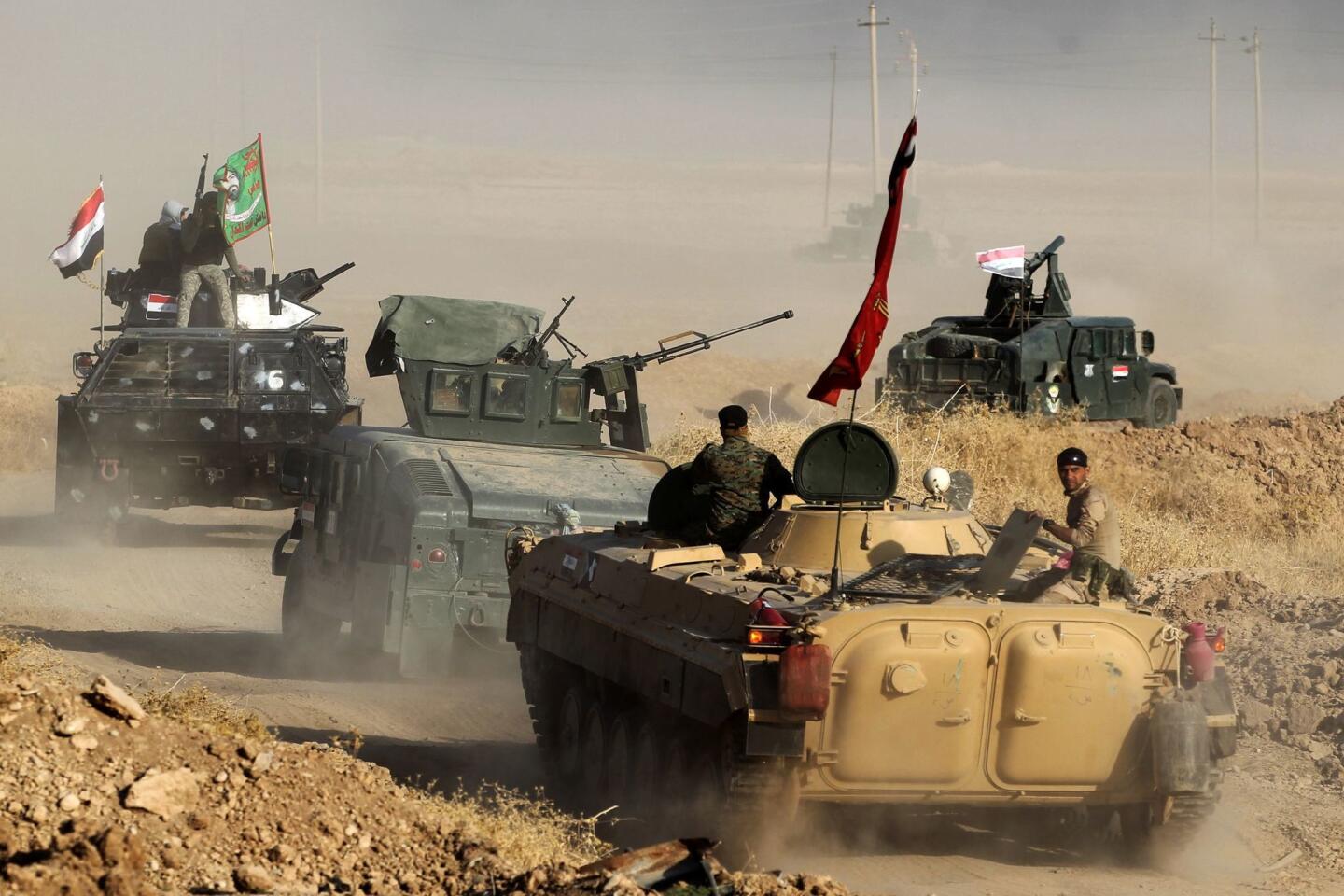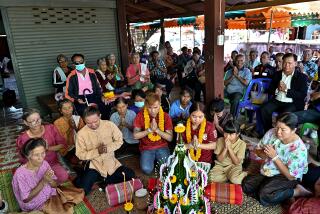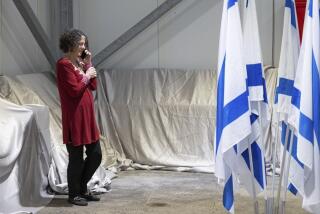Mosul is full of trapped, terrified civilians — but as Iraqi forces and their allies move to wrest the northern city from the militants of Islamic State, one group finds itself in particularly desperate peril.
Scores, perhaps even hundreds, of Yazidi women and girls enslaved by Islamic State more than two years ago are thought to remain captive in Iraq’s second-largest city as the U.S.-backed offensive gets underway in earnest. Activists fear for the lives of these women and their children, even amid hopes that the extremist group’s grip on the city may be broken at last.
“After the horrors they have already endured, it’s hard to believe they may suffer even more,” said Khaleel Aldakhi, an Iraqi lawyer and activist who works to help spirit captured Yazidis to safety.
Thousands of Yazidi women and children were seized — and men and boys killed — when their traditional heartland near Mount Sinjar in northern Iraq was overrun by Islamic State in August 2014. By a U.N. estimate earlier this year, 3,200 women and children are still caught in the maw of a vast slave-holding network extending across the group’s self-declared but now-shrinking caliphate, encompassing parts of Syria and Iraq.
1/62
A firefighter works to extinguish an oil well set ablaze by fleeing Islamic State fighters in Qayyarah, Iraq, on Nov. 9.
(Chris McGrath / Getty Images) 2/62
A peshmerga fighter peers through curtains as he and other Kurdish soldiers move into a new house in Bashiqa, Iraq, on Nov. 9.
(Odd Andersen / AFP/Getty Images) 3/62
A peshmerga fighter looks for militants as he and his team move between buildings in Bashiqa.
(Odd Andersen / AFP/Getty Images) 4/62
Iraqi forces react as they watch Donald Trump give a speech after winning the U.S. presidential election. They were taking a rest in the village of Arbid on the southern outskirts of Mosul on Nov. 9 during the operation to retake Mosul from Islamic State.
(Ahmad al-Rubaye / AFP/Getty Images) 5/62
Iraqi police try to pull a body from a mass grave they discovered in the Hamam Alil area on Nov. 7 after they recaptured the area from Islamic State.
(Ahmad al-Rubaye / AFP/Getty Images) 6/62
Kurdish peshmerga soldiers fire artillery at Islamic State positions in Bashiqa, Iraq, on Nov. 7.
(Felipe Dana / Associated Press) 7/62
Iraqi forces patrol the Gogjali district of Mosul a day after it was liberated from Islamic State.
(Carolyn Cole / Los Angeles Times) 8/62
Families flee Gogjali after the area was liberated.
(Carolyn Cole / Los Angeles Times) 9/62
A girl waves a white flag as she and her family leave Gogjali.
(Carolyn Cole / Los Angeles Times) 10/62
Iraqi special forces continue to clear homes in Gogjali on Nov. 2, 2016, after the area was liberated.
(Carolyn Cole / Los Angeles Times) 11/62
Iraqi special forces Lt. Col Ali Hussein Fadil and his men continue to clear the Gogjali district.
(Carolyn Cole / Los Angeles Times) 12/62
Iraqi troops patrol Gogjali.
(Carolyn Cole / Los Angeles Times) 13/62
Iraqi army soldiers warm themselves near the Qayyarah air base, south of Mosul, on Tuesday.
(Felipe Dana / Associated Press) 14/62
Displaced people who fled from Islamic State-held territory sit outside a mosque guarded by Iraqi soldiers in Shuwayrah, south of Mosul, on Tuesday.
(Felipe Dana / Associated Press) 15/62
An Iraqi Counter Terrorism Section member drives a vehicles with a broken windscreen as they advance early in the morning near the village of Bazwaya, on the eastern edges of Mosul, on Monday. (Bulent Kilic / AFP/Getty Images)
16/62
Members of the Iraqi counter-terrorism service drive near the village of Bazwaya, on the eastern edges of Mosul, tightening the noose as the offensive to retake the Islamic State group stronghold entered its third week on Sunday.
(Bulent Kilic / AFP/Getty Images) 17/62
Members of the Iraqi Counter Terrorism Service take shelter after a mortar shell hit nearby near the village of Bazwaya, on the eastern edges of Mosul, as they advance towards Iraq’s last remaining Islamic State stronghold on Monday.
(Bulent Kilic / AFP/Getty Images) 18/62
A member of the Iraqi Counter Terrorism Section grimaces in pain as he receives medical treatment after clashes on Monday with Islamic State militants near the village of Bazwaya, on the eastern edge of Mosul.
(Bulent Kilic / AFP/Getty Images) 19/62
Iraqi counterterrorism members carry an injured comrade during clashes with the Islamic State near Bazwaya on Monday. Iraqi forces took control of the village near Mosul. (Bulent Kilic / AFP/Getty Images)
20/62
Children playfully pose for a photo as smoke rises from burning oil fields in Qayara, some 50 kilometers south of Mosul, Iraq, Monday, Oct. 31, 2016. (Felipe Dana / AP)
21/62
A militia fighter prepares to go into battle with his phone and bullets.
(Carolyn Cole / Los Angeles Times) 22/62
Popular mobilization units are helping to clear villages southwest of Mosul, Iraq. On Sunday, they launched mortar rounds a little more than a mile from Islamic State fighters who continued to resist their advance on the city.
(Carolyn Cole / Los Angeles Times) 23/62
Militiamen chant before going into battle alongside Iraqi army forces as they fight against Islamic State near Mosul.
(Carolyn Cole / Los Angeles Times) 24/62
Militiamen near the village of Zarqa stand by as mortars are launched at Islamic State fighters near Mosul.
(Carolyn Cole / Los Angeles Times) 25/62
The popular mobilization units received the Iraqi government’s blessing to join the battle that could break Islamic State’s grip in the country.
(Carolyn Cole / Los Angeles Times) 26/62
Militias known as popular mobilization units fighting near Mosul are made up mostly of Shiite Muslims.
(Carolyn Cole / Los Angeles Times) 27/62
In the village of Faziliya, recently liberated from Islamic State, Abdul Gafur, 38, embraces his brother Mohammad Abdul Gafur, 40. The two had not seen each other since Islamic State forces took control of the village more than two years ealier.
(Carolyn Cole / Los Angeles Times) 28/62
Business is brisk at the barbershops in Faziliya after Kurdish forces retook control from Islamic State militants. A bodyguard stands by.
(Carolyn Cole / Los Angeles Times) 29/62
Peshmerga, or Kurdish fighters, rest after a recent battle.
(Carolyn Cole / Los Angeles Times) 30/62
The remains of a bomb factory can be seen in the village of Faziliya, recently liberated from Islamic State control.
(Carolyn Cole / Los Angeles Times) 31/62
A member of the Iraqi armed forces kisses a local boy after Iraqi forces entered the town of Shura, 30 kilometers south of Mosul, Iraq. Iraqi troops approaching Mosul from the south advanced into Shura on Saturday after a wave of U.S.-led airstrikes and artillery shelling against Islamic State positions inside the town.
(Marko Drobnjakovic / AP) 32/62
Iraqi families, who already had been displaced by the ongoing operation by Iraqi forces against jihadists of the Islamic State group, flee Mosul. Iraqi paramilitary forces launched an operation to cut the Islamic State group’s supply lines between its Mosul bastion and neighboring Syria.
(Bulent Kilic / AFP/Getty Images) 33/62
Walid Abdel Nabih, 28, from Nasiriya and a father of four, moves through passageways created by Islamic State to prevent detection by drones. On the eastern front in the fight for Mosul, an Iraqi special forces unit waits for next phase of the fight to clear Islamic State operatives from Mosul.
(Carolyn Cole / Los Angeles Times) 34/62
An Iraqi special forces member rides in the turret of a humvee with a Shiite religious banner flying behind him as he patrols Bartella, Iraq.
(Carolyn Cole / Los Angeles Times) 35/62
As many Iraqis are returning home, others are fleeing the fighting in villages surrounding Mosul. At Camp JJadh, 3,000 people arrived in the past week, but many more are expected as the battle for Mosul continues. New arrivals line up for food, provide by the World Food Program.
(Carolyn Cole / Los Angeles Times) 36/62
Children play in a dismantled car in the village of Hurriya, where fighting between Islamic State and Iraqi forces has caused many families to leave over the past months. The risk of unexploded weapons is still a concern for many in the area.
(Carolyn Cole / Los Angeles Times) 37/62
Soldiers drive through the town of Qayyarah, heavily damaged in the fighting in August and again this past week as Islamic State was driven out of town.
(Carolyn Cole / Los Angeles Times) 38/62
Sienna Moqtar and her daughter decorate her brother’s grave with rocks. He died last week in the final days of Islamic State in Qayyarah. The bodies of two infant nephews are buried at the right.
(Carolyn Cole / Los Angeles Times) 39/62
Ibrahim Atea Ahmed, left and Daham Ahmed survived the Islamic State attack, but their town was left in bad shape. Oil fires continue to burn, set by militants as a cover from air attacks.
(Carolyn Cole / Los Angeles Times) 40/62
Residents wait for food and water to be handed out, but very little was distributed. The water is not fit to drink in the town.
(Carolyn Cole / Los Angeles Times) 41/62
Iraqi soldiers head for the front line.
(Carolyn Cole / Los Angeles Times) 42/62
An Iraqi fighter takes a position on top of a vehicle as smoke rises on the outskirts of the Qayyarah area, 35 miles south of Mosul, during an operation against Islamic State.
(BULENT KILIC / AFP/Getty Images) 43/62
Smoke billows from an area near the Iraqi town of Nawaran, northeast of Mosul, as Iraqi Kurdish Peshmerga fighters march down a dirt road during the ongoing operation to retake the city from Islamic State.
(SAFIN HAMED / AFP/Getty Images) 44/62
Iraq’s elite counterterrorism forces raise an Iraqi flag after retaking Bartella, outside Mosul, Iraq.
(Khalid Mohammed / Associated Press) 45/62
Iraq’s elite counterterrorism forces raise an Iraqi flag after retaking Bartella, outside Mosul, Iraq.
(Khalid Mohammed / Associated Press) 46/62
The commander of Iraq Special Forces Lt. Gen Abdul Ghani al-Asadi during an interview on the Bartila front line, after the city was liberated from Islamic State militants.
(AHMED JALIL / EPA) 47/62
Iraqi Special Forces take up position in Bartila front line, after the city was liberated from Islamic State militants.
(AHMED JALIL / EPA) 48/62
Iraqi soldiers ride in a truck advancing through the desert on the banks of the Tigris River toward the Islamic State stronghold of Mosul.
(Ahmad al-Rubaye / AFP/Getty Images) 49/62
Iraqi Kurdish Peshmerga fighters fire rockets from a mobile launcher near the town of Bashiqa, about 25 kilometers northeast of Mosul, on Oct. 20, 2016.
(Safid Hamed / AFP/Getty Images) 50/62
A member of Iraq’s elite counterterrorism forces advances with his unit toward the city of Mosul, on Oct. 20, 2016.
(Khalid Mohammed / Associated Press) 51/62
A villager walks on a bare street as smoke from oil fires nearby turn the sky black in the Qayyarah area, about 60 kilometers south of Mosul, on Oct. 19, 2016.
(Yasin Akgul / AFP/Getty Images) 52/62
Iraqi soldiers look on as smoke rises from the Qayyarah area south of Mosul on Oct. 19, 2016, as Iraqi forces take part in an operation against Islamic State to retake Mosul.
(YASIN AKGUL / AFP/Getty Images) 53/62
A man takes a selfie in front of a fire from oil that has been set ablaze in the Qayyarah area south of Mosul on Oct. 19, 2016, during an operation by Iraqi forces against Islamic State to retake Mosul.
(YASIN AKGUL / AFP/Getty Images) 54/62
An Iraqi sniper wearing his camouflage in the village of Bajwaniyah village, about 30 kilometers south of Mosul, on Oct. 18, 2016.
(Ahmad al-Rubaye / AFP/Getty Images) 55/62
Smoke rises from an explosion as Iraqi forces retake the village of Bajwaniyah from Islamic State on their way to Mosul.
(Ahmad al-Rubaye / AFP/Getty Images) 56/62
Iraqi soldiers inspect a tunnel in a building in the recaptured village of Shaquoli, about 35 kilometers east of Mosul, on Oct. 18, 2016.
(Safin Hamed / AFP/Getty Images) 57/62
An Iraqi Kurdish Peshmerga fighter stands amid the rubble of a destroyed building on Oct. 18, 2016, in the village of Shaqouli, east of Mosul, after it was recaptured from the Islamic State group.
(Safin Hamed / AFP/Getty Images) 58/62
A man carries a baby at a refugee camp in Syria’s Hasakeh province for Iraqi families who fled fighting in the Mosul area on Oct. 17, 2016.
(Delil Souleiman / AFP/Getty Images) 59/62
Lt. Col. Ali Hussein, right, addresses Iraqi security forces leading a government offensive that began Monday to oust Islamic State from the city of Mosul, the extremist group’s last major stronghold in Iraq.
(Molly Hennessy-Fiske / Los Angeles Times) 60/62
An Iraqi police officer inspects his weapon at the Qayyarah military base, about 60 kilometers south of Mosul, on Oct. 16, 2016, amid preparations for the offensive to retake the city from Islamic State.
(Ahmad Rubaye / AFP/Getty Images) 61/62
Iraqi forces head north toward Mosul on Monday, part of the operation to retake the city from Islamic State.
(Ahmad al-Rubaye / AFP/Getty Images) 62/62
Iraqi Kurdish Peshmerga fighters fire a mortar shell from Mount Zardak.
(Safin Hamed / AFP/Getty Images) No one can say with certainty how many of these captives are in Mosul, Islamic State’s principal stronghold in Iraq. The city initially was a distribution hub for the enslaved women and girls, who are members of an ancient and arcane religious sect whose ethnic Kurdish adherents are despised by Islamic State as heretics and devil-worshippers.
Most of the Yazidi captives were sold as slaves or given as gifts to fighters in Islamic State-held areas of Syria, human rights groups and activists say. But some either have spent the duration of their captivity in Mosul or found themselves back in the city after forced journeys between other Islamic State bastions, passed hand to hand like chattel as their “husbands” were killed in battle or traded them away or offered them as presents to relatives and fellow fighters.
Those who have escaped or been ransomed have described conditions in Mosul as grimly similar to other areas where Islamic State holds sway: cruel medieval torments as a feature of daily life, coupled with harrowing sexual and domestic servitude in the households of fighters. Enslaved women are routinely punished by having their children abused or taken from them, with their young boys conscripted as fighters or suicide bombers.
As an urban battle looms, Yazidi women and children living under the same roof as fighters face threats of a magnitude even greater than those confronted by other city residents, activists say. They could be maimed or killed in bombardment, caught up in house-to-house battles, abandoned to their fate as fighters flee or even become the target of reprisal killings.
“They’re in even more danger than regular civilians, these women and children, because the fighters are all around them, watching them, living with them,” said Haider Elias, president of the U.S.-based advocacy group Yazda.
Some survivors have told of being forced to accompany their Islamic State captors when the fighters fled other Iraqi and Syrian cities under assault, surmising that they were intended to serve as human shields against airstrikes, said a Yazidi aid worker named Hazem, who assists freed captives in the northern Iraqi city of Dohuk. He did not want his full name published for security reasons.
Yazda said that more than 1,000 Yazidi women and children were held at some point in Mosul and its environs, including the town of Tal Afar to the west, and that 100 women and girls and roughly the same number of children likely remained in the city. Lawyer Aldakhi puts the suspected total considerably higher, but some major rights groups, such as Amnesty International, believe the number of captive Yazidis in the city may have dwindled to the dozens.
“Really, no one knows,” said Amnesty senior investigator Donatella Rovera. “There isn’t very much contact with those in Mosul.”
For those who survive and return to what remains of their scattered community, captivity’s effects linger on, in the form of stigma and lack of treatment for the trauma they have suffered. The families of many freed sex slaves are dead or missing, leaving them with scant emotional and financial resources with which to rebuild their lives.
Some captives face suspicion of collusion with their captors, said researcher Rothna Begum of New York-based Human Rights Watch. She described the recent arrest of one Yazidi woman by authorities in northern Iraq; out of fear, she had told police who came to the house that her fighter “husband” was away and then was accused of aiding him.
A German organization has brought some of the freed Yazidis to Germany for psychological treatment, but that program already is closed to new arrivals. Many of those freed face years in Spartan displacement camps in northern Iraq, with no access to jobs or education.
In and around Mosul, the few escape routes that existed before the offensive began were largely sealed off amid preparations for what is likely to be a long fight to retake the city, Aldakhi said.
He described a nerve-racking rescue earlier this year in Mosul of a Yazidi woman, her sister and their two children. The group was sneaked into a waiting car during a brief window when their Islamic State captors attended noon prayers and then made part of the journey on foot to skirt a checkpoint where fighters who knew their captors might recognize the children, if not the women in their face-concealing veils.
Such outcomes have grown rarer, he and others said.
“Not as many can escape as one would hope,” said Begum, the Human Rights Watch researcher. “And even when they are safe, the level of trauma is so very high — it is very, very difficult to make a new life.”
laura.king@latimes.com
Twitter: @laurakingLAT
MORE WORLD NEWS
Why thousands of Iraqi fighters have poured into Syria to aid Assad
A ‘decisive battle’: Determination energizes Iraqi forces in fight to retake Mosul from Islamic State
Bombs, beatings, rape: Freed Nigerian women tell harrowing tales of life as a forced Boko Haram bride
